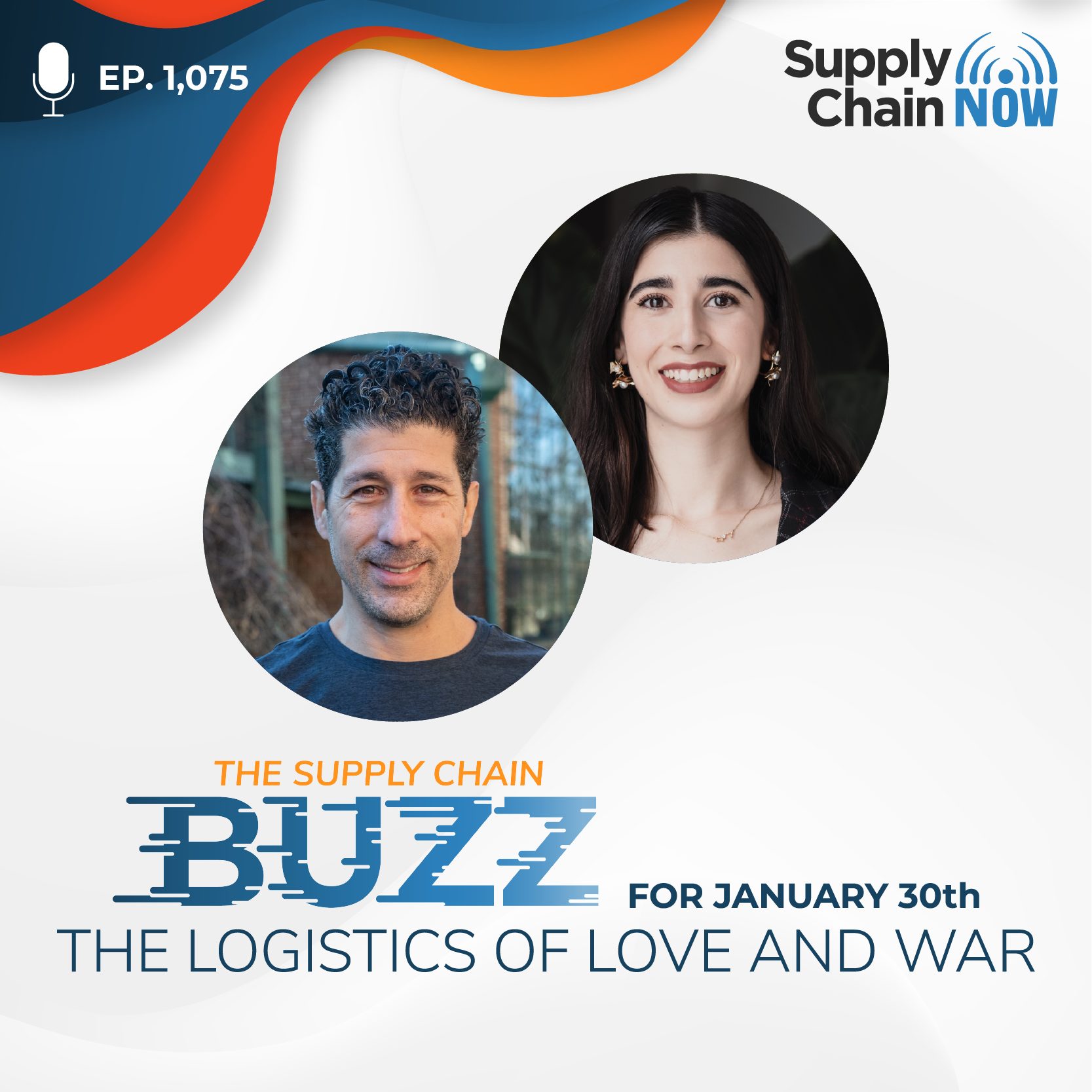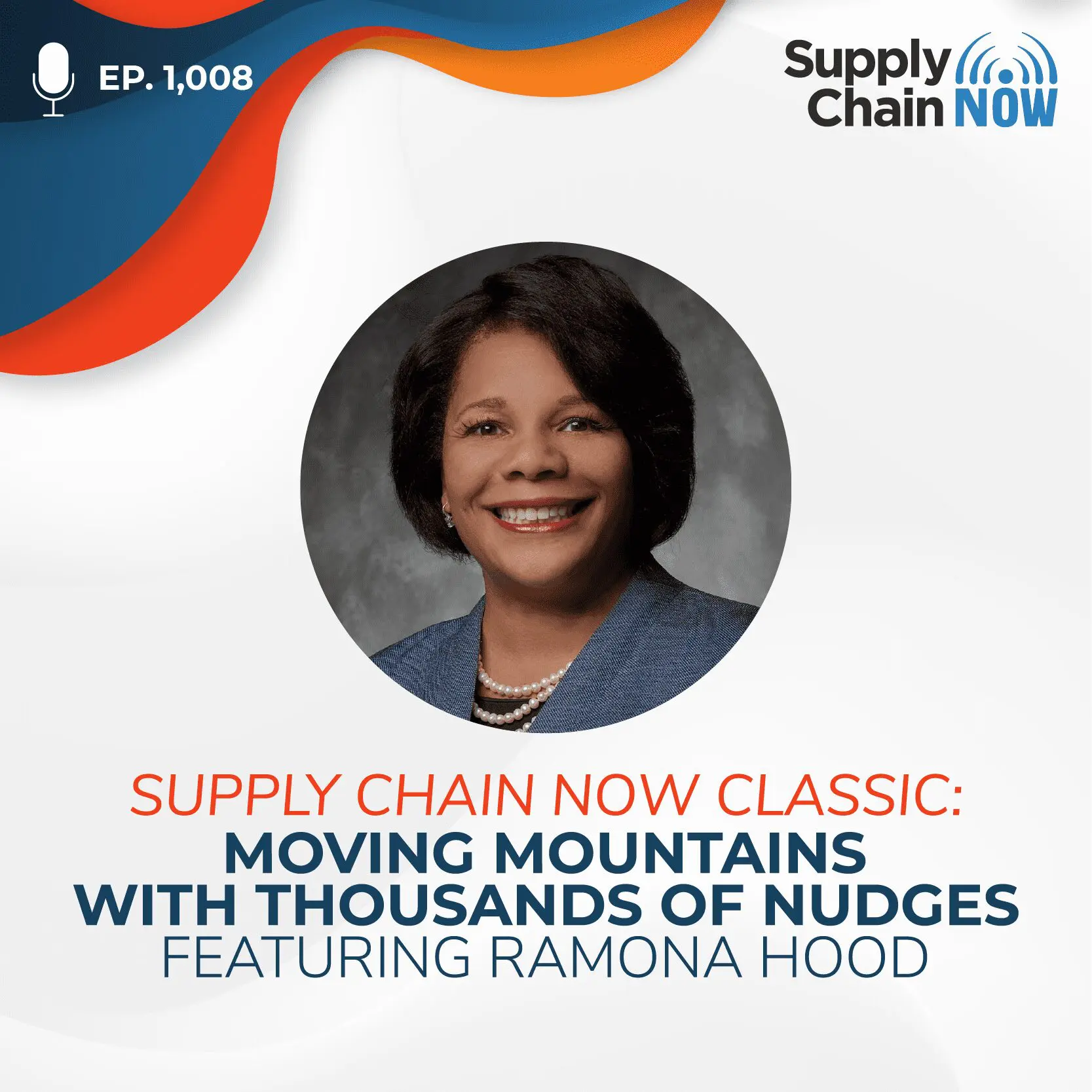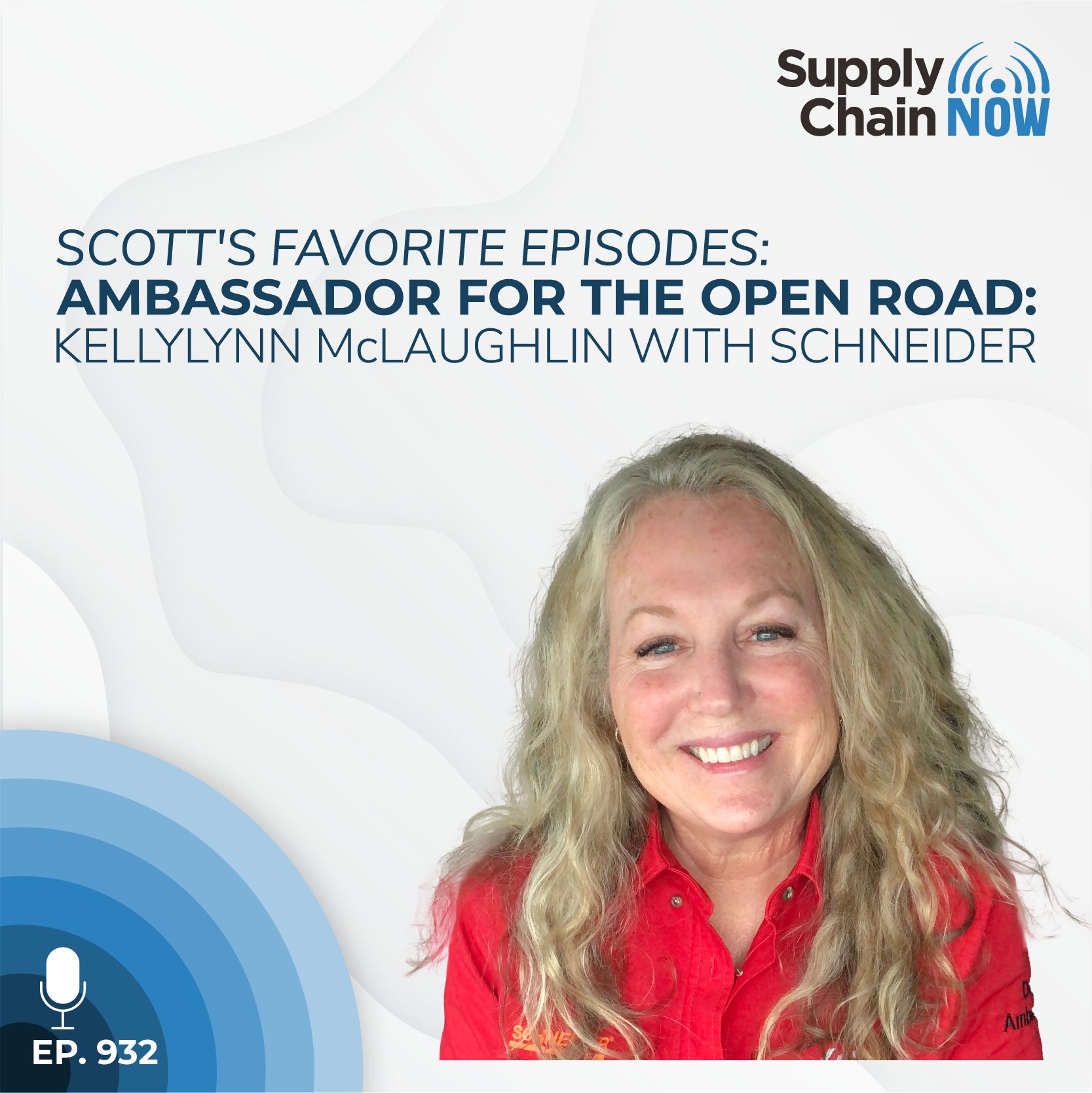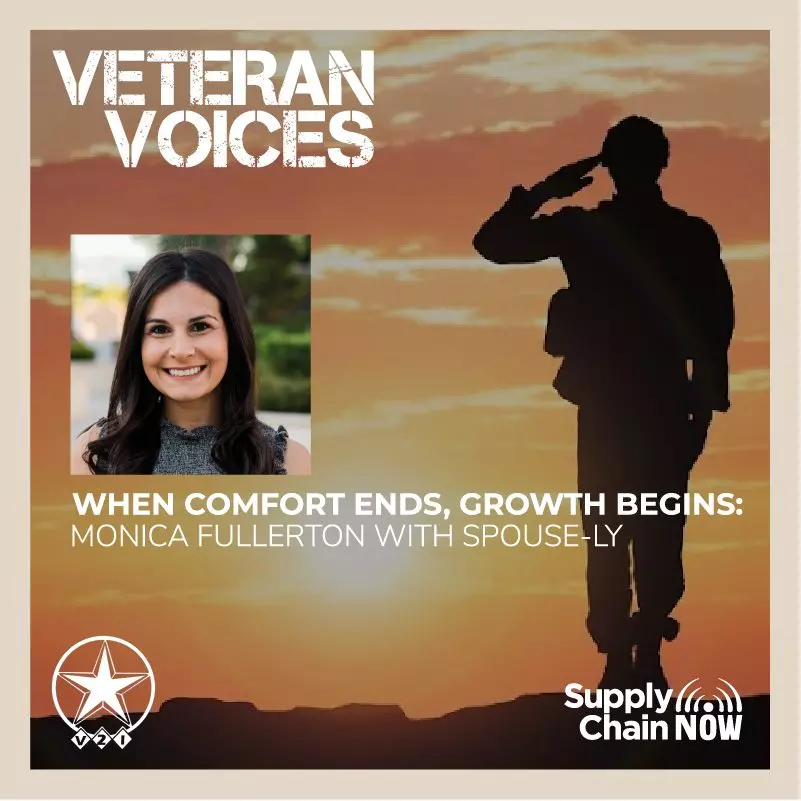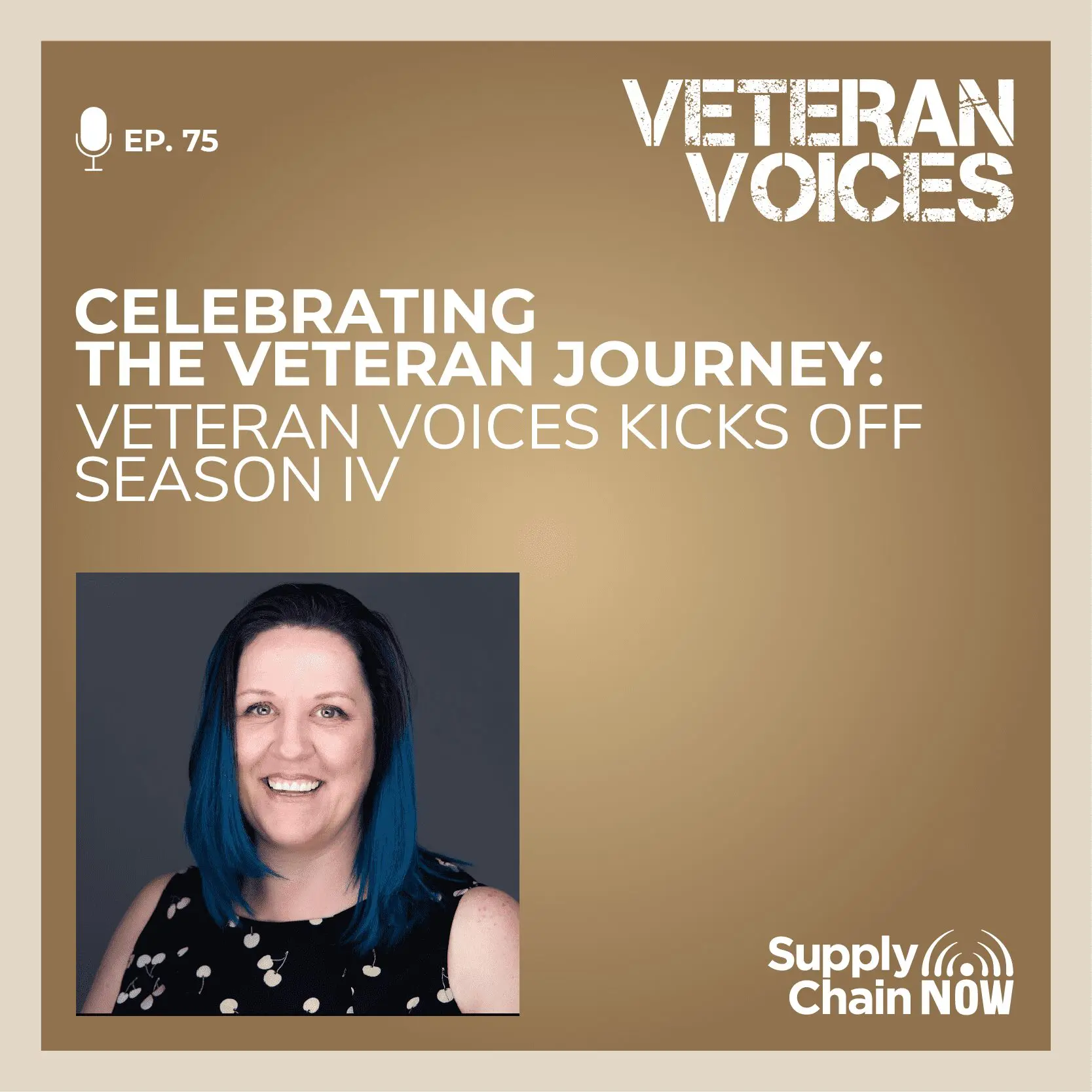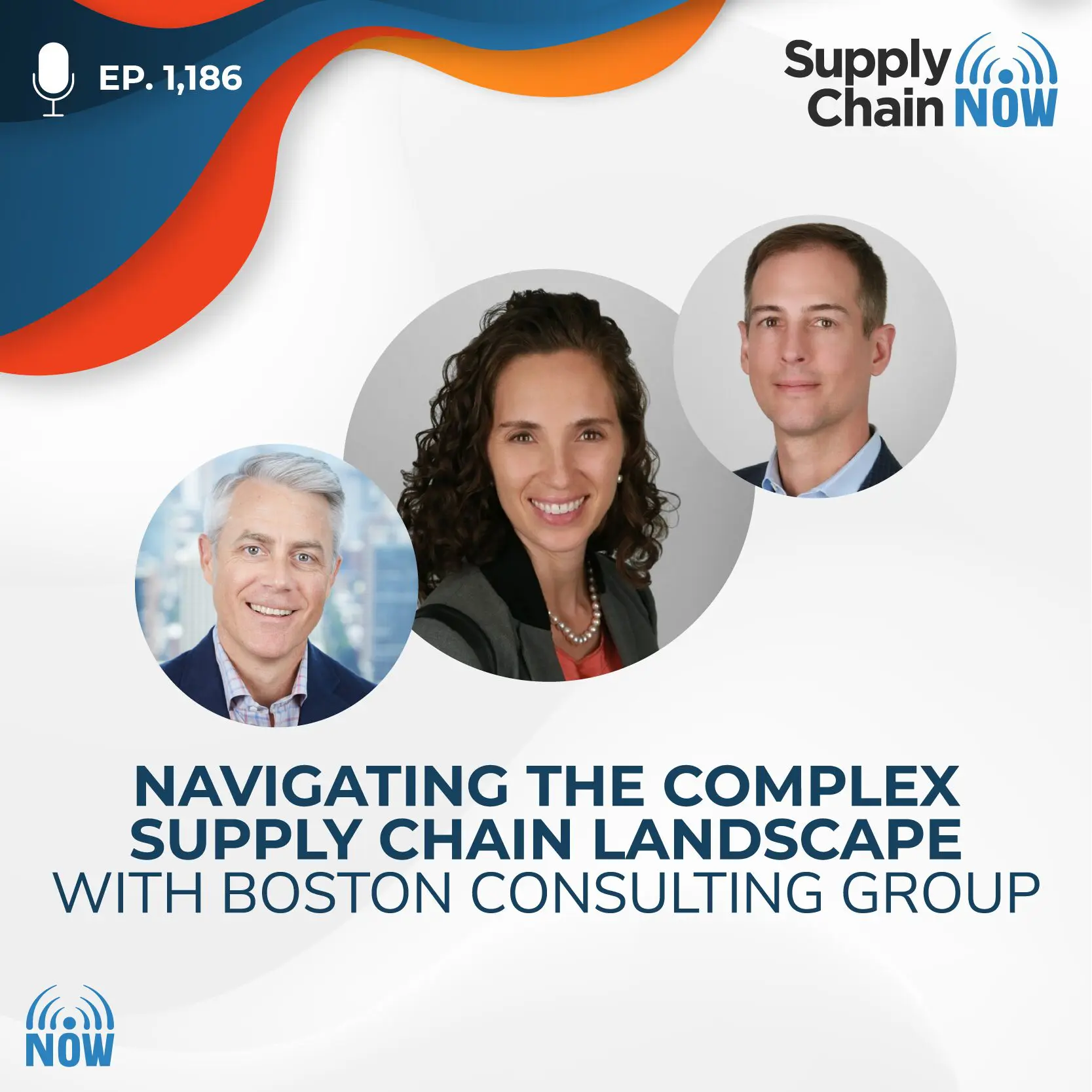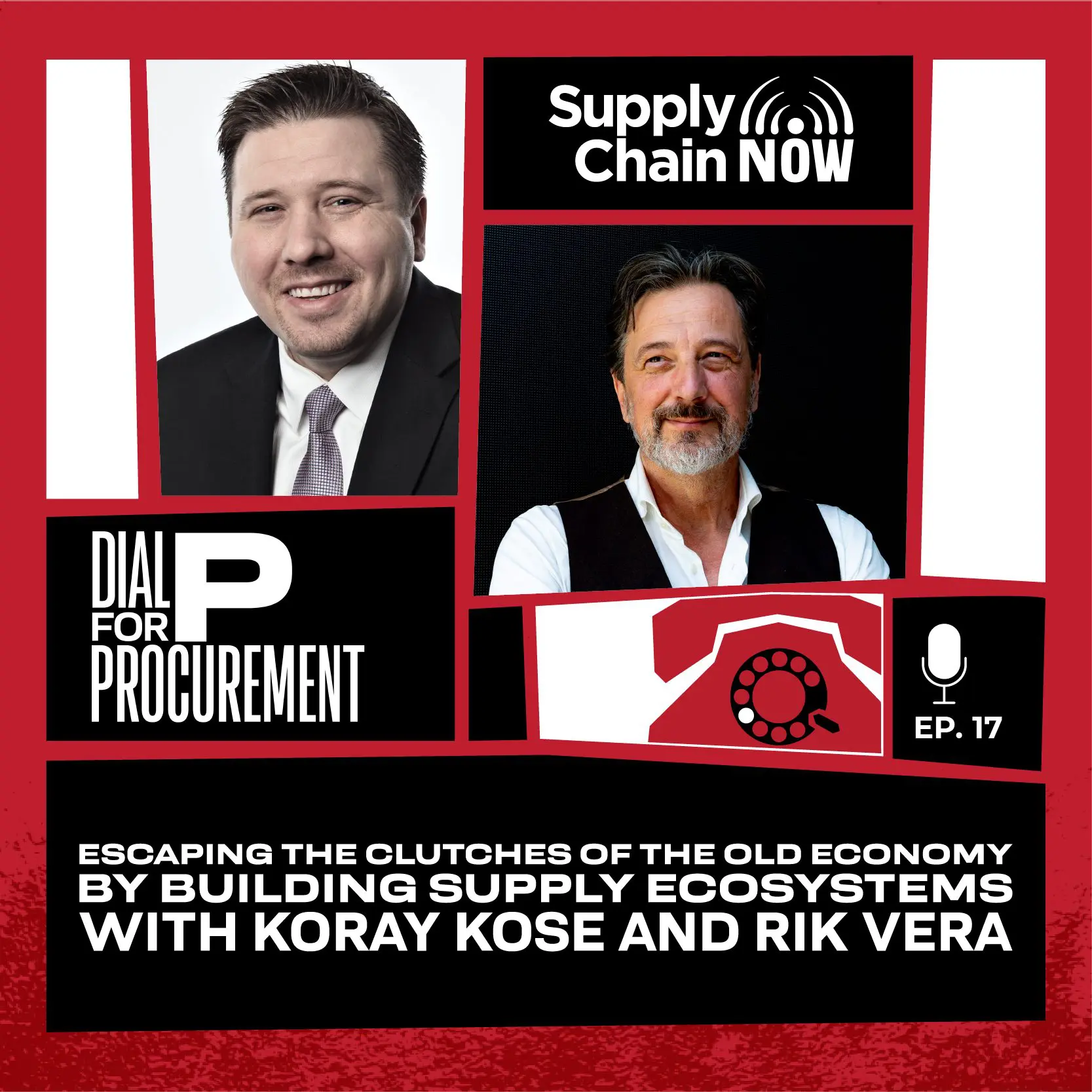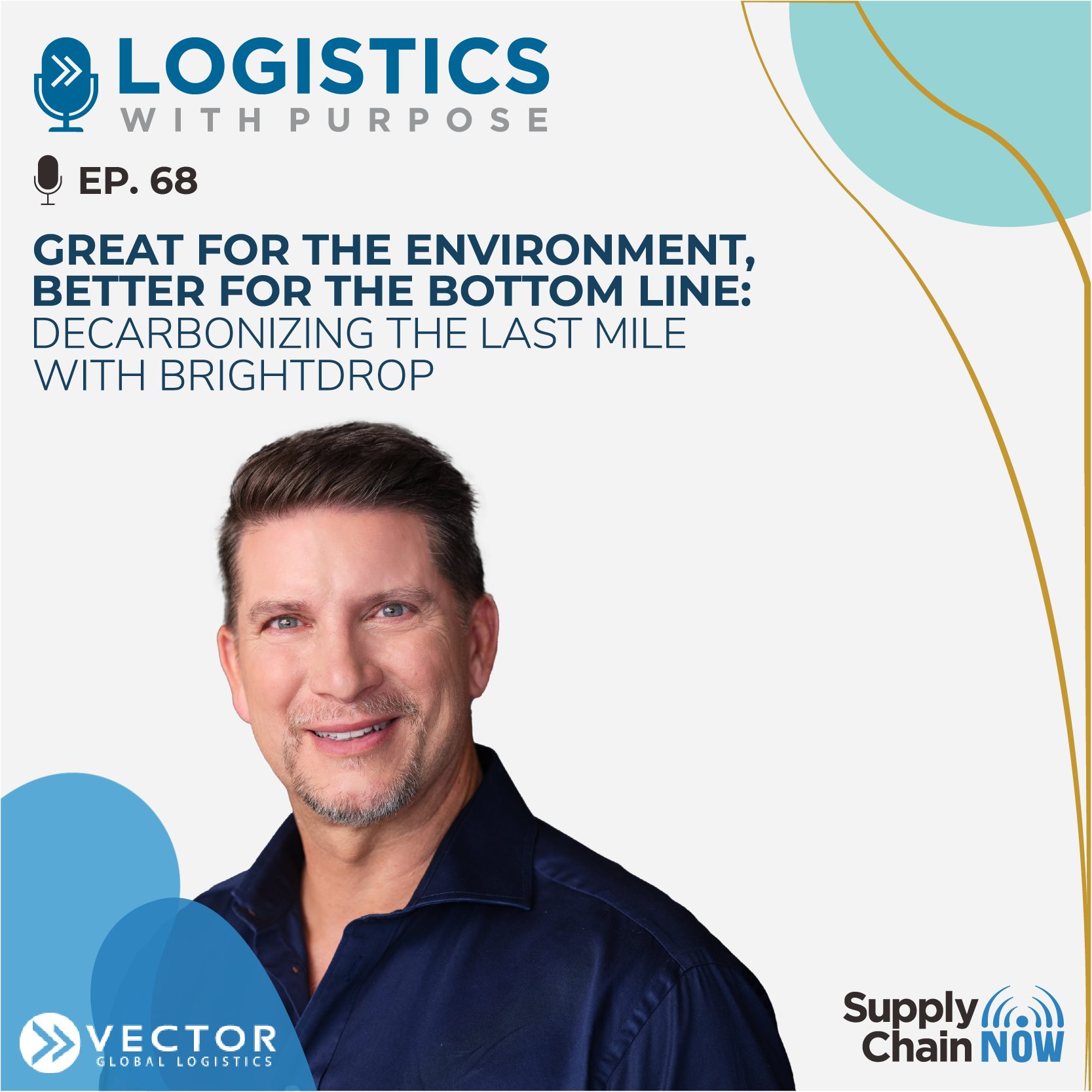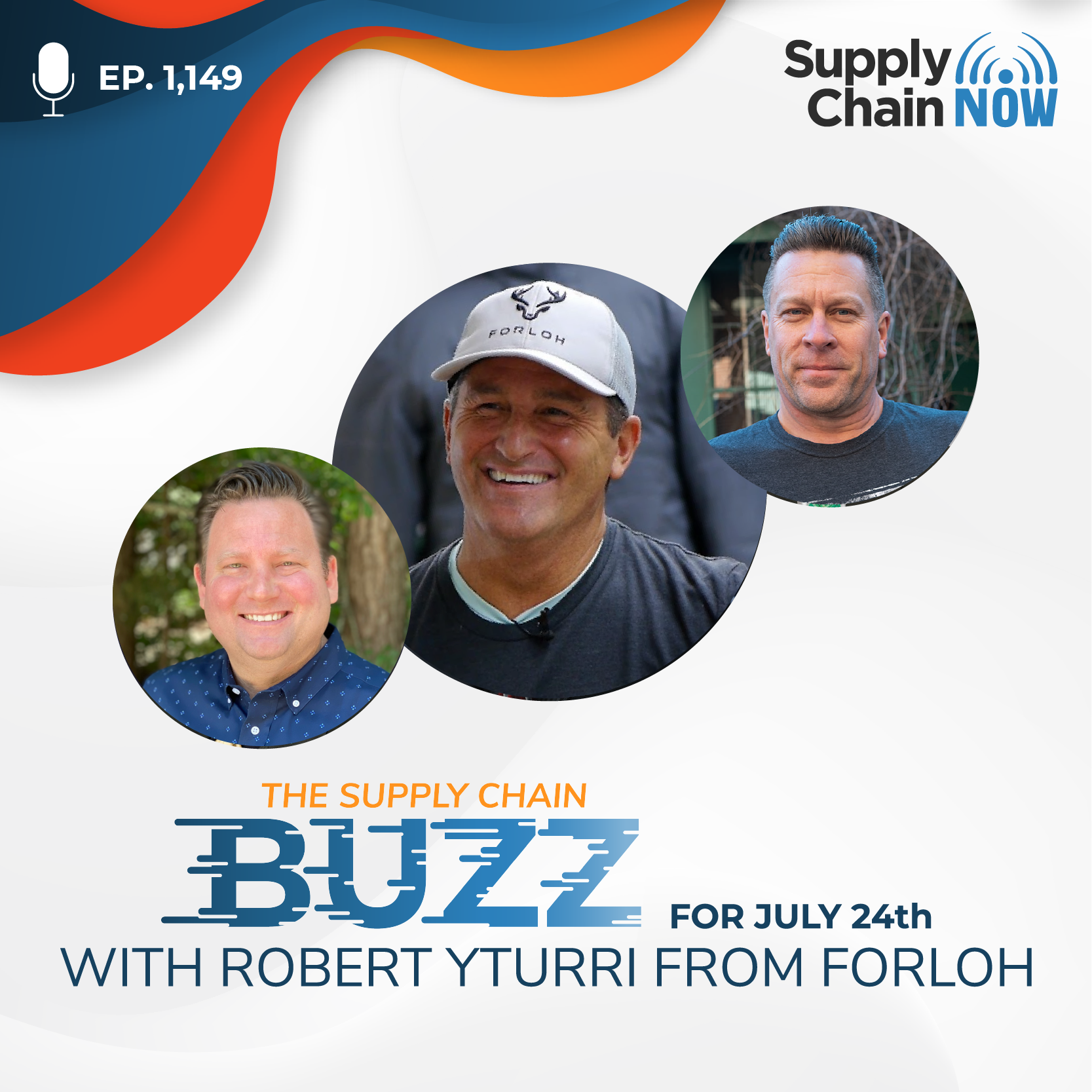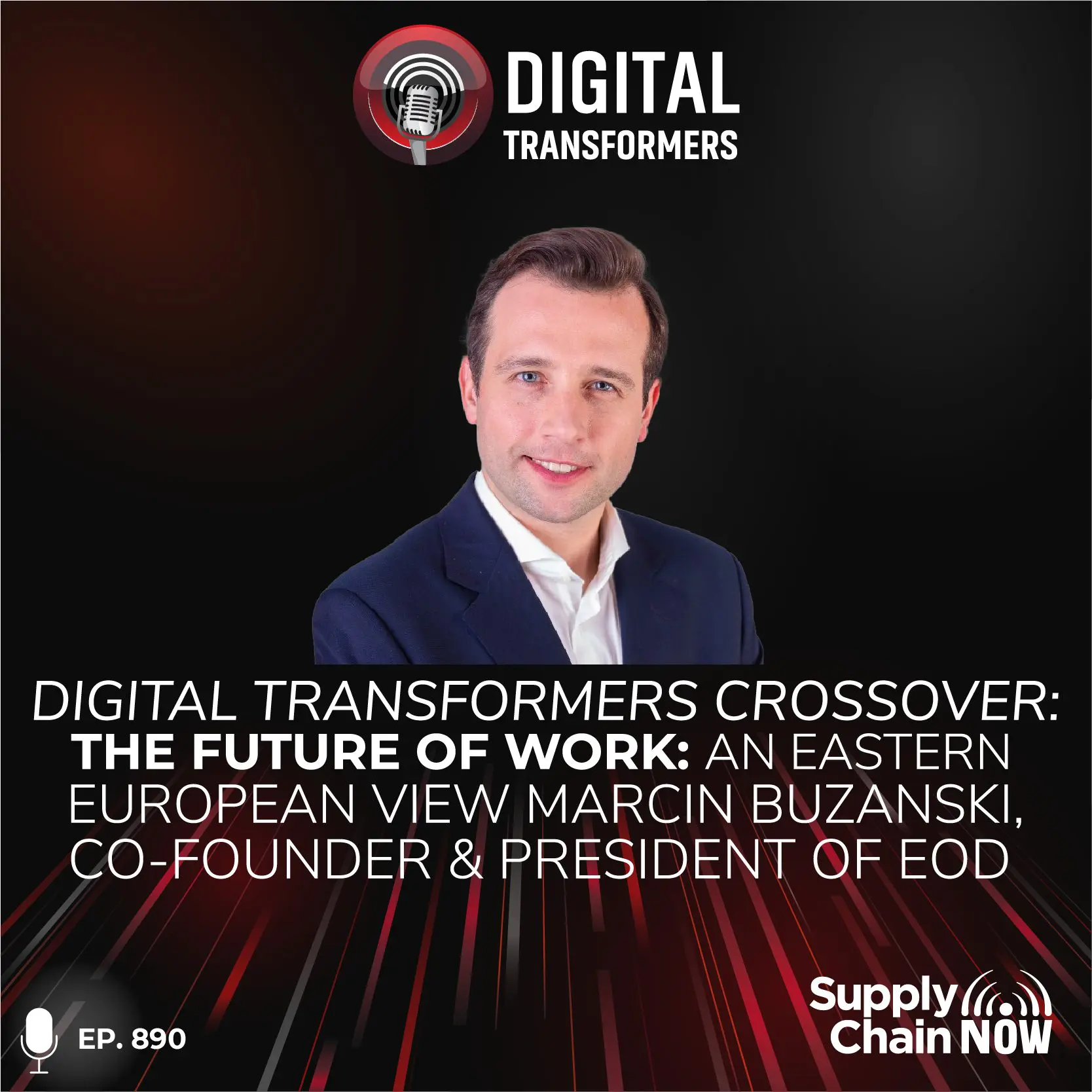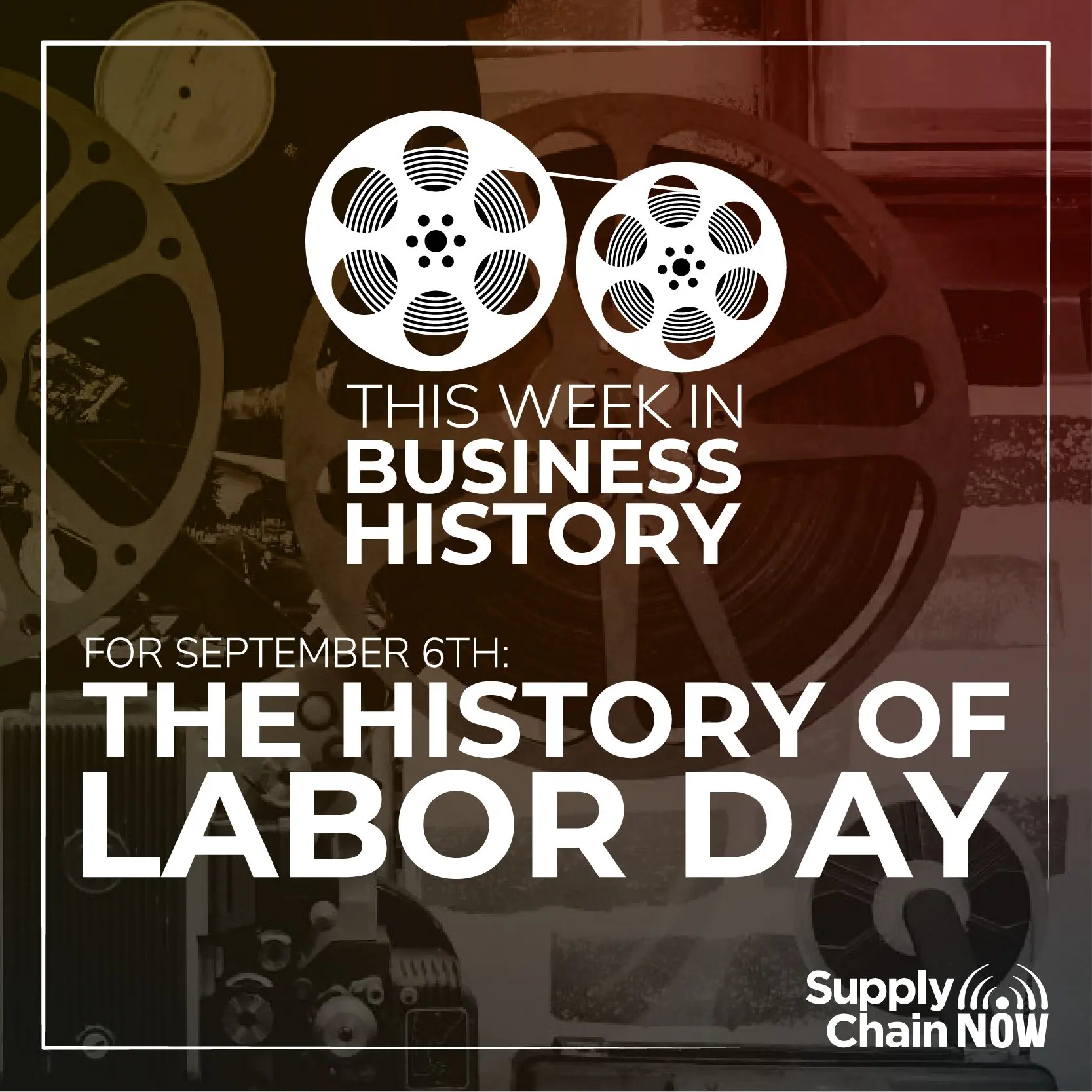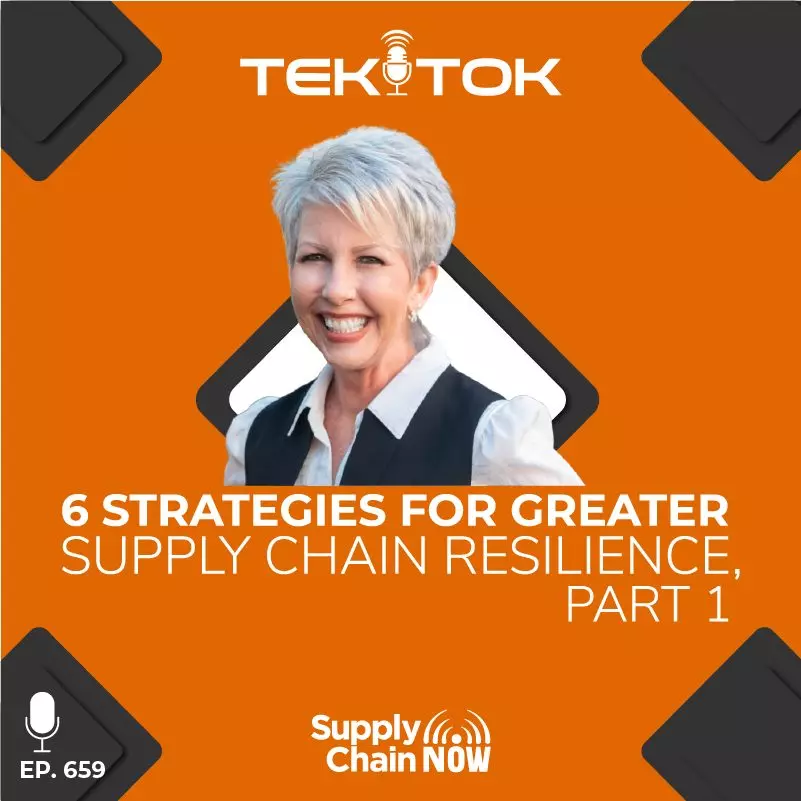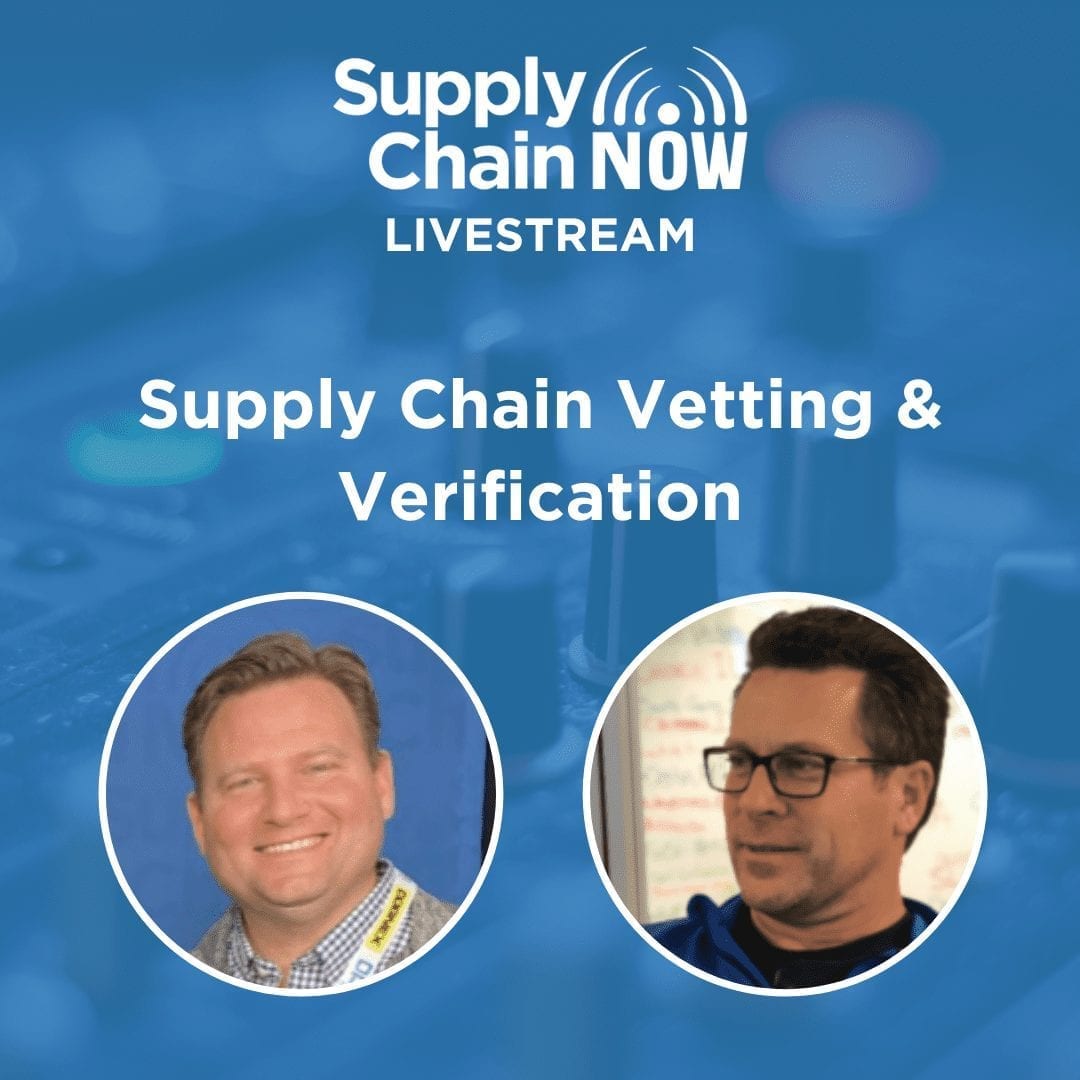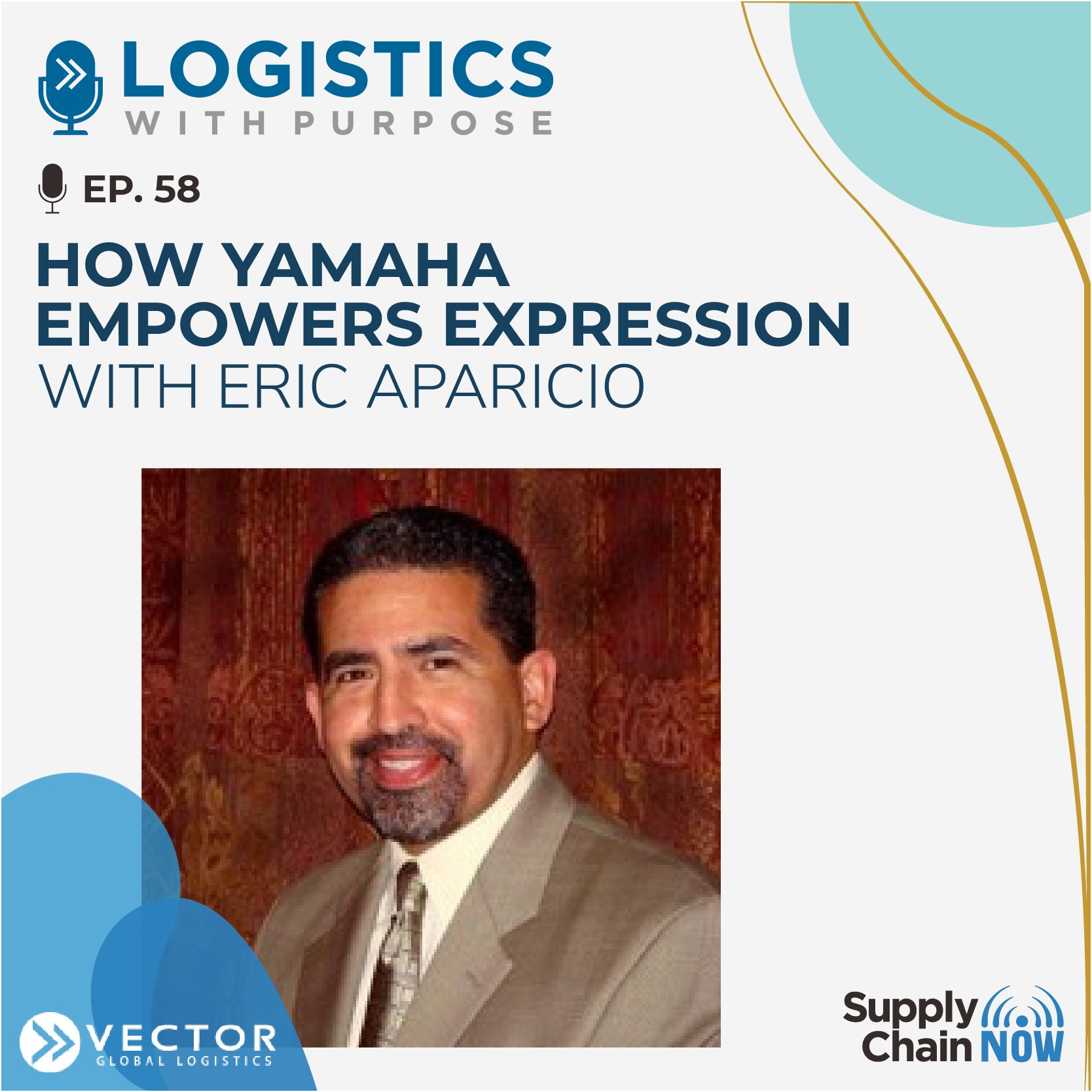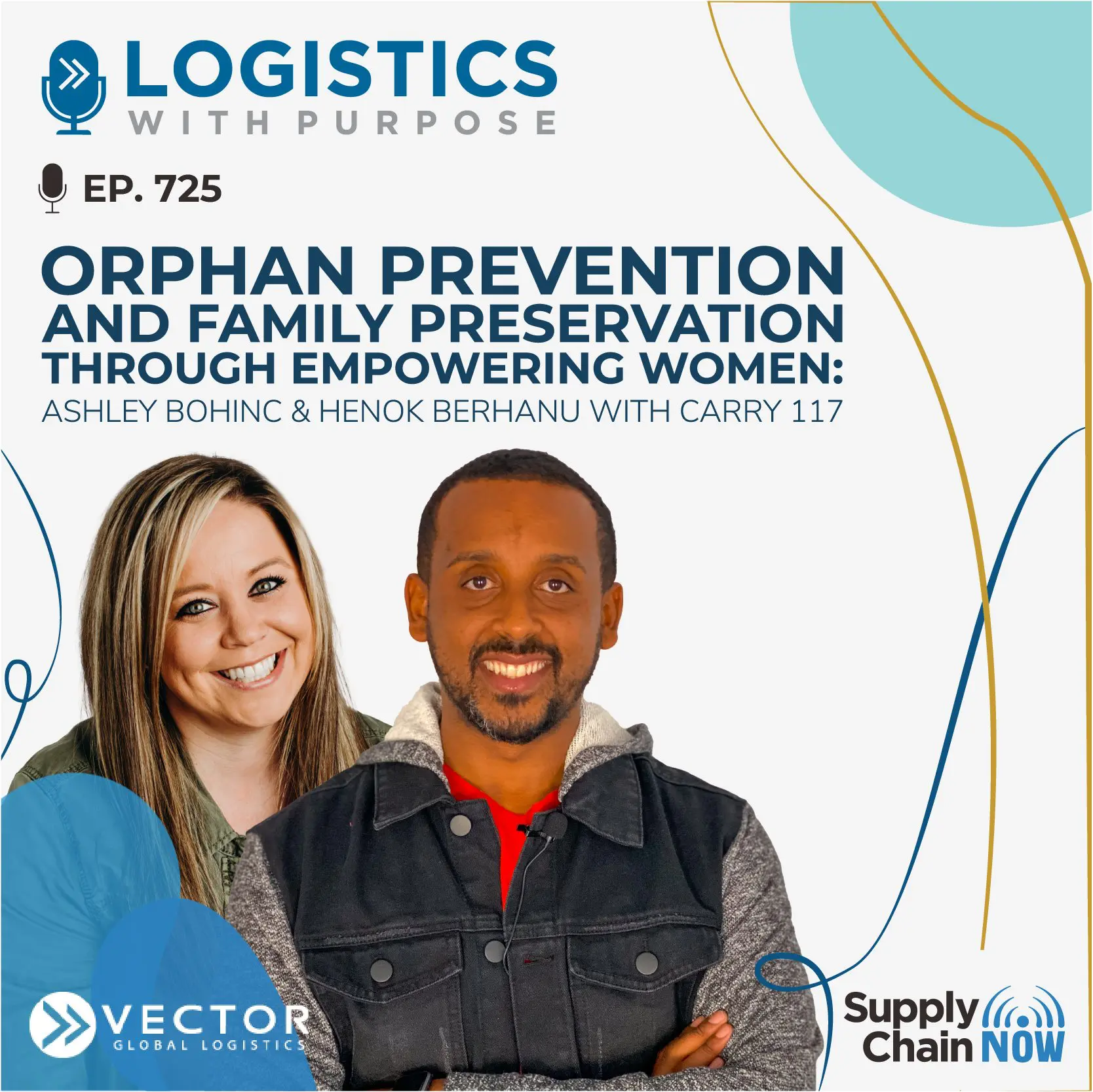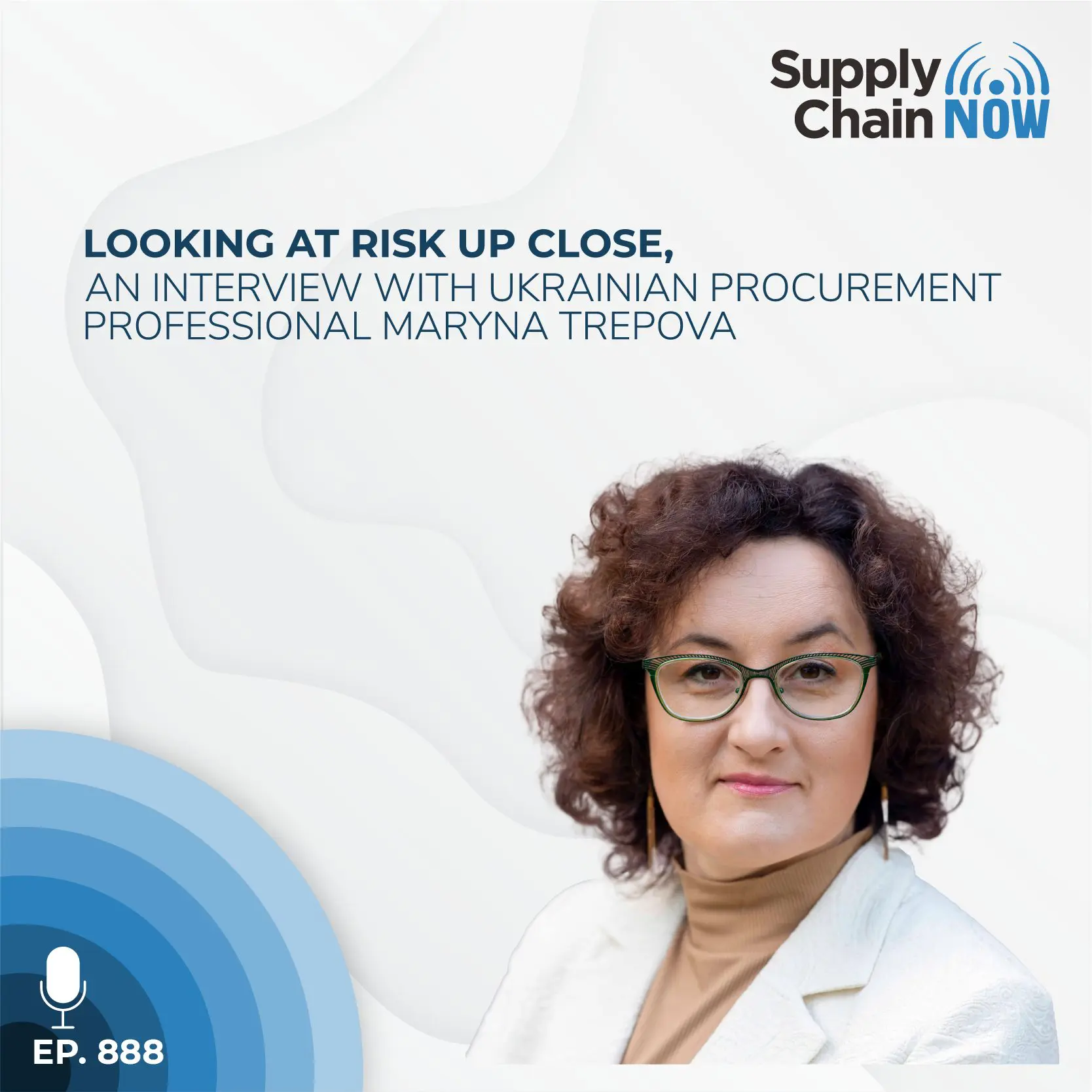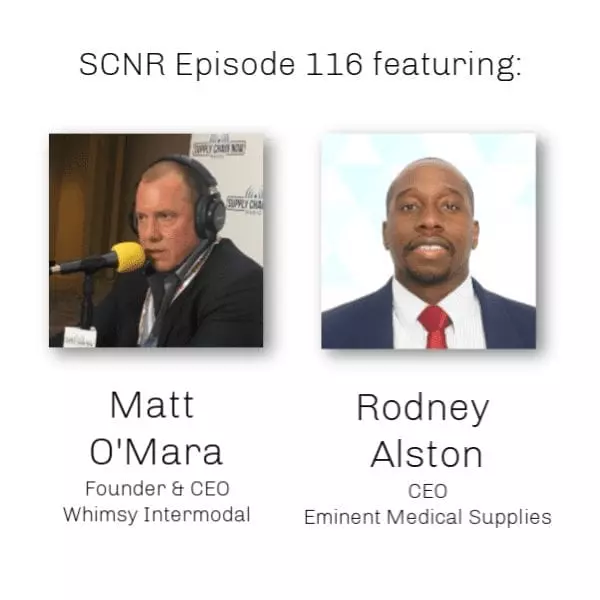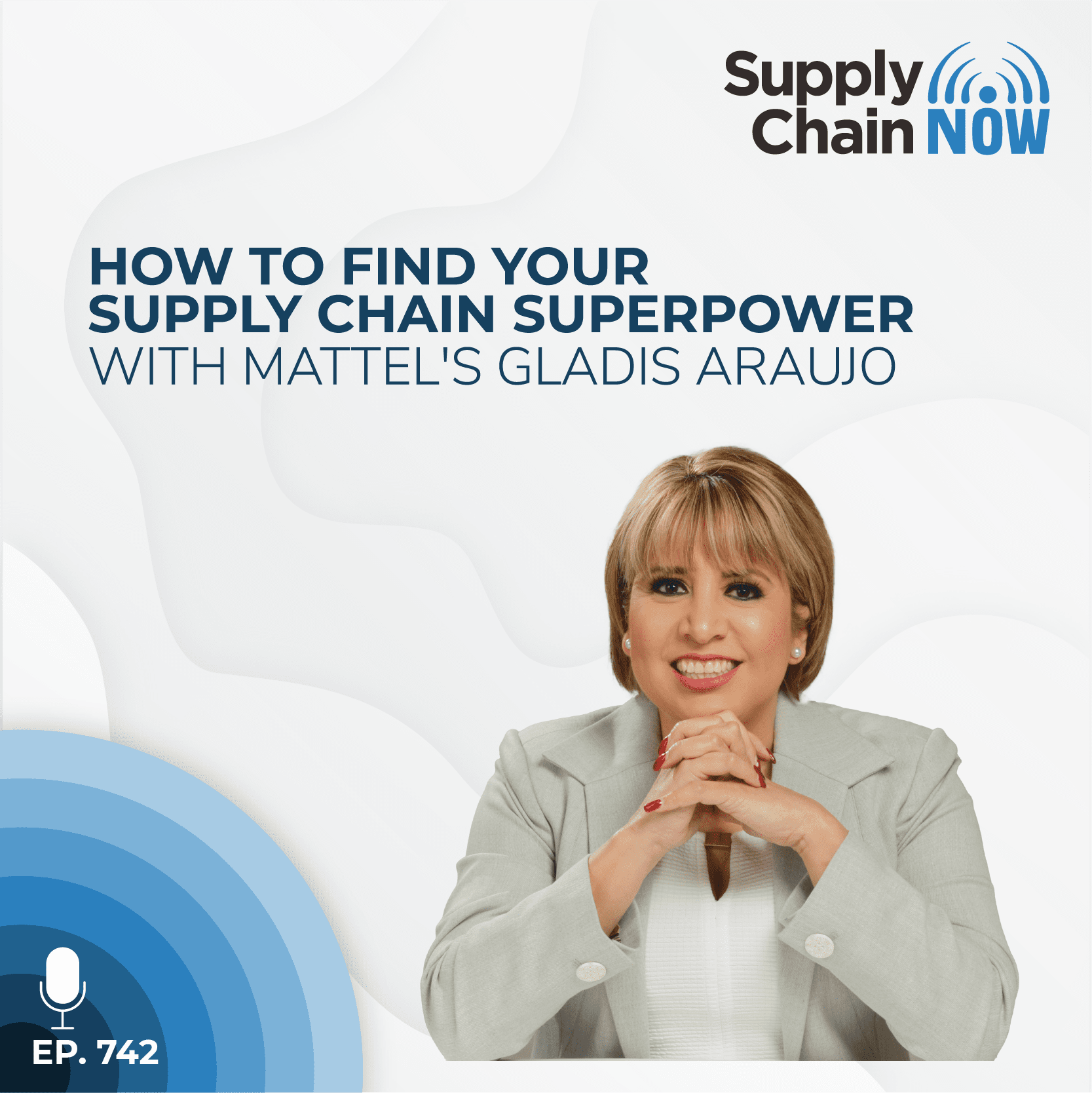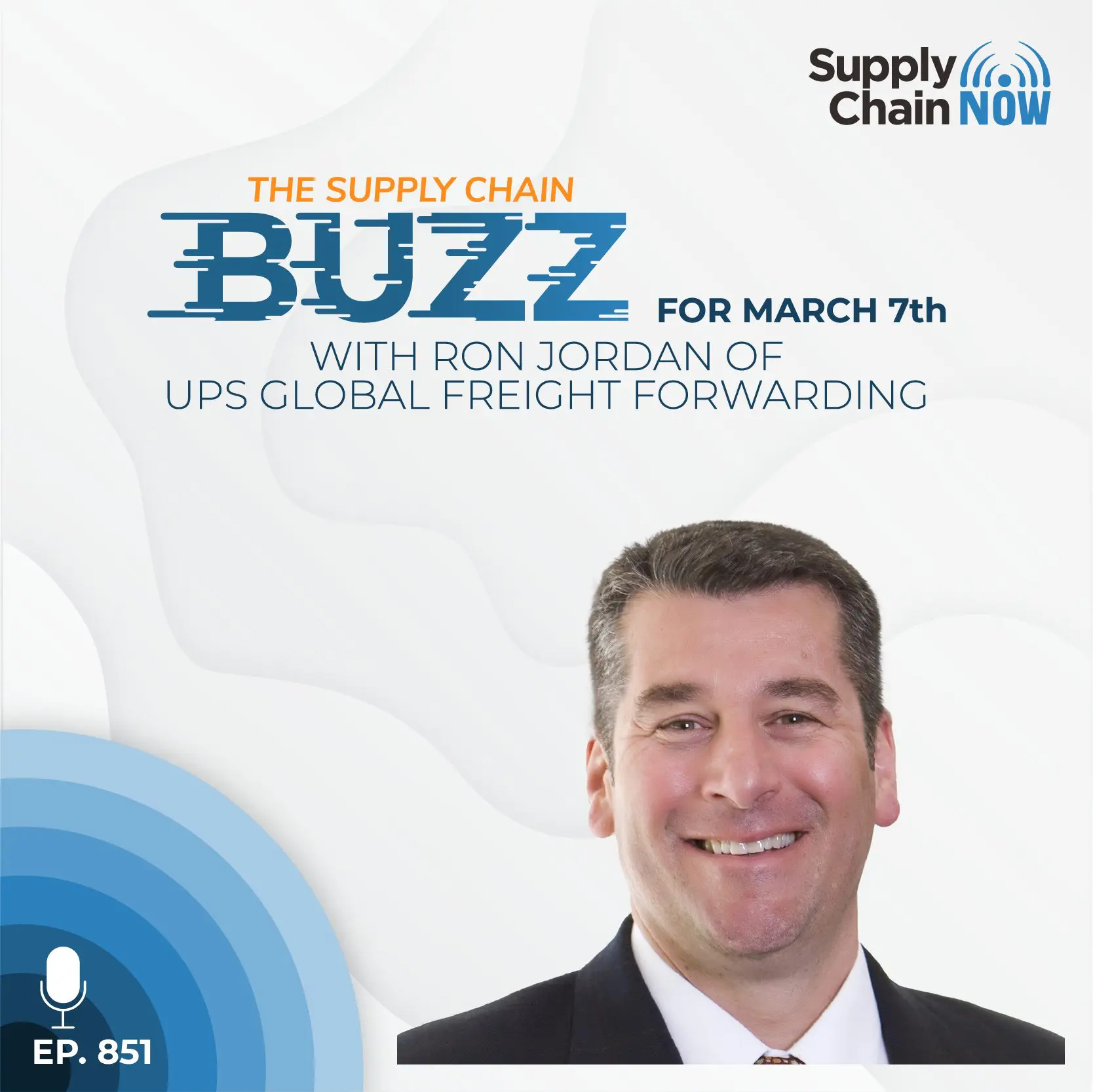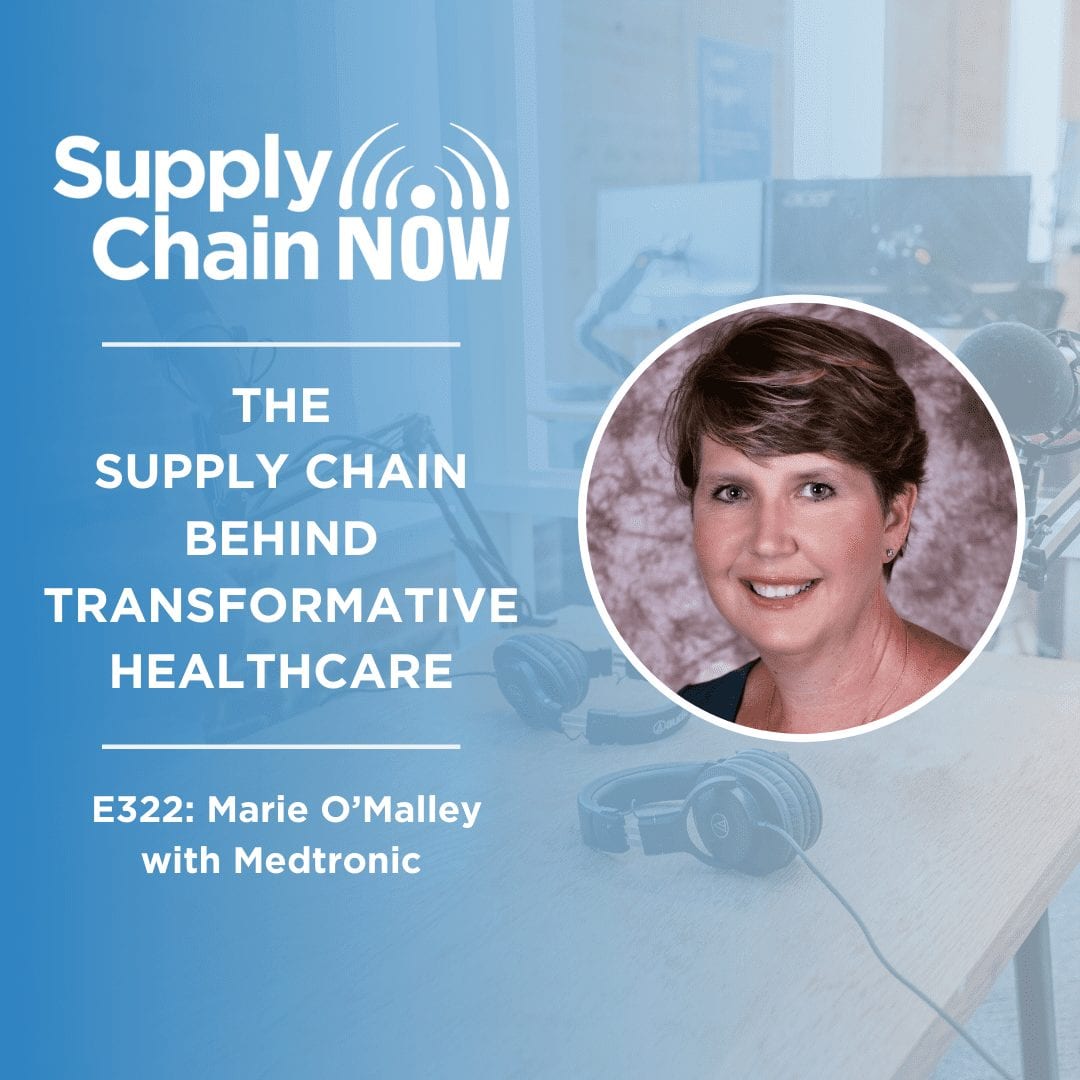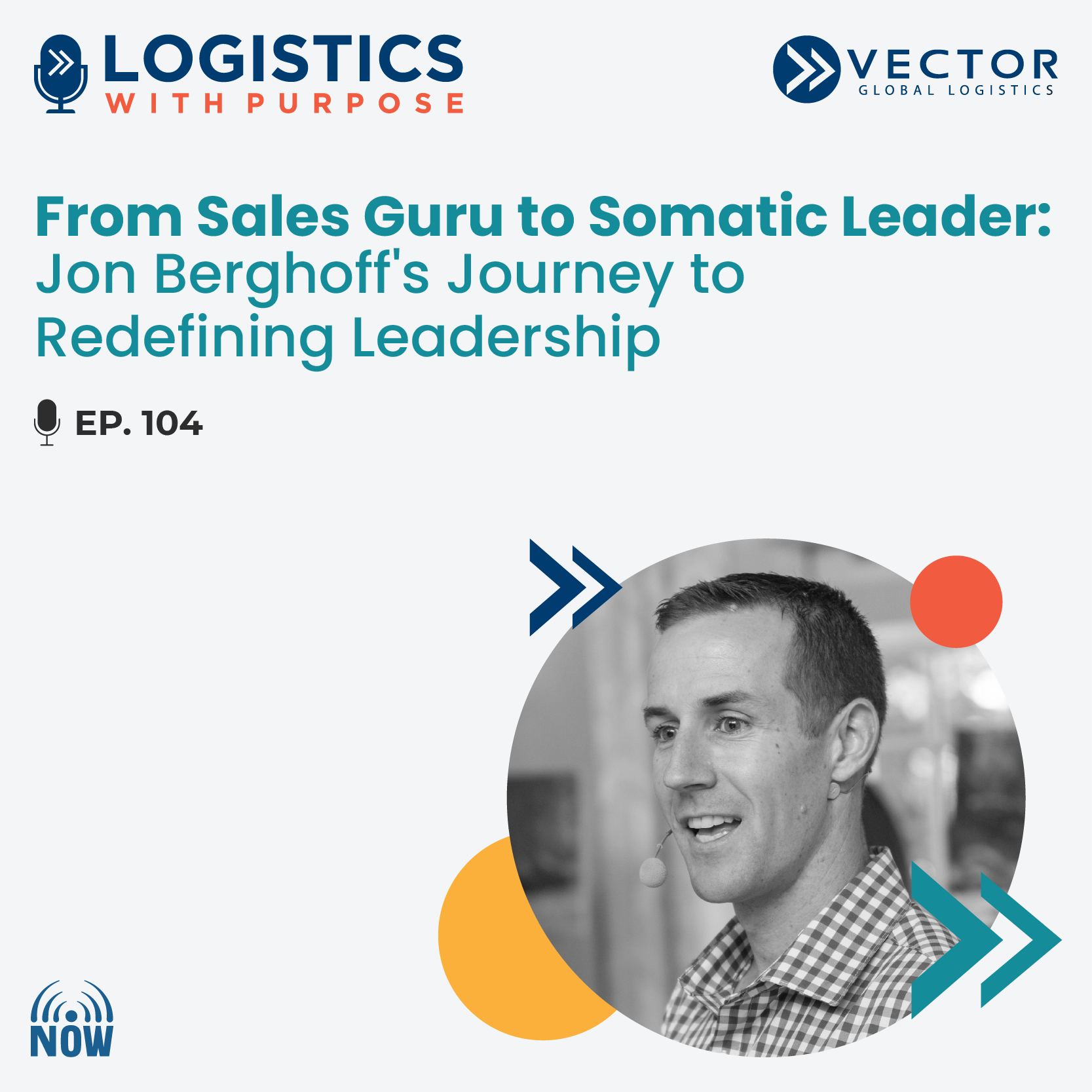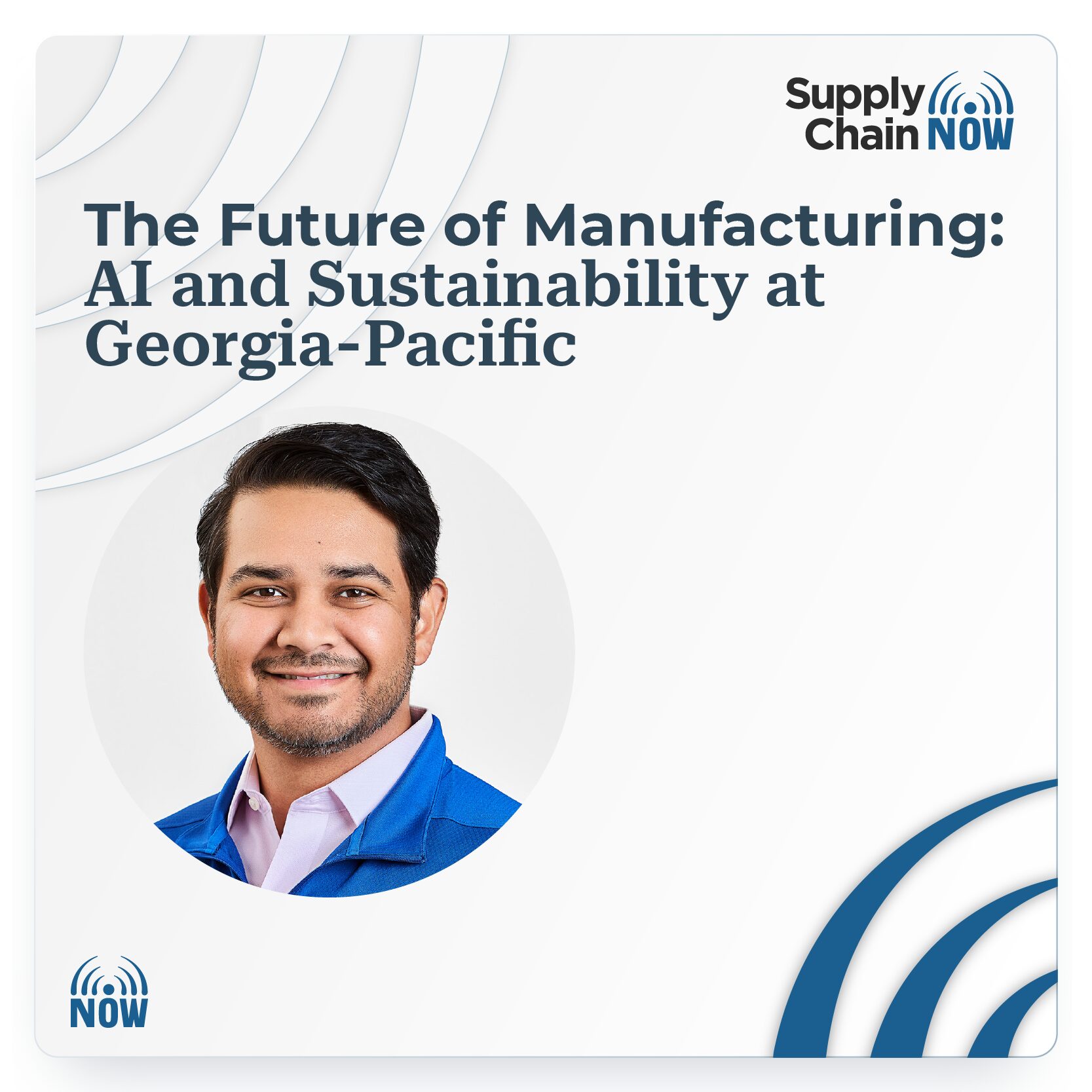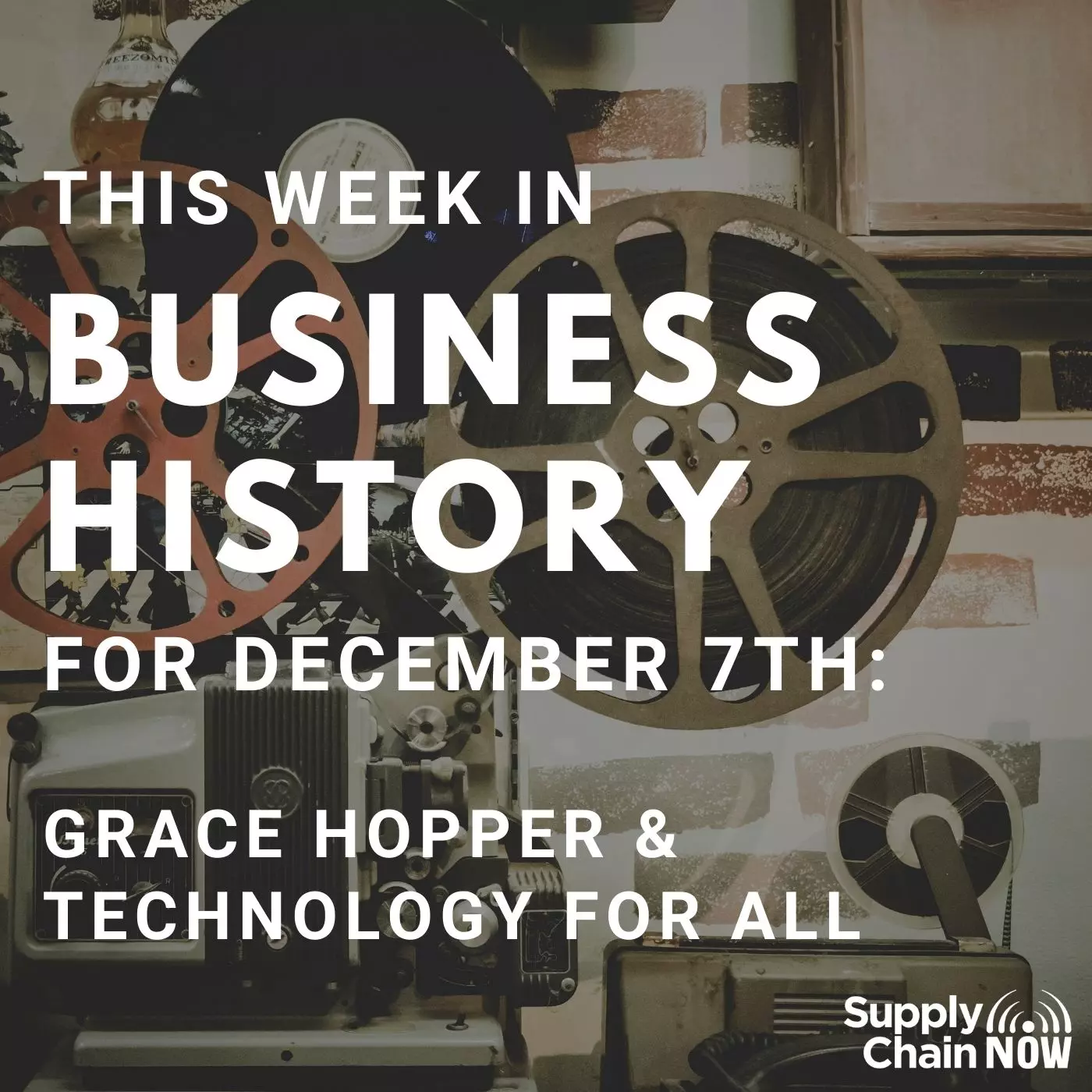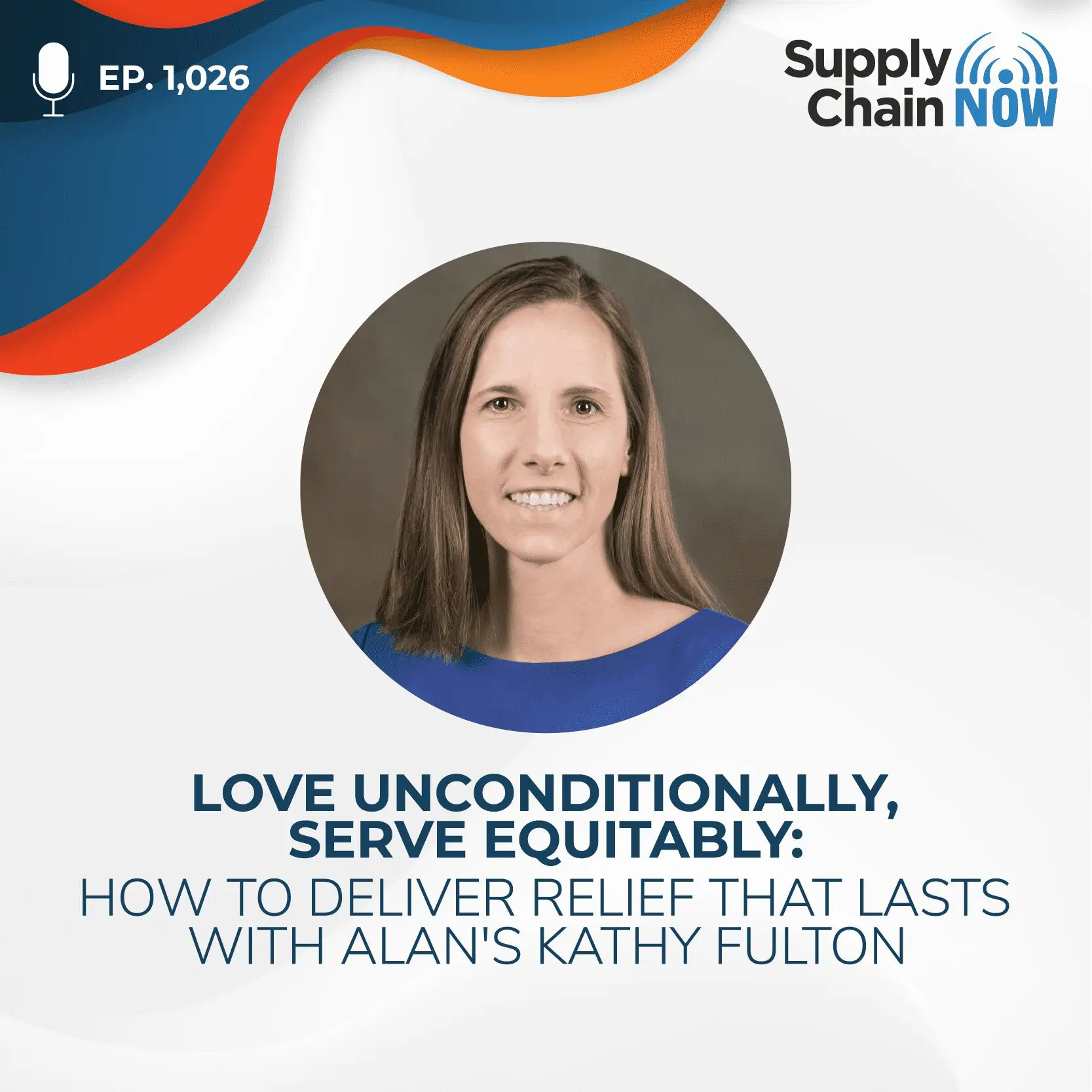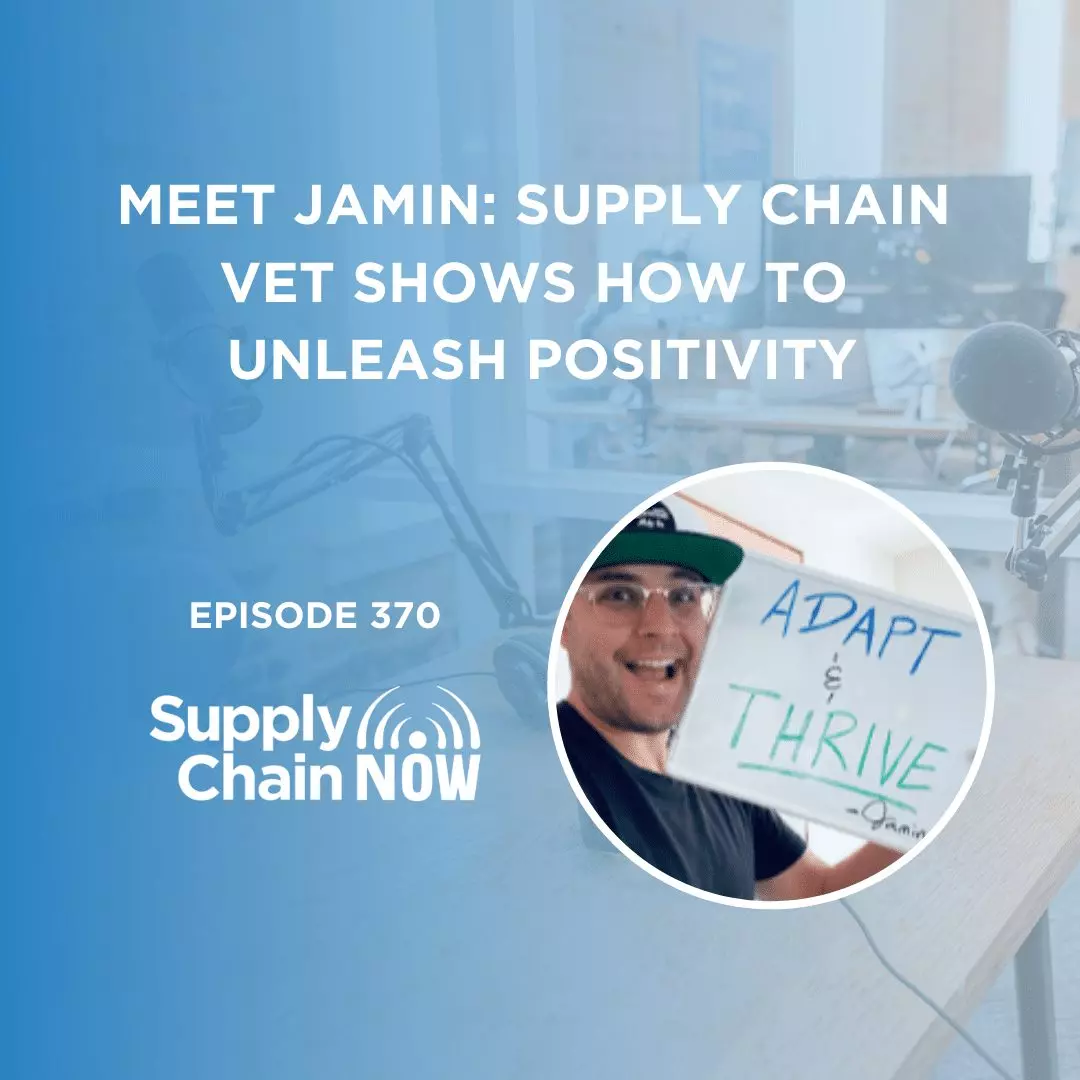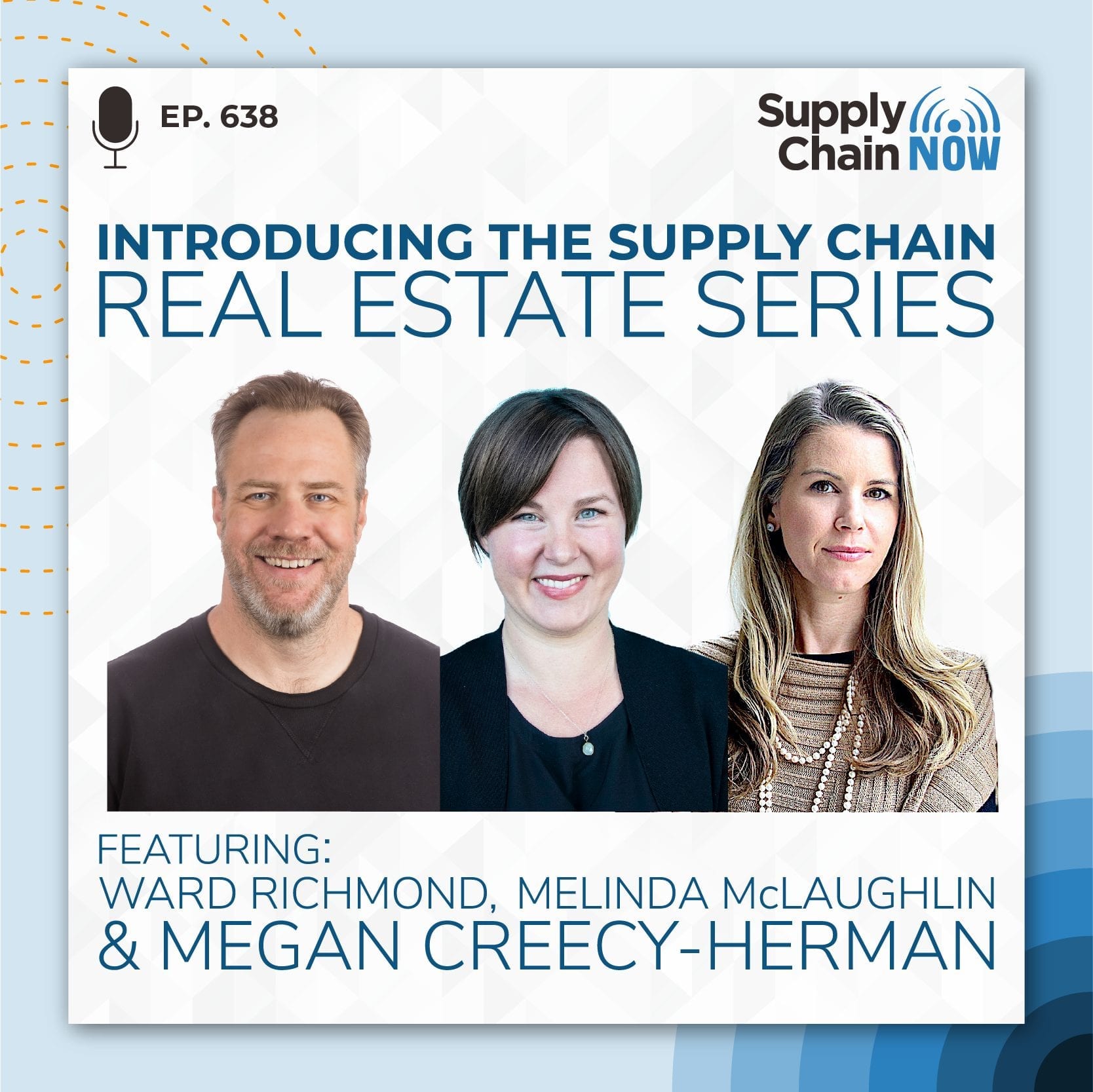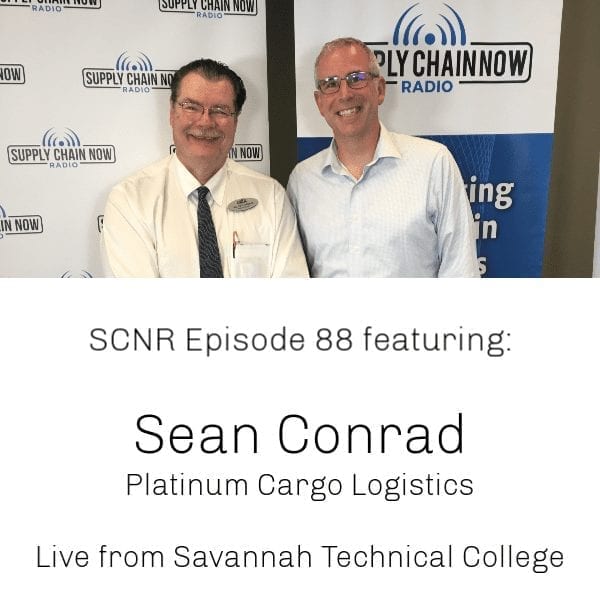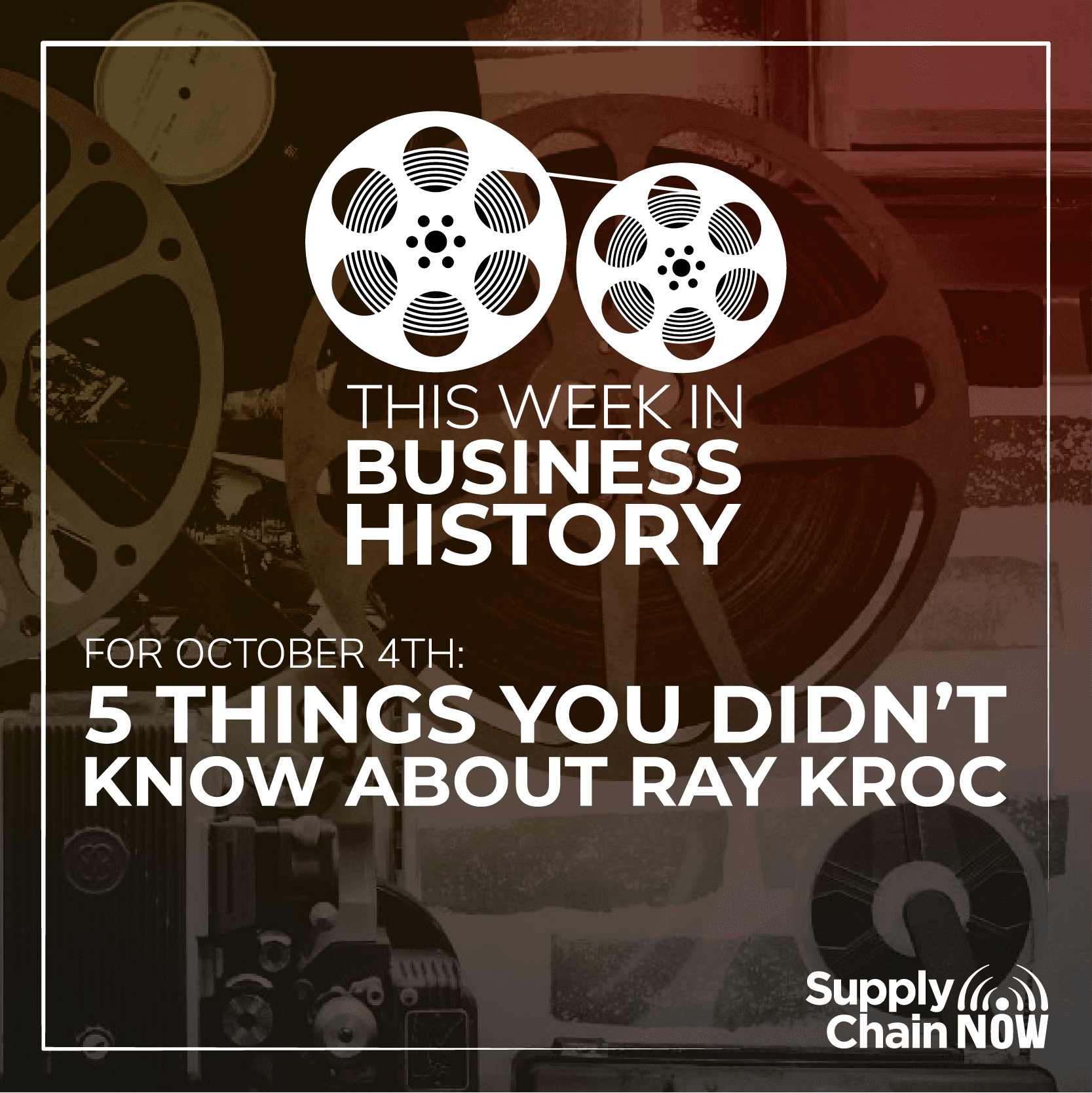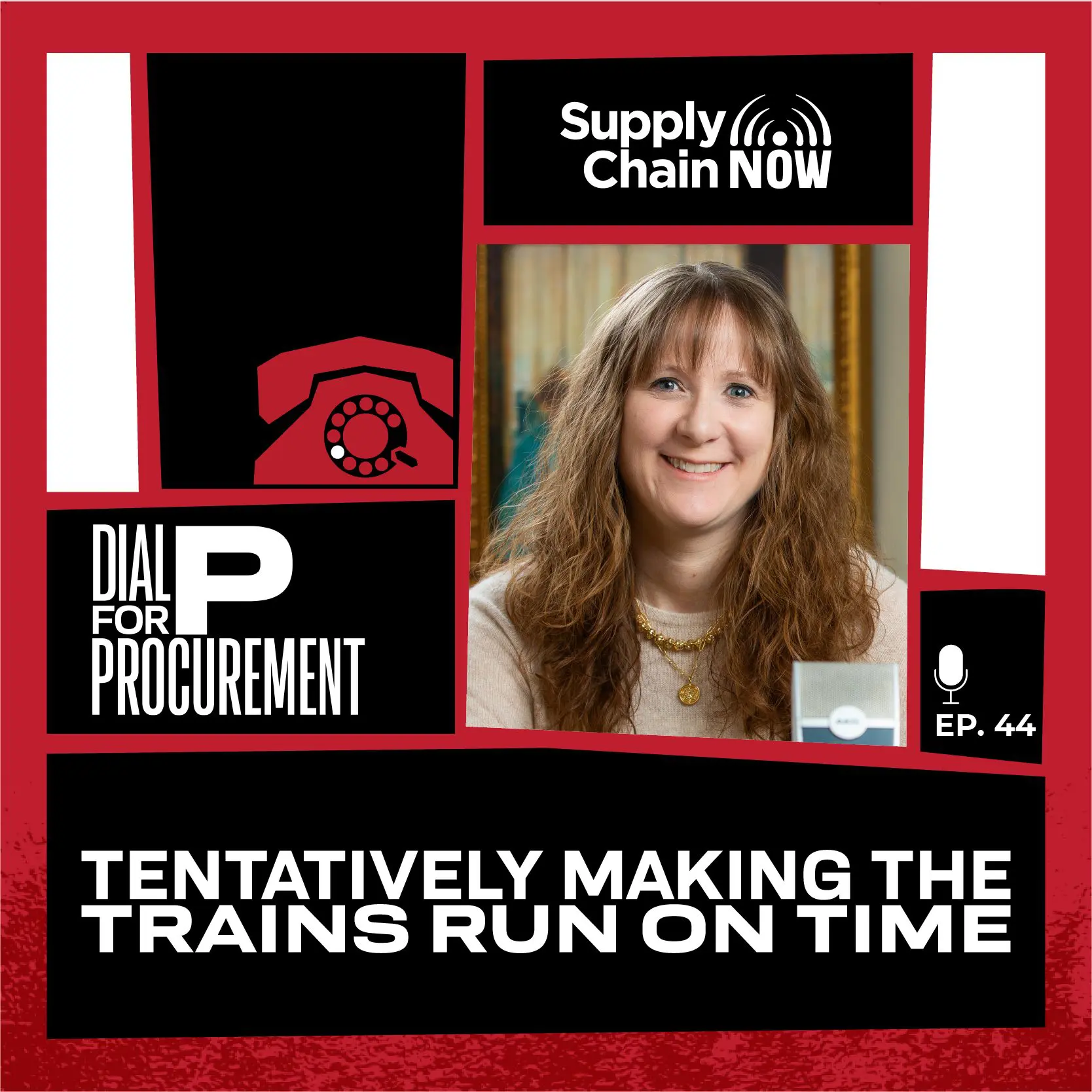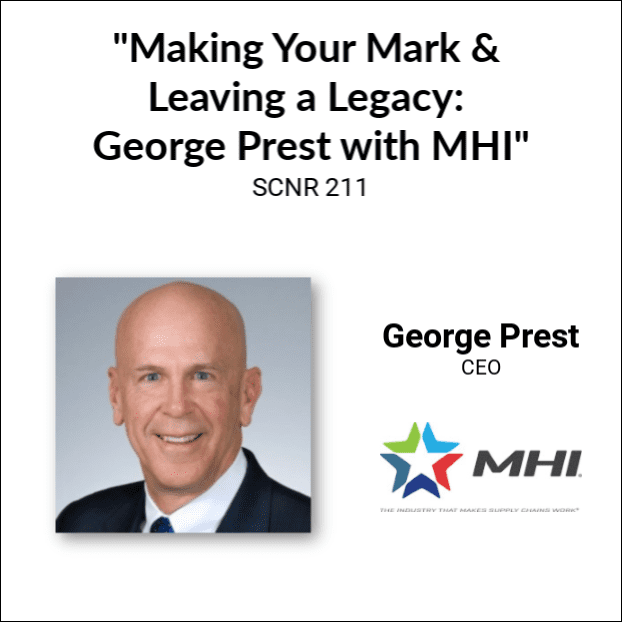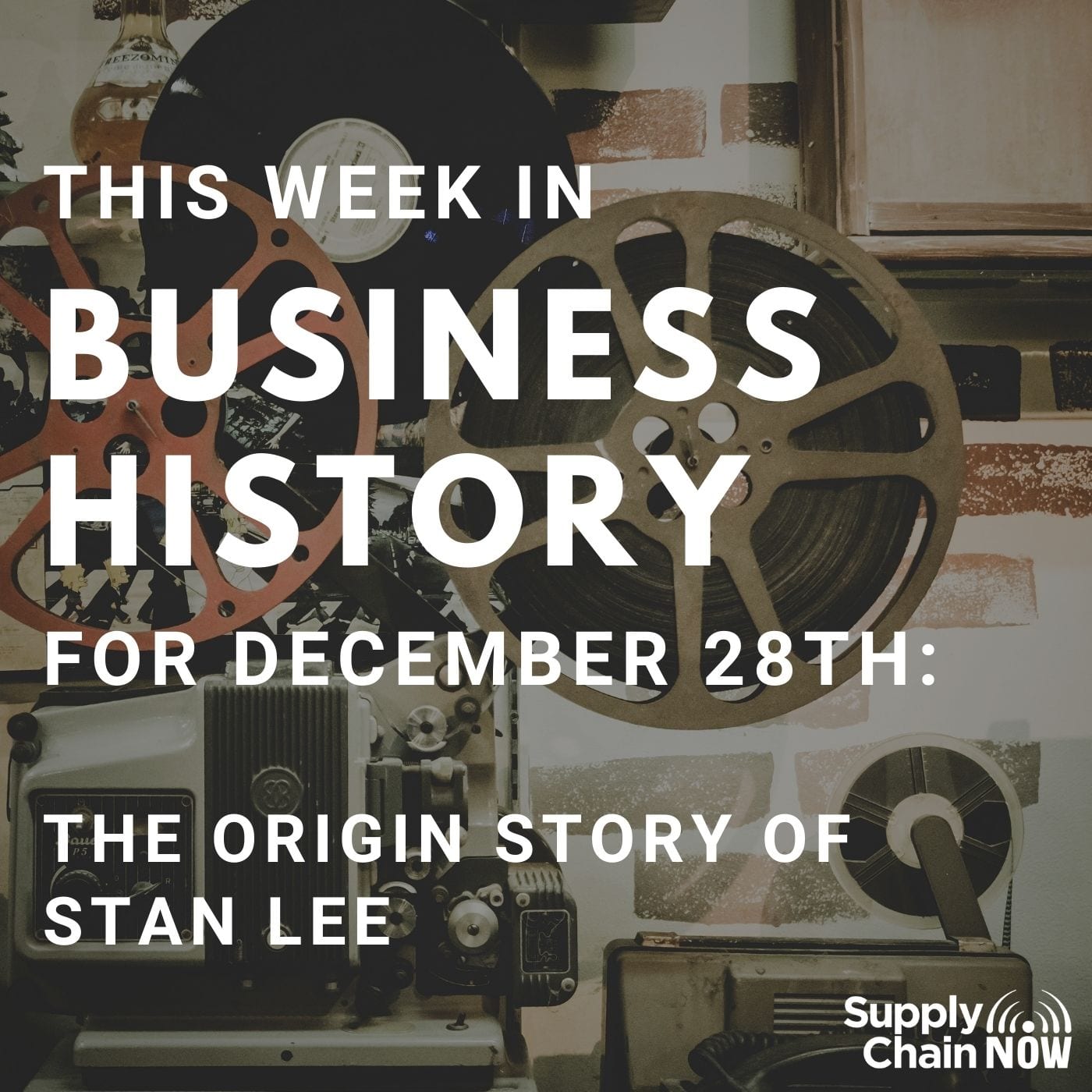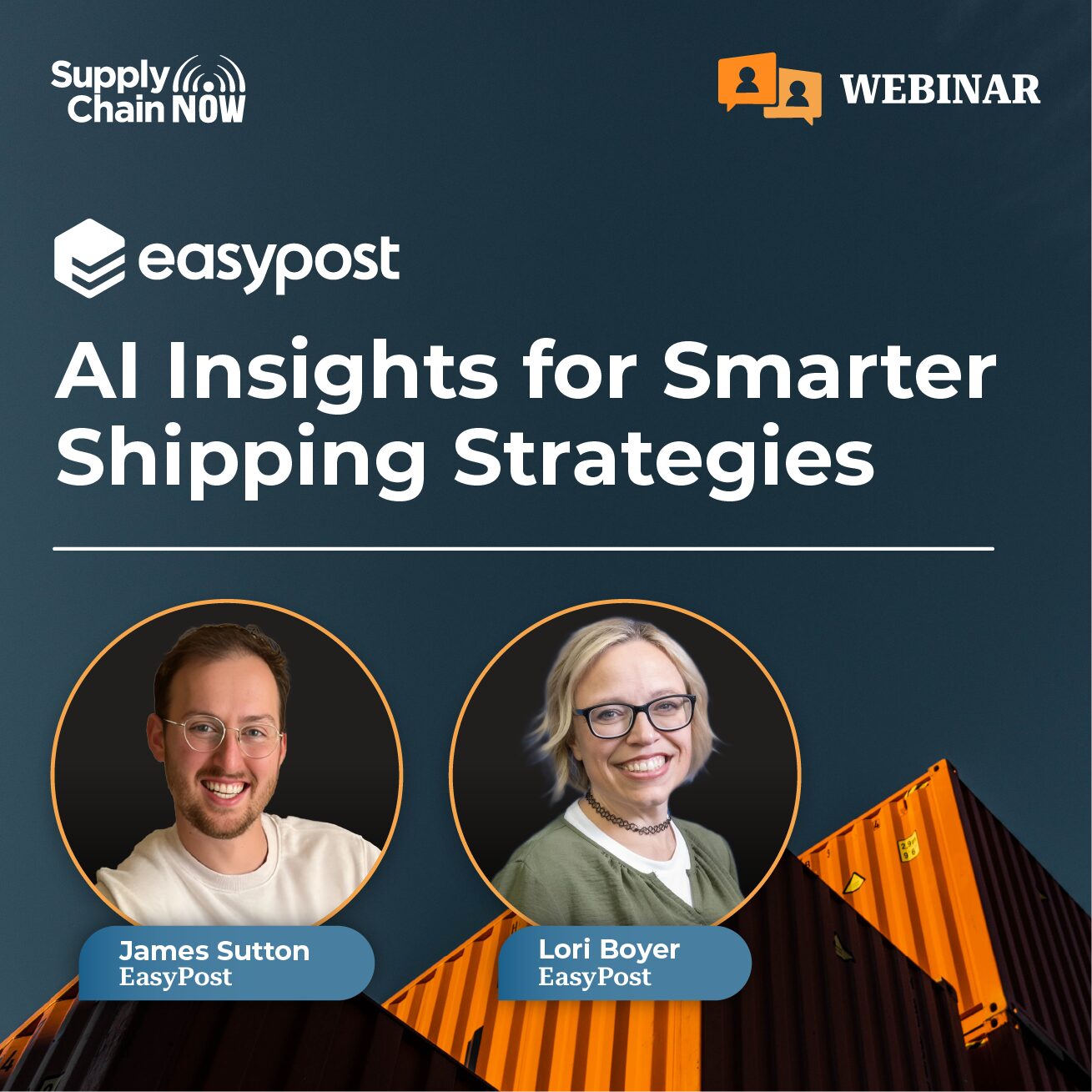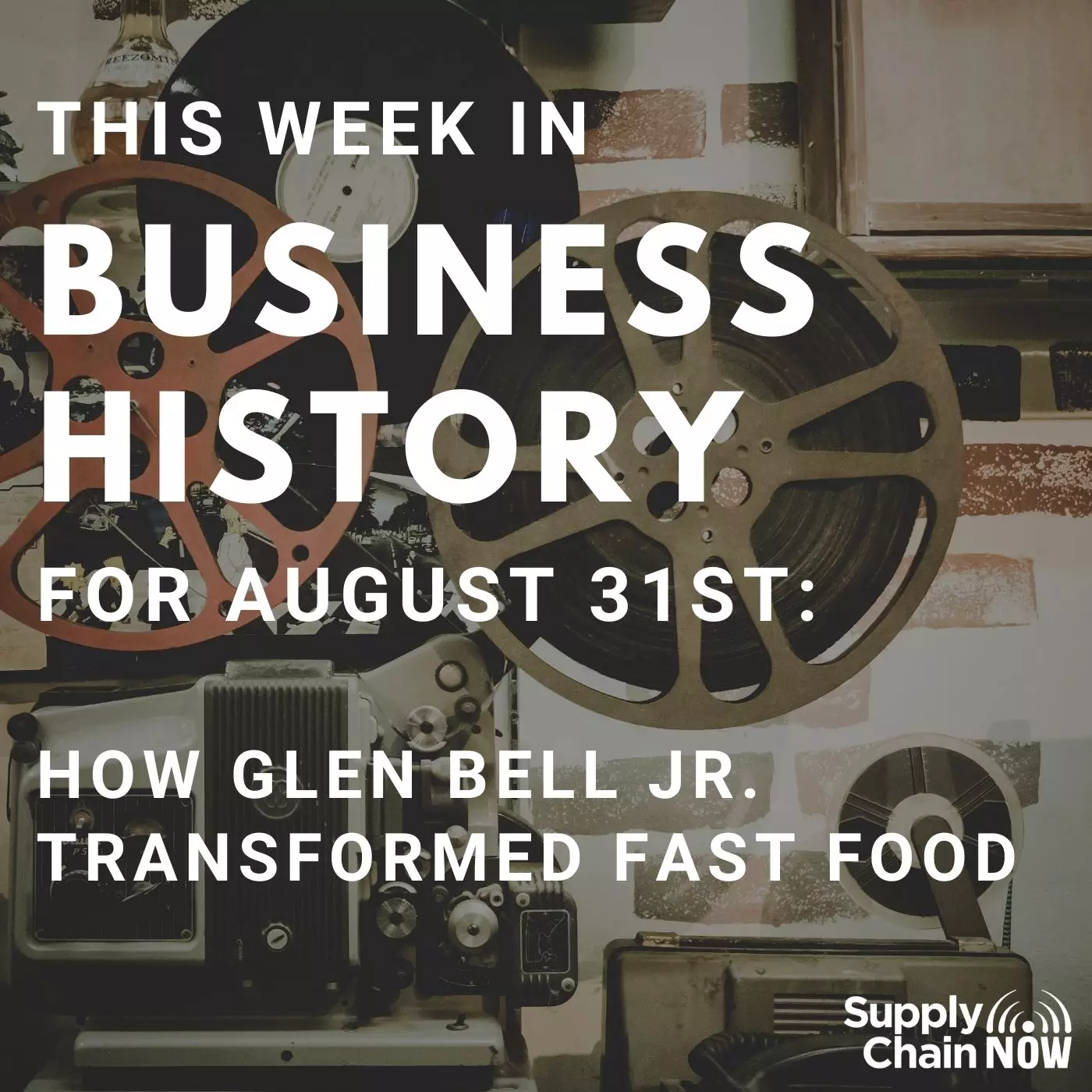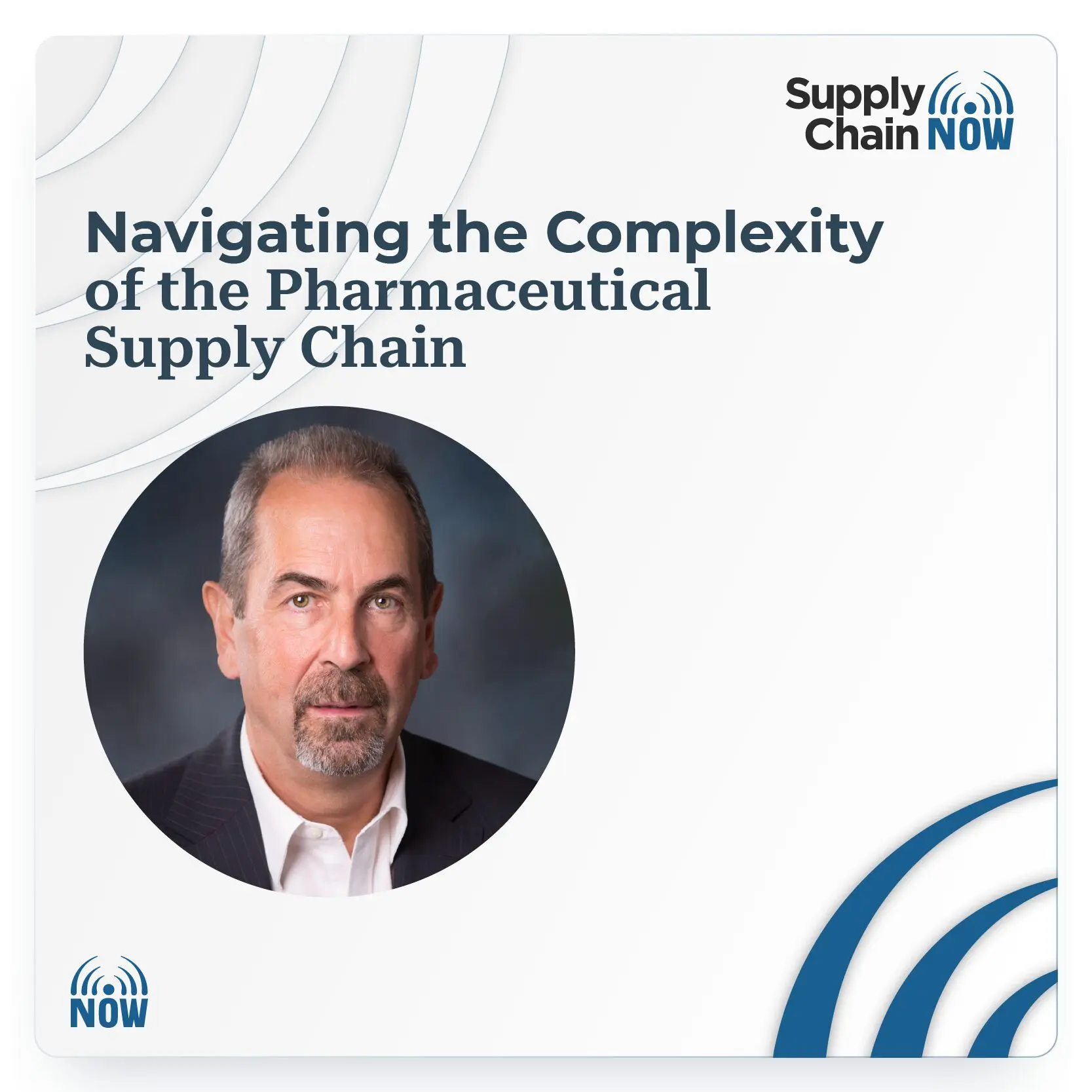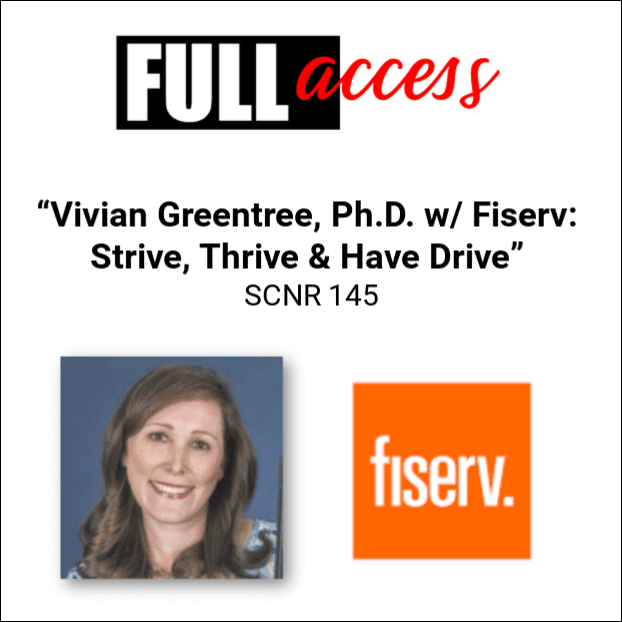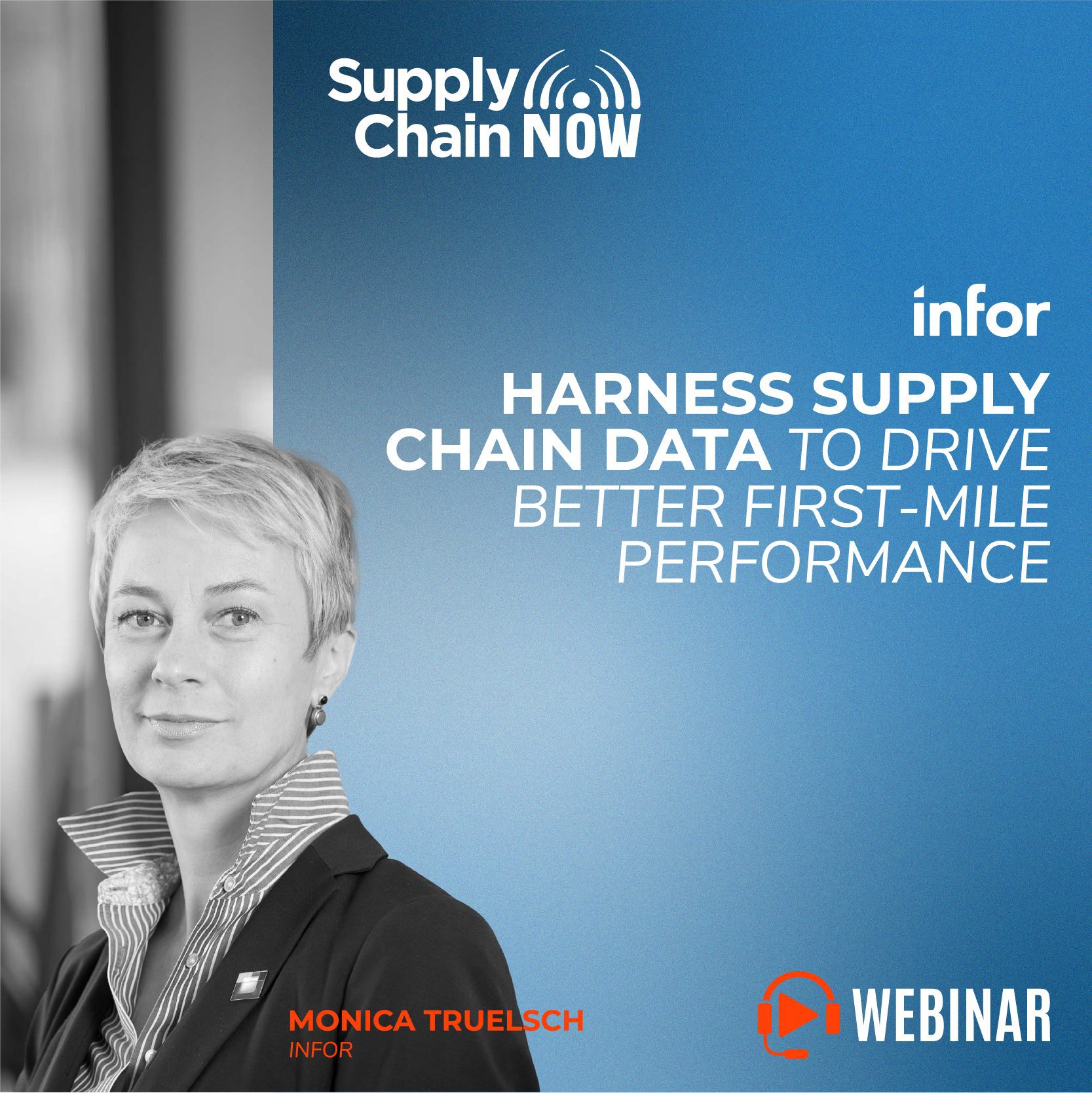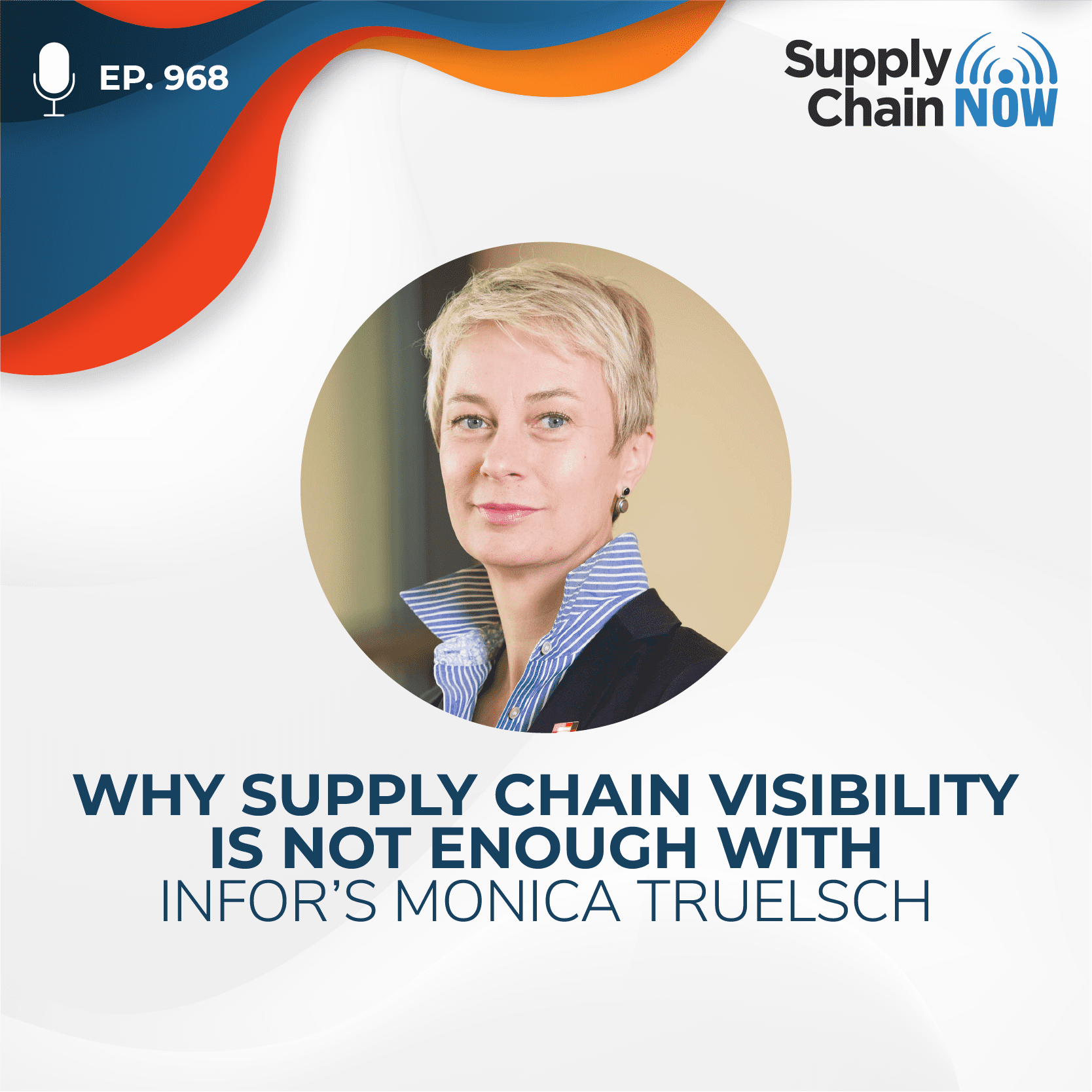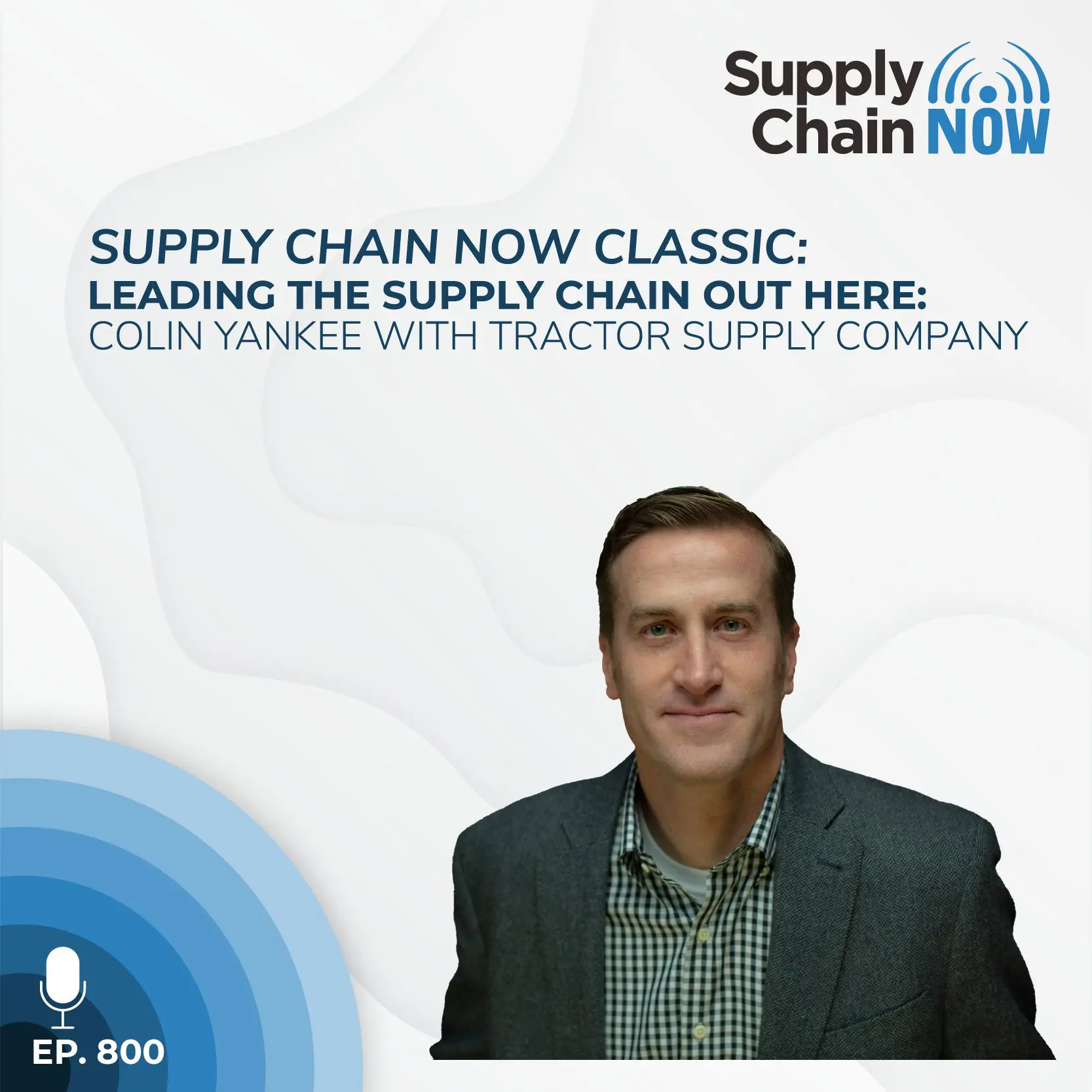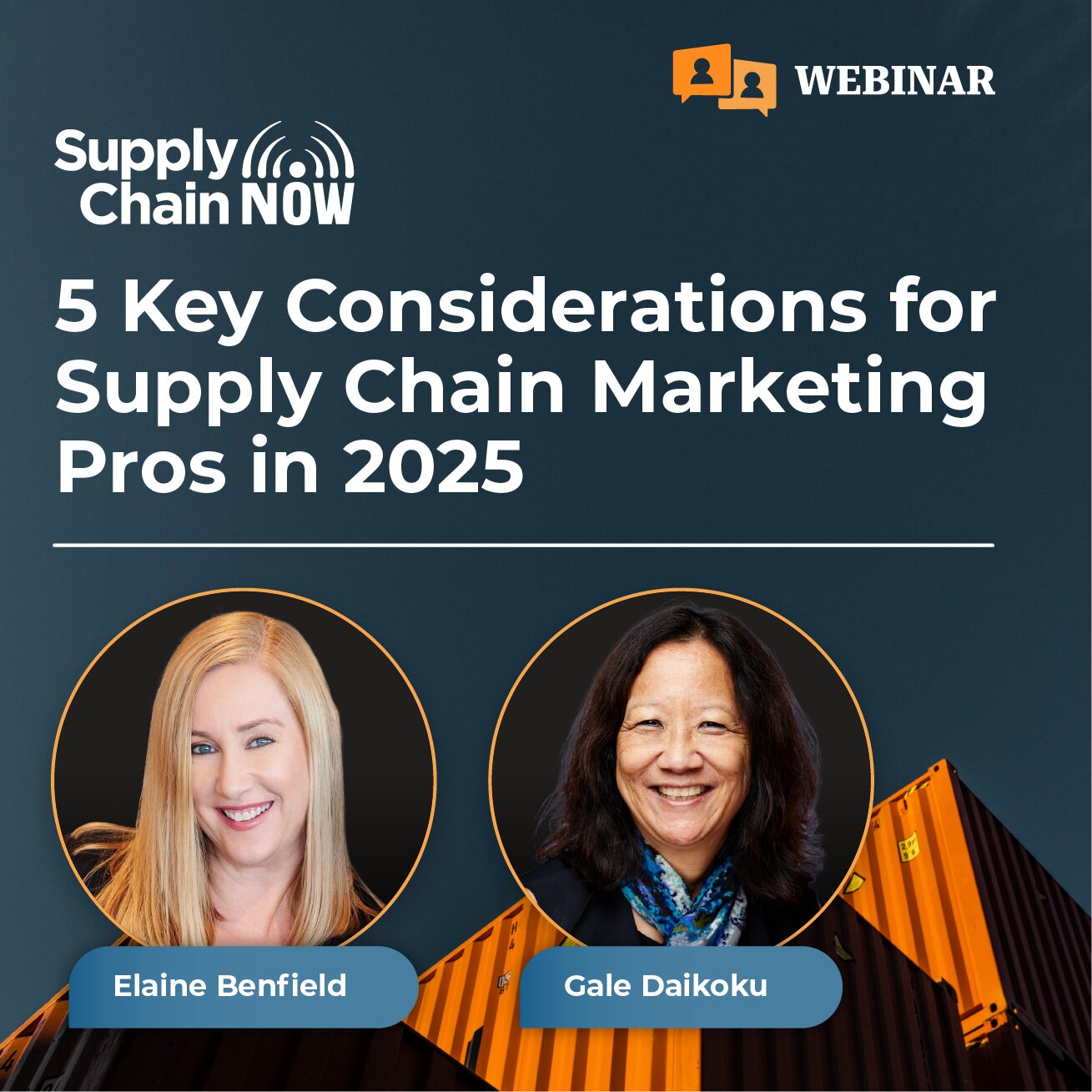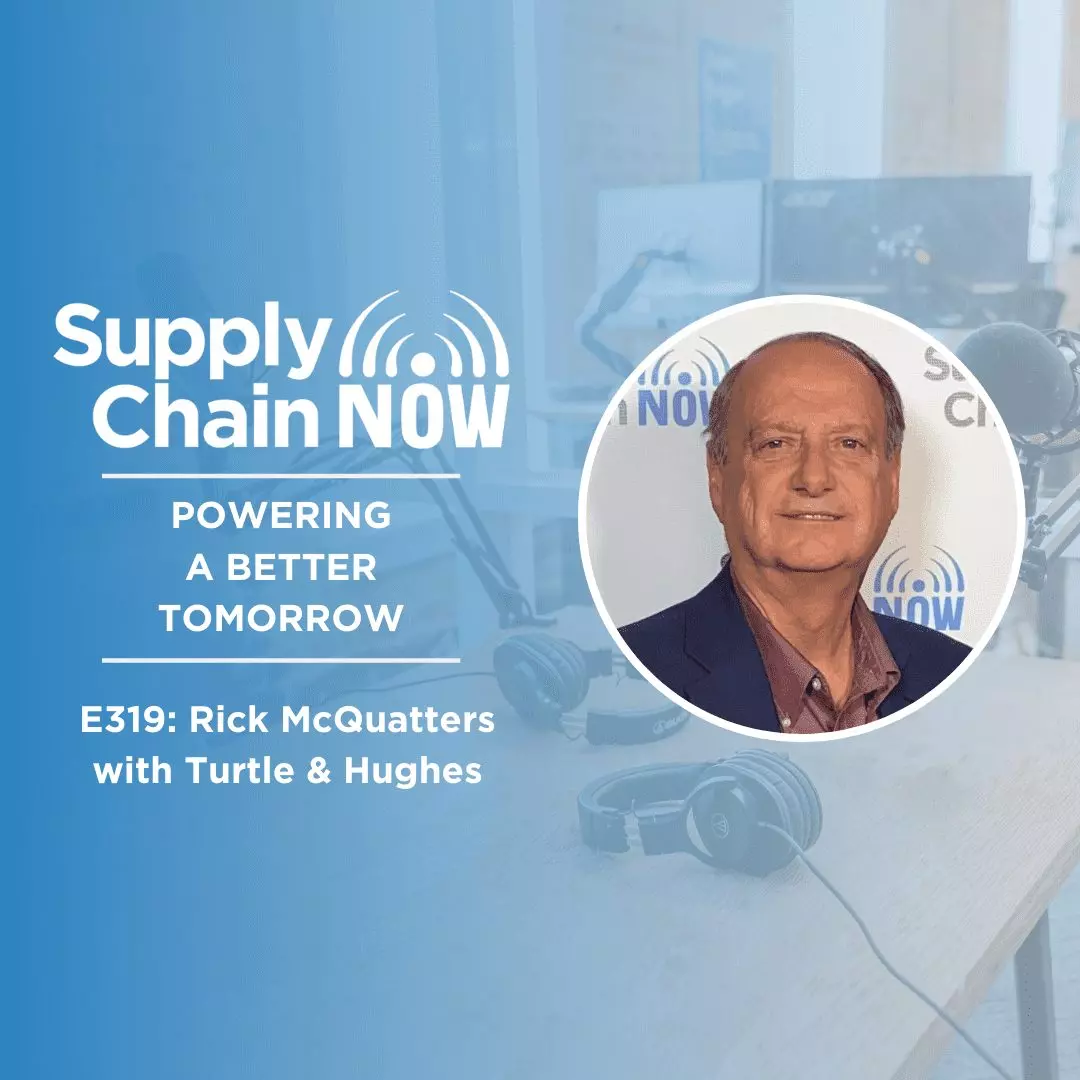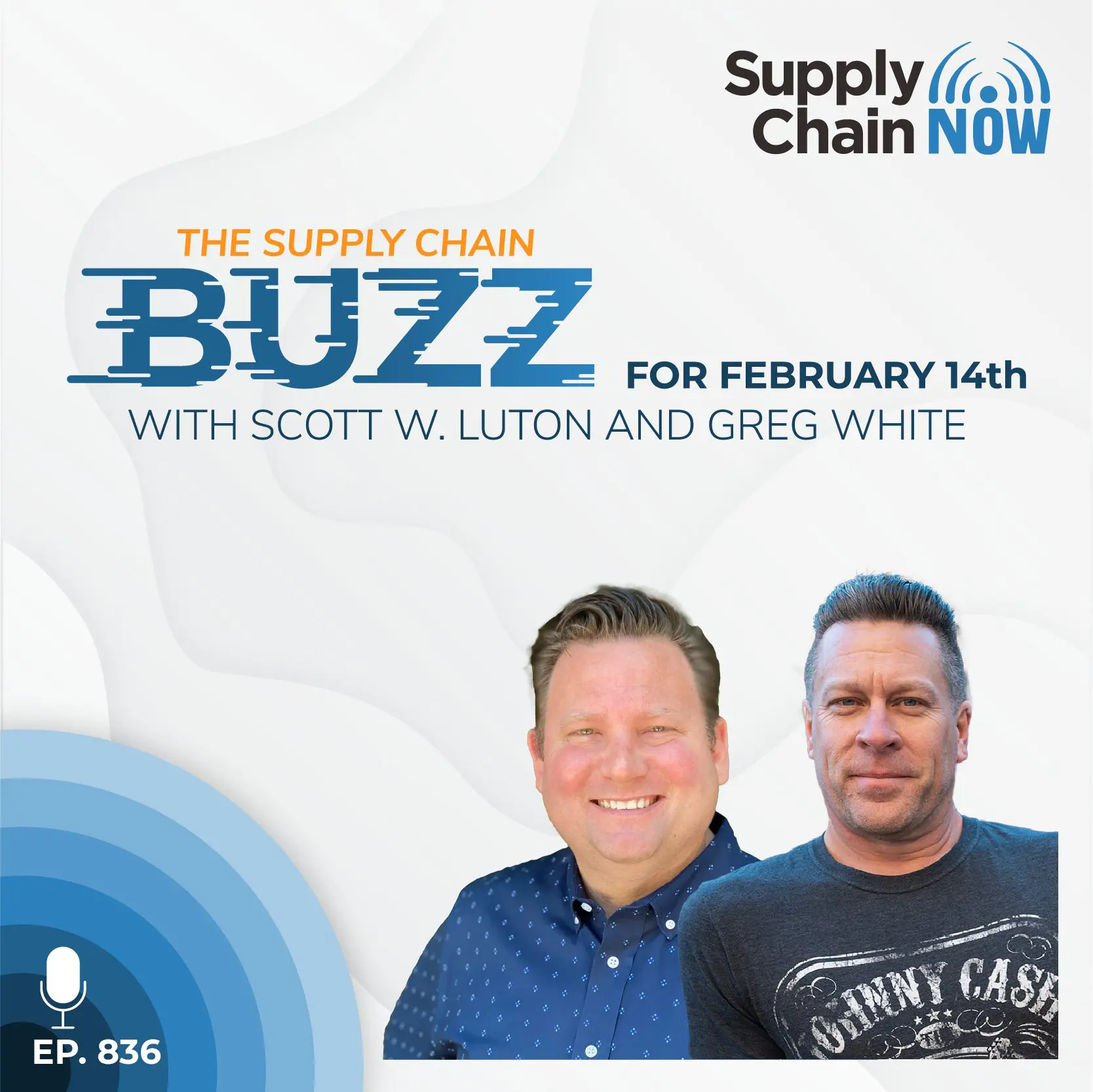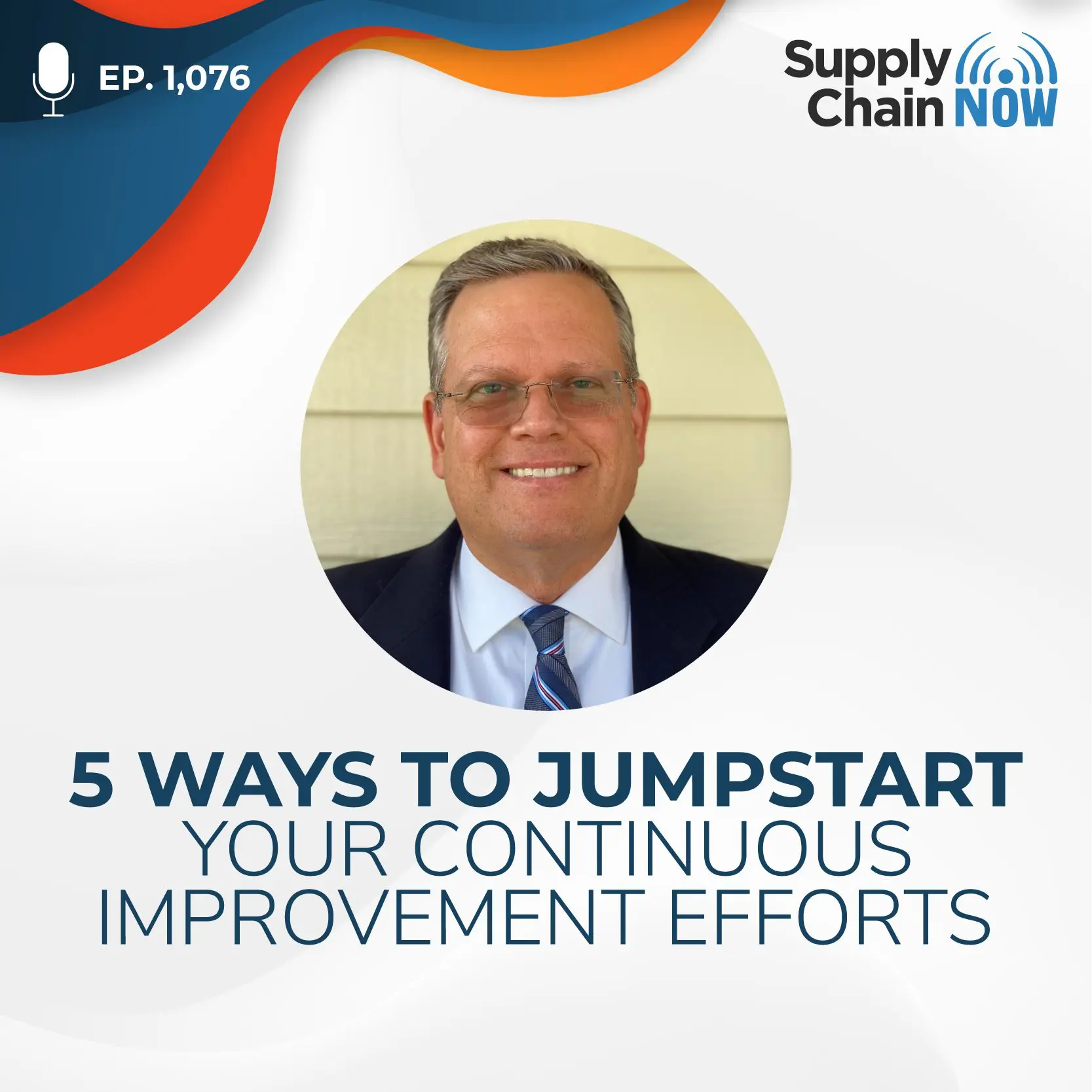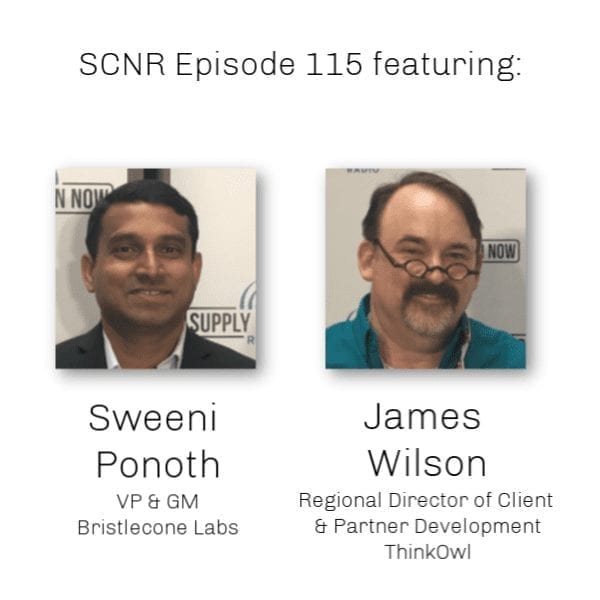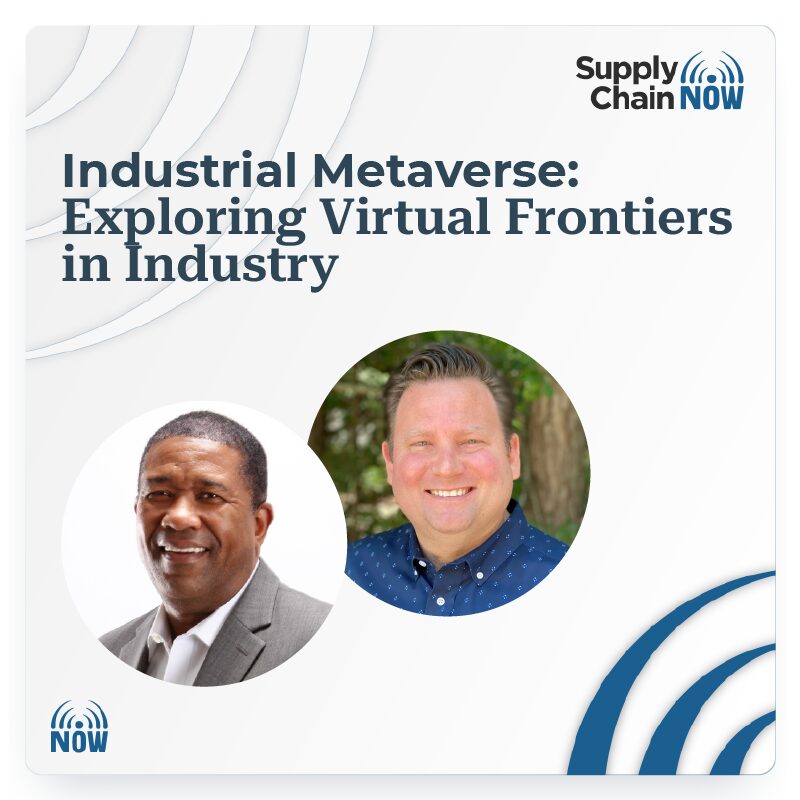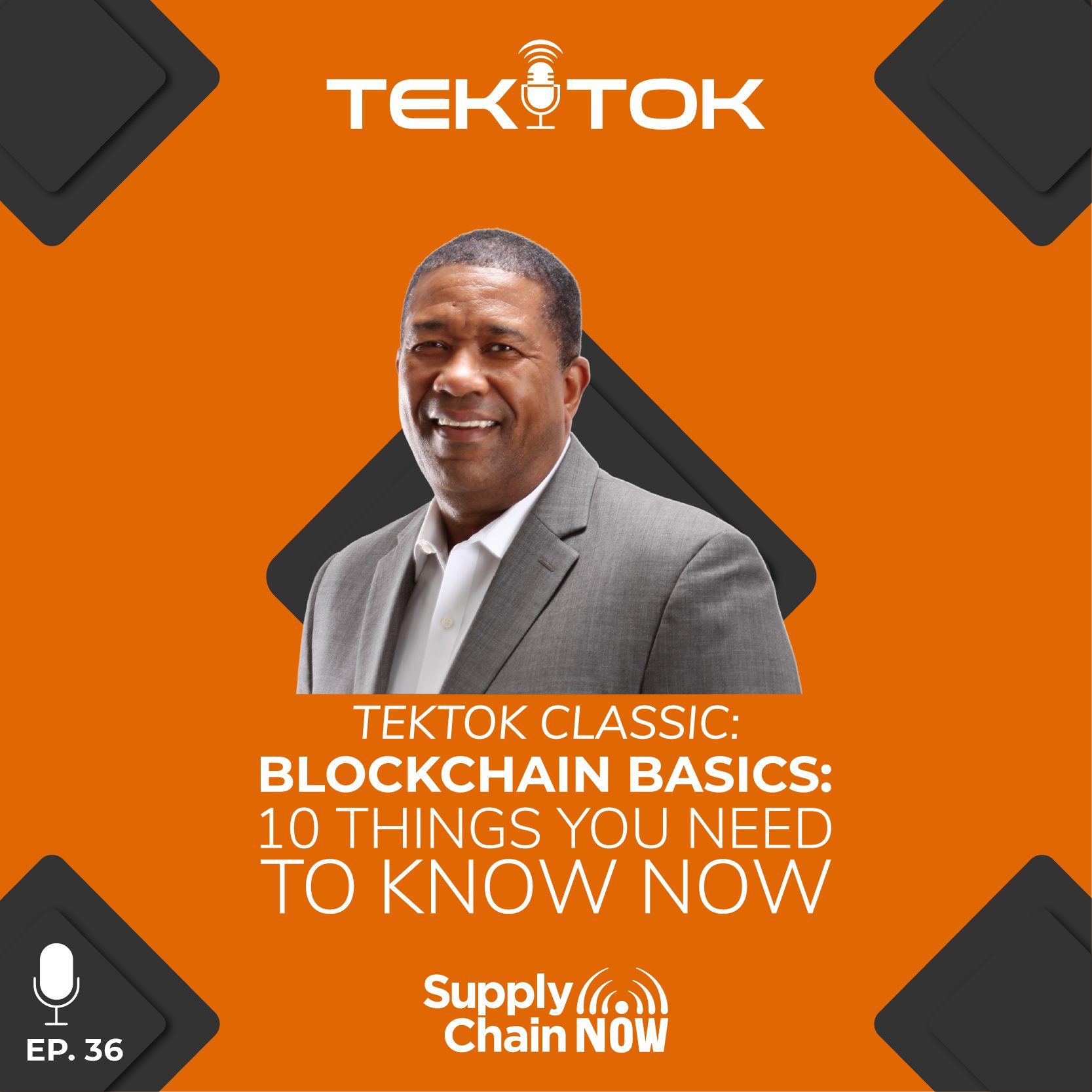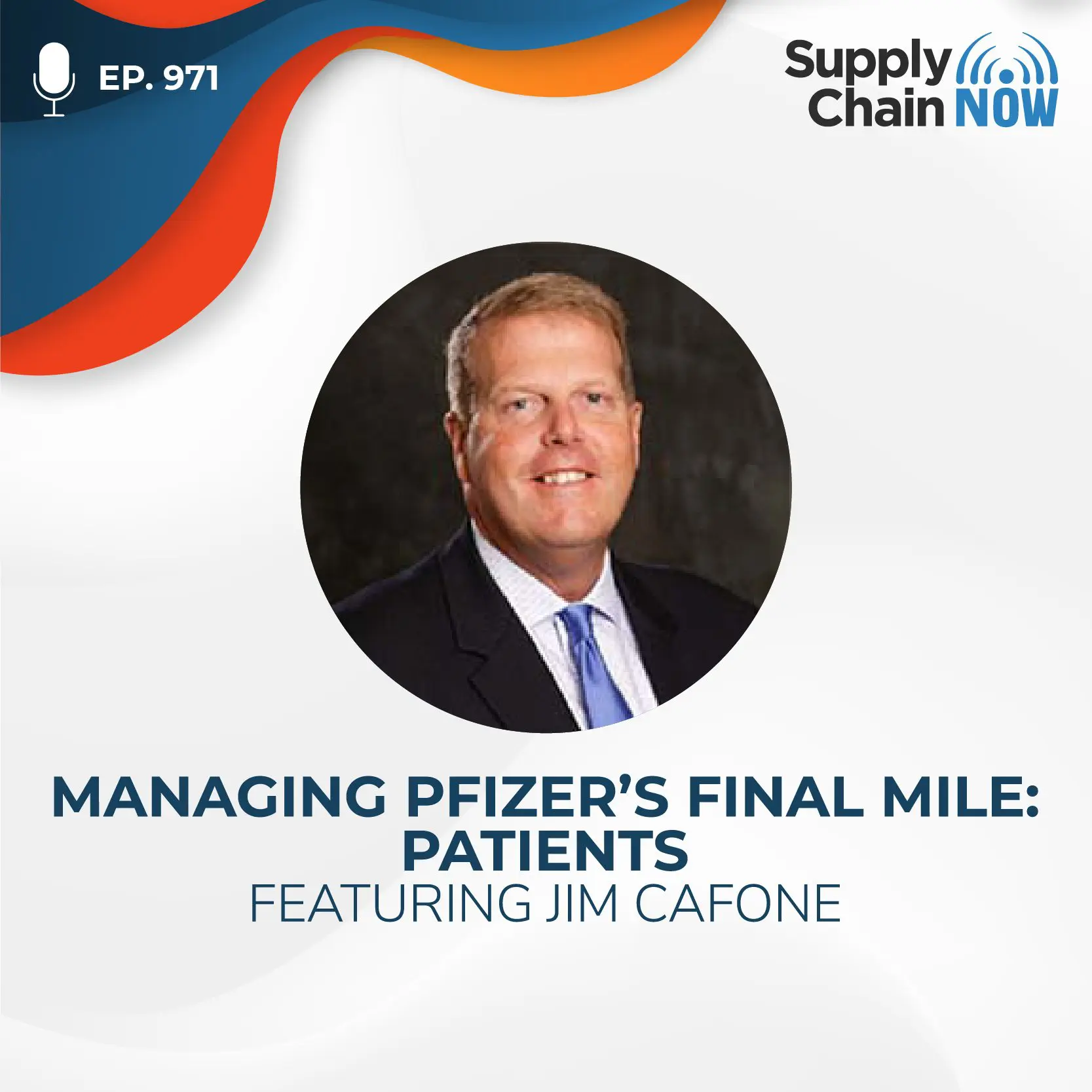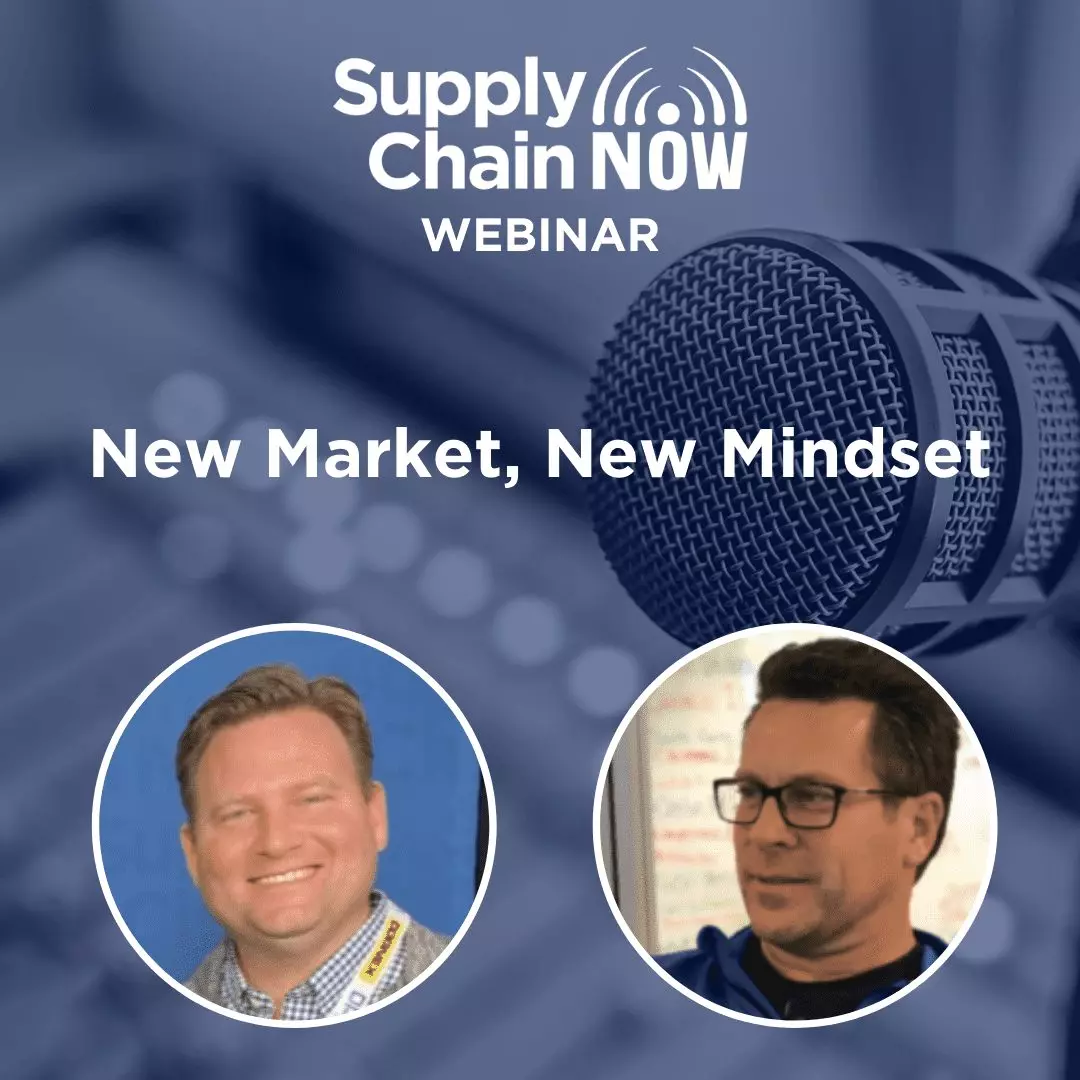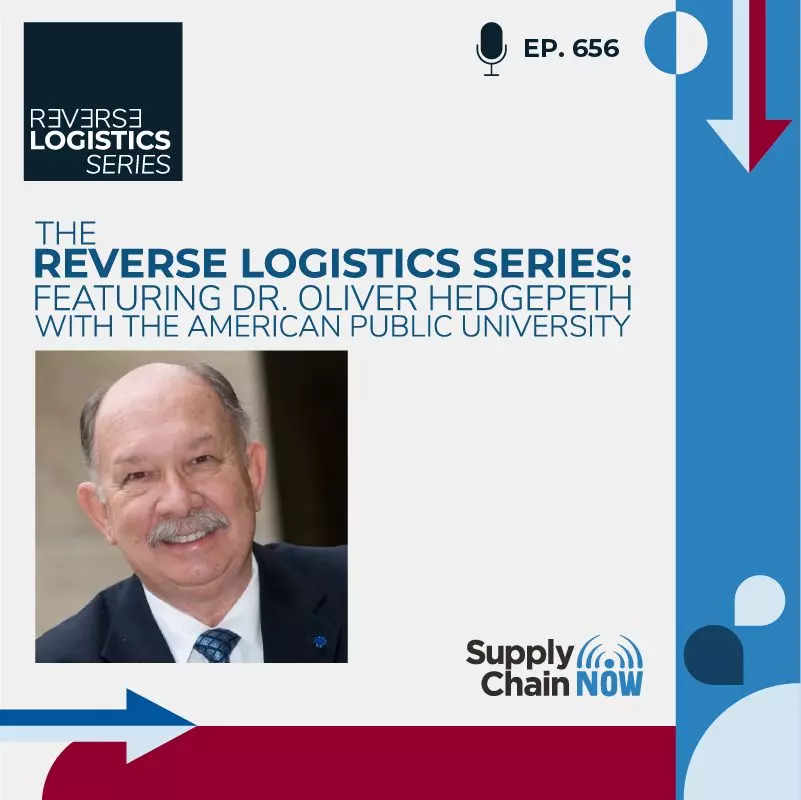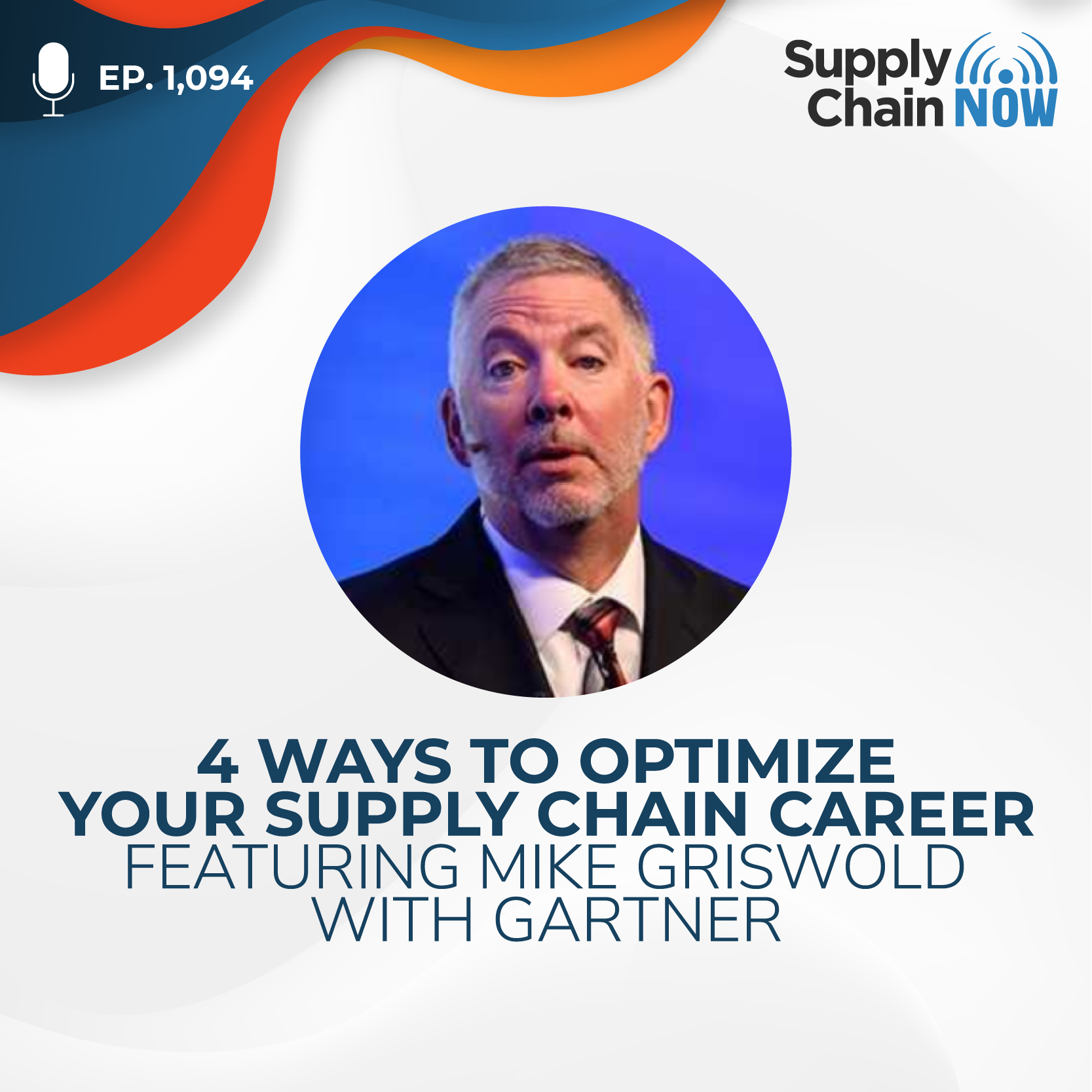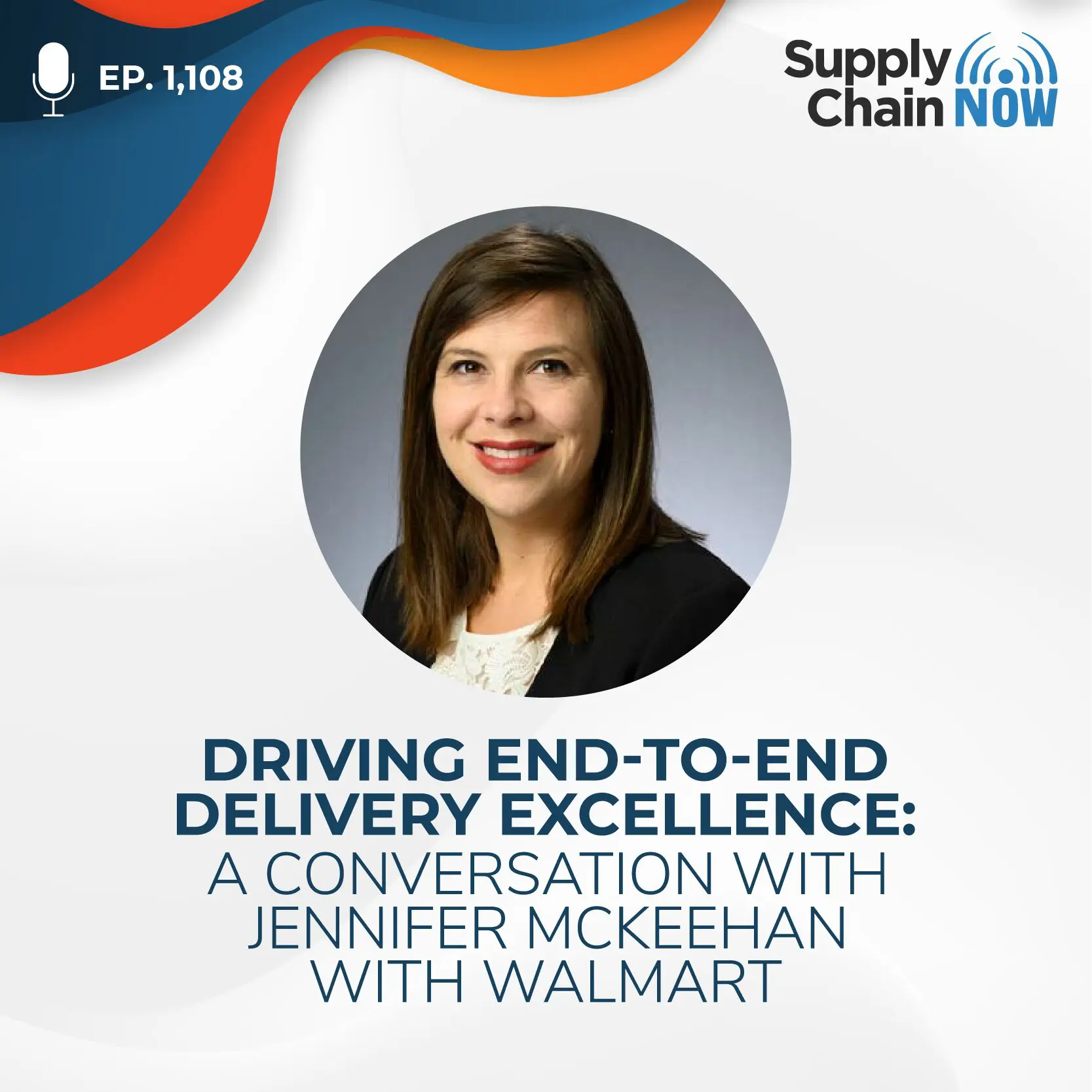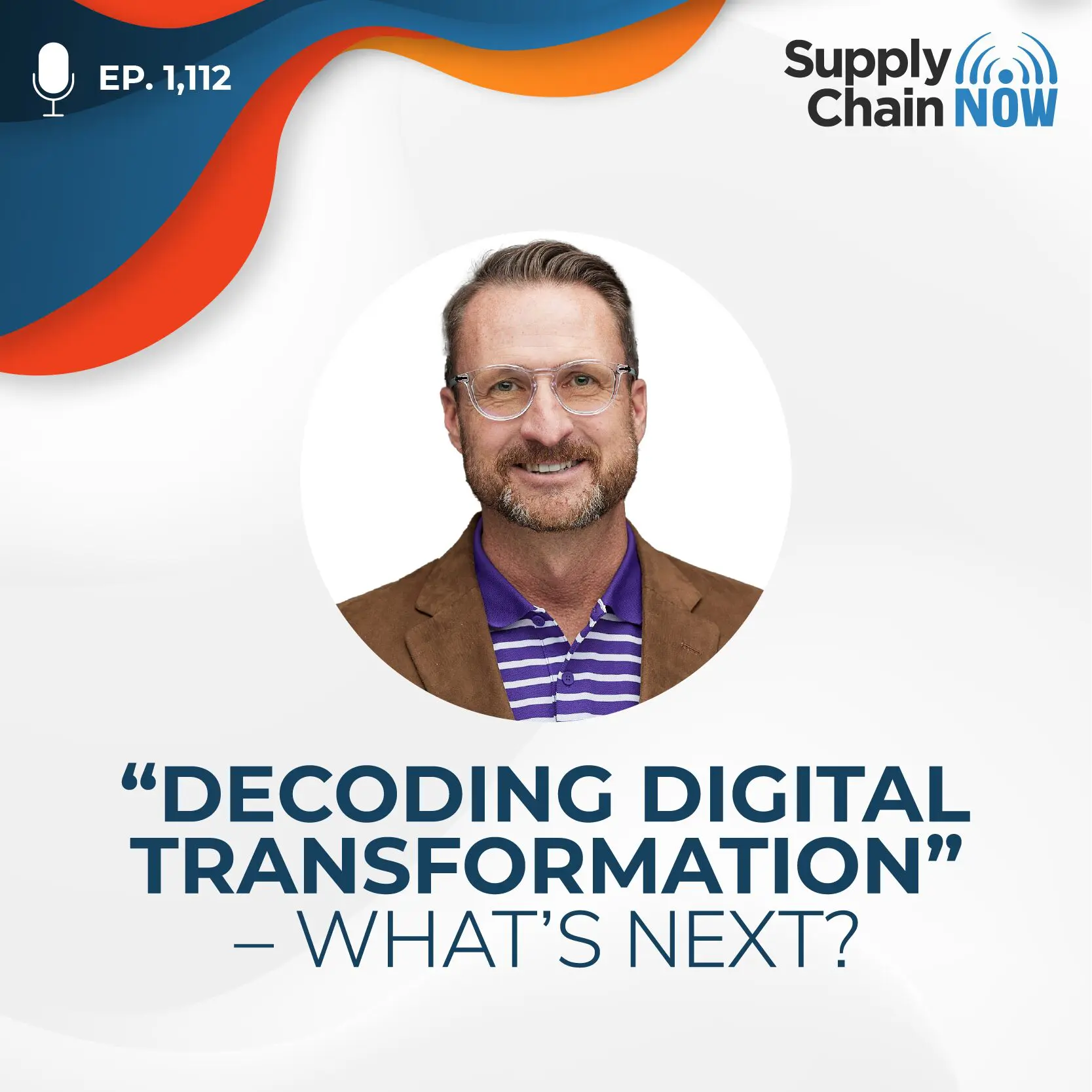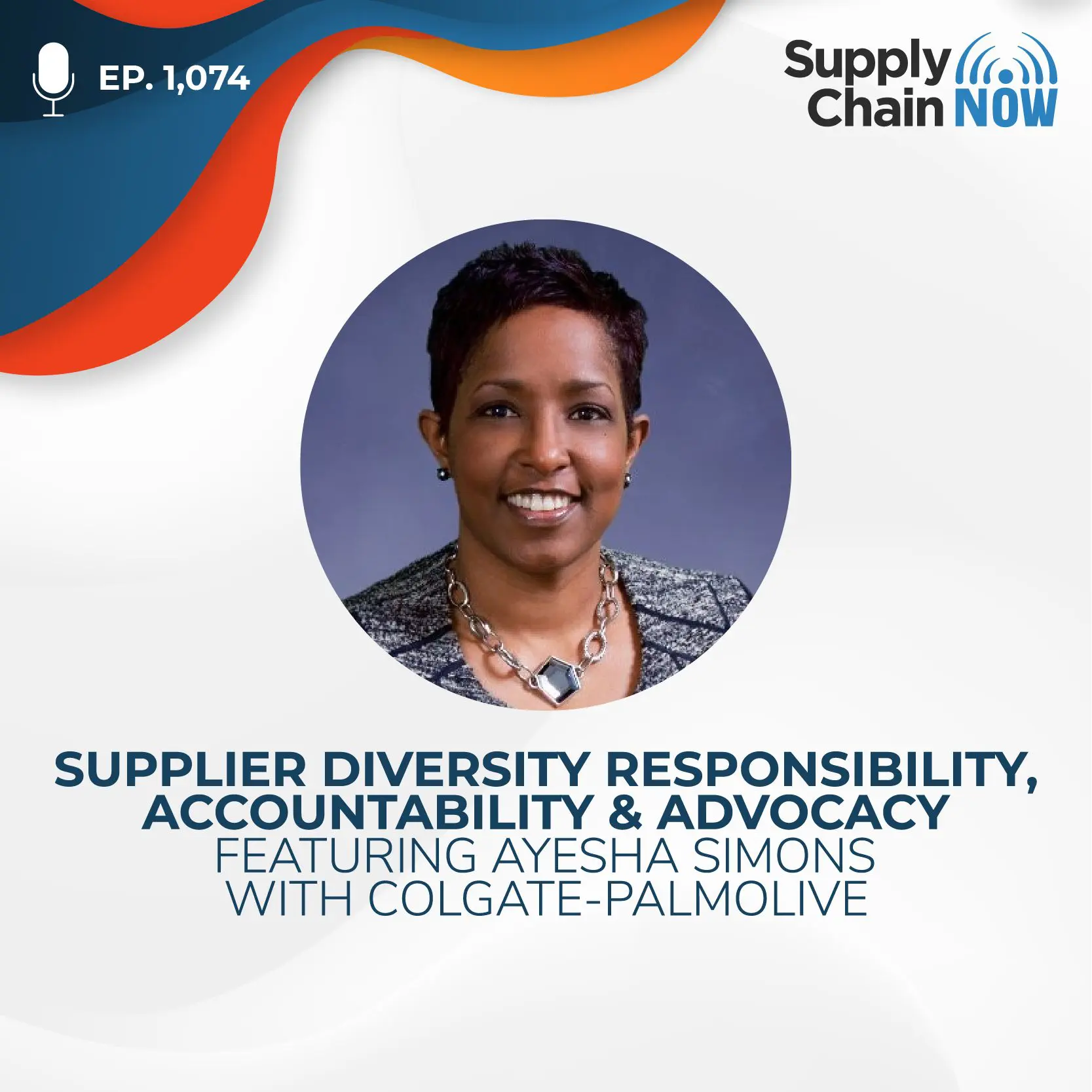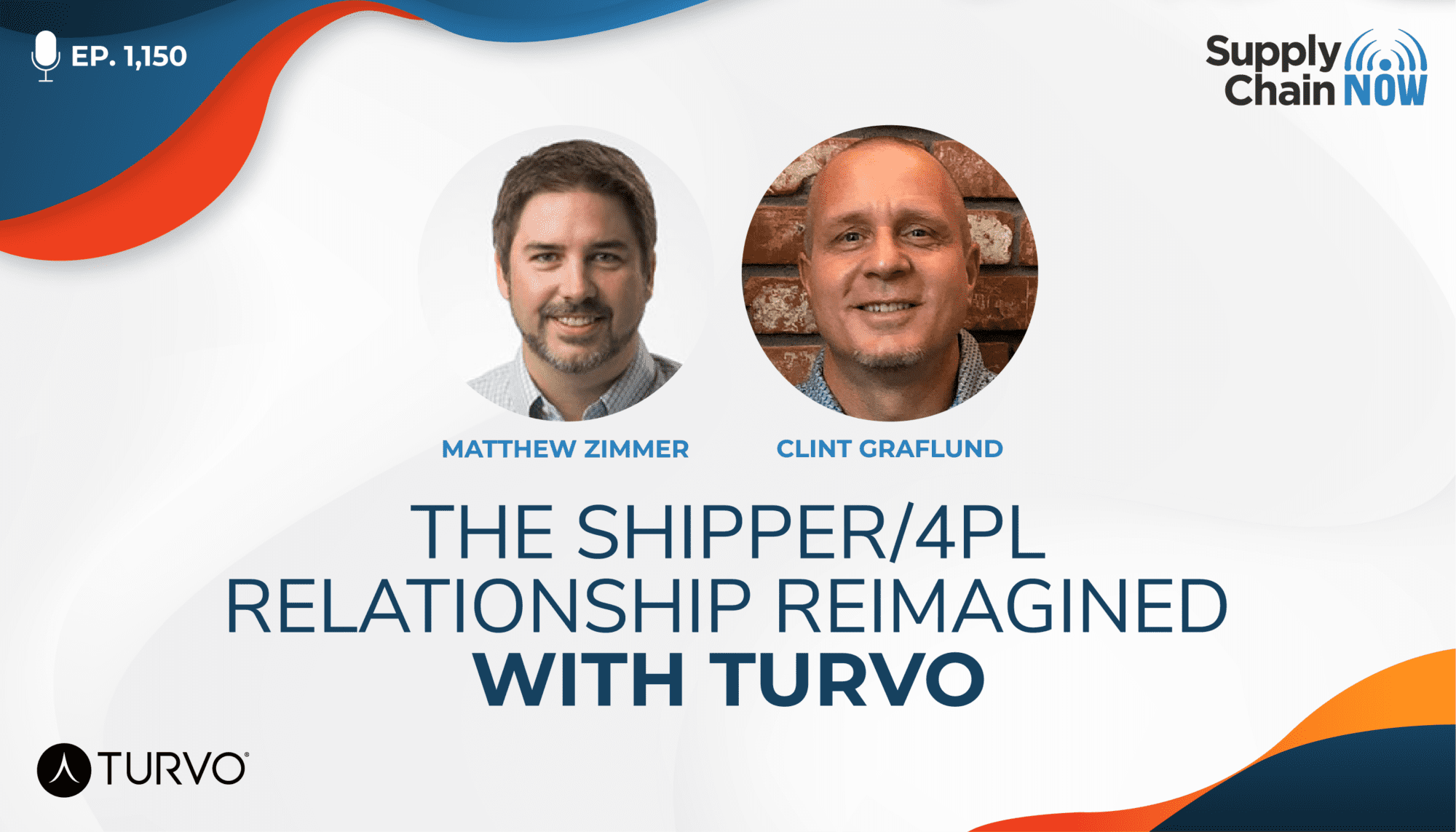
We were looking at loads, we were looking at states, and all these different pieces, but we didn’t know how to look at all that and make decisions or gauge how we were doing.
- Clint Graflund, VP of Operations, Stone Distributing
Episode Summary
When you build something that has never been done before, you need clear understanding – and a solid plan – for every level of the supply chain. Stone Distributing, a leading premium beverage wholesaler in southern California, wanted to get their team out of the load building business. They partnered with Zengistics, a technology driven supply chain and logistics partner that provides scalable managed transportation offerings, to break supply chain norms, disrupt the status quo, reimagine the supply chain – and ultimately create a blueprint for repeatable financial success.
Matthew Zimmer is the President of Zengistics and Clint Graflund is the VP of Operations for Stone Distributing. In this livestream-based episode, they joined Scott Luton and Greg White to talk about how this 4PL-Shipper duo broke down industry challenges to pioneer a superior supply chain with Turvo at the heart of it all.
Listen in to learn how they partnered to build:
– Best-in-class supply chains that serve as industry blueprints for innovation and success
– A tech stack based on Turvo’s Collaboration Cloud and TMS, which ticked boxes that were beyond the reach of other industry solutions
– A repeatable 4PL/Shipper model that is quick for new customers to deploy
– Absolute trust and peace of mind in logistics partners to handle the shippers’ most important assets
– 100% visibility and collaboration for everyone in the supply chain
– Transparent costs, profitability, and complete financial analytics
Episode Transcript
Intro/Outro (00:04):
Welcome to Supply Chain Now, the voice of global supply chain. Supply Chain Now focuses on the best in the business for our worldwide audience, the people, the technologies, the best practices, and today’s critical issues, the challenges and opportunities. Stay tuned to hear from those making global business happen right here on Supply Chain Now.
Scott Luton (00:32):
Hey, good morning, good afternoon, good evening, wherever you are. Scott Lutton and Greg White with you here on Supply Chain Now. Welcome to today’s live stream. Greg, how are we doing today?
Greg White (00:41):
Doing quite well, Scott. How are you?
Scott Luton (00:43):
I’m doing outstanding. Outstanding. We had a wonderful green show or a pre-show conversation —
Greg White (0:48):
Yes.
Scott Luton (0:48):
— with our guests. Big show here today.
Greg White (00:50):
And the most important thing, we’re talking about beer.
Scott Luton (00:54):
That’s right. Good cold beer during these really hot days.
Greg White (0:57):
No kidding.
Scott Luton (0:58):
So, speaking of, Greg, since you kind of let the cat ought to the bag a little bit, big show today as we dive into an innovative relationship between a shipper and a 3PL, 4PL fueled forward by Turvo’s high powered, highly collaborative Cloud technology. Two leaders and organizations we’re featuring here today. Well, Greg, they set out to break supply chain norms, disrupt the status quo, reimagined supply chain, and ultimately create a new blueprint for repeatable, repeatable financial success. Good show, huh?
Greg White (01:27):
Wow. Yes. I’m sorry I misinterpreted leaders. I thought you meant, since we were talking about beers, you meant leaders, not liters.
Scott Luton (1:38):
Like growlers —
Greg White (1:37):
Snarly. I had it in my head. But yes, clearly, yes. You’re going to hear from some folks who have been there and done that as a team. And I love it when we have these stories where we get to talk about, you know, the challenges they were facing and how they attacked them and solved them. And just the little bit that Clint shared with us before we kicked off, you guys don’t get to hear all that, it was fascinating. So, he’s going to share more of that along with Matt here in just a minute.
Scott Luton (2:03):
That’s right.
Greg White (2:03):
But I’ll let you formally introduce them after you —
Scott Luton (2:06):
I appreciate.
Greg White (2:06):
— you do some housekeeping.
Scott Luton (02:07):
Yes, a little bit of housekeeping. And of course, the Clint, Greg, that you mentioned is Clint Graflund from SDC. He’s joined by Matt Zimmer from Zengistics that we’ll bring on in just a second. But folks, we’re going to hear from Matt and Clint. A lot of good stuff. We want to hear from you as well.
Scott Luton (2:22):
We got a jam-packed show here today. To Kevin. Good to see you, Kevin. And Adam, dear old friend there. Kendall is tuned in. Our buddy Josh Goody [phonetic] tuned in from Seattle, Jonathan from Louisiana, and John Peterson once again from Marietta, Georgia, and a lot more.
Greg White (02:40):
I was just at Moxie Burger. Dad cometh [phonetic].
Scott Luton (02:42):
Really?
Greg White (02:43):
Yes. Yes.
Scott Luton (2:44):
Well, we’ll have to —
Greg White (2:45):
It’s been a tight schedule, as you know, for the last couple weeks, Scott, right?
Scott Luton (02:48):
Well, you know, speaking of burgers and good food, we may just start there in a second. But I want to —
Greg White (02:55):
Or food like it.
Scott Luton (02:56):
Or food like it, that’s right. So, are you ready? Are we ready to bring on our two featured guests here today. With no further ado, I want to welcome in Matt Zimmer, President of Zengistics. And Clint Graflund, Vice President of Operations for Stone Distributing Company.
Scott Luton (3:13):
Hey. Hey, Matt. How you doing?
Matt Zimmer (03:14):
I’m doing well. How you doing?
Scott Luton (03:16):
Wonderful. Great to see you. And Clint, how are you doing, sir?
Clint Graflund (03:19):
Outstanding.
Scott Luton (03:20):
Wonderful. Wonderful. And we weren’t lying. We really enjoyed that pre-show conversation.
Greg White (3:24):
Yes.
Scott Luton (3:24):
Getting to know a little bit more because you all have incredible — an incredible story that we’re going to unpack a lot of today. Aren’t we, Greg?
Greg White (03:30):
Yes, I think the first thing we need to unpack is, you know, Stone Distributing, also known as SDC, does not distribute stone. They distribute beer.
Scott Luton (03:41):
Good beer.
Greg White (03:41):
One of the beers is called stone but it’s still beer.
Matt Zimmer (3:44):
Right.
Scott Luton (03:45):
Good cold beer.
Greg White (03:48):
Right. It is not gravel.
Scott Luton (03:50):
That’s right. We’re going to talk supply chain and beer with two innovators. So, I want to start though, before we get into you all’s story, Clint and Matt, before we get into your story, I want to start with a little fun warm-up question because today is national hot dog day. So — and let all the people celebrate as we have parades and the like. So, I’m going to ask you both. And Matt, I’m going to start with you, because Clint’s answer might be a little bit different. So, Matt, what is the perfect hot dog and where do you get it?
Matt Zimmer (04:16):
I mean, I got two young kids, so a plain hot dog goes down pretty quick. But a little bit of brown mustard, sauerkraut. When I lived in Toronto, they had pretty good street vendors that had the hot dogs there. So, if I could probably go pick one, I would. I just got back from New York City. We passed a thousand hot dog guys. Passed on the mall. Didn’t have one this weekend, but that’s where I go. A little bit of brown mustard, sauerkraut. Toronto sounds pretty good.
Scott Luton (04:42):
Oh, Matt, making us hungry. Folks — and before I go to Clint and Greg with this question, we want to hear from you. Where do you get — what’s on your perfect hot dog and where do you get it? So, let us know.
Scott Luton (4:52):
All right. So, Clint, as I mentioned, your answer may be a little bit different. What — where do you get your perfect hot dog?
Clint Graflund (04:58):
I — so, I don’t eat a lot of hot dogs, if I’m being honest. But when I do, it’s typically grabbing one at Costco. Hot mustard and onions on those. But yes, in terms of hot dogs, that’s probably as good as it gets for me.
Scott Luton (05:13):
So, Clint, Amanda and I both agree with you. I bet Greg does too. Amanda says, I can’t leave Costco without that $1.50 hot dog and drink. They are the best.
Scott Luton (5:21):
All right. So, Greg, one of our favorites is already out there with what Clint shared. What — where do you get the perfect hot dog?
Greg White (05:27):
I think, it’s funny, Matt, that you mentioned that. Because I was thinking New York Street vendors. I love those. That onion sauce that they put on the dog with mustard, and I can’t even remember what else, but mostly just mustard and the onion sauce. Oh, and relish. So, you get sweet relish and onions together with mustard. It is just — it’s unbelievable. But I love anything hot dogs. Costco is right up there. Mustard and relish, yes.
Scott Luton (05:54):
I’m going to steal your thunder, Greg. I got to steal your thunder. You’ve made — you all three — you all made me hungry. Even the simple Costco dog, but relish, coleslaw, mustard, tabasco, right, and you get it on — at the turn at the golf club. That is always like one of the best hot dogs you ever eat, you know. Even if it’s been in there rolling around for like three weeks, it’s still good. And let me just add to a couple —
Greg White (6:15):
Because you’re hungry.
Scott Luton (6:17):
That’s right. You’re starving because you’re — you’ve had a couple beers already, right? Eric says, Costco hot dog with ketchup and mustard. Eric, I’m with you on the mustard side, not so much on the ketchup side. Wellington says, McAllen, Texas. We’ll have to find out about that. John says, cheesedog from Brandi’s World Famous hot dogs.
Greg White (06:33):
So that —
Scott Luton (06:35):
Is that good?
Greg White (06:36):
Legendary. It’s this dumpy little shack by the railroad tracks, literally, still there in Marietta. And man, I’ve totally forgot about that. Yes, that’s fantastic.
Scott Luton (06:46):
All right. So, now we’re going to have a — next one on my next shows is going to be —
Greg White (06:50):
One location at Brandy’s.
Scott Luton (06:52):
Yes.
Greg White (06:53):
If trains are going by while we’re eating hot dogs, then that makes it a supply chain show, wasn’t it?
Scott Luton (06:59):
That’s right. We can fit it in all in and of course with a delicious cold stone brew.
Greg White (7:04):
Yes.
Scott Luton (7:05):
All right. So, we’re going to dive in, Clint and Matt. As we teased on the front, and you all have got an outstanding story that I think folks are going to take a lot from this conversation. They’re going to be inspired. They’re going to be emboldened to think differently, right, with based on you all’s relationship and the outcomes. So, I want to start with level setting just a little bit so folks can kind of view things in kind context. So, to that end, Clint, tell us a more about SDC.
Clint Graflund (07:30):
OK. So, SDC, we’re a premium beverage wholesaler in Southern California. We were established in 1999 by the founders of Stone Brewing, Greg Koch and Steve Wagner. Since then, we’ve grown to become the largest distributor of independent craft beverages in the country. Some brands you might recognize, Stone Brewing, Coronado Brewing, Pizza Port, JuneShine, Russian River.
Clint Graflund (7:52):
We have around 400 team members. We service roughly 12,000 accounts in both the on and the off premise. We service an area stretching from Santa Barbara in California down to the border with Mexico, and as far east as like Palm Springs or Big Bear. We deliver around 6 million cases a year of beer. Out of two — roughly a thousand — two 1,000 roughly square foot facilities. We have one here in San Marcos, where I’m at today in North County San Diego, and we have another in Downey which is in Southeast Los Angeles County.
Scott Luton (08:23):
6 million. 6 million cases of beer. And I love that what I found on you all’s website — which you all should venture over folks, you’ve been taking care of beer like no one else since 1996. A track record of doing it. All right. So, now that we’ve level set on the SDC side. Matt, tell us more a little about Zengistics.
Matt Zimmer (08:43):
Yes. I mean, at first — with a quick snippet about myself, I used to kind of call myself a non-freight guy that runs a freight company.
Scott Luton (8:50):
Right.
Matt Zimmer (8:50):
And we, kind of, evolved a little bit from that lately. Part of that is, you know, that’s not good for either side, myself or the company. So, we’ve really pivoted and now it, kind of, how I describe Zengistics is we’re a technology company that moves freight.
Matt Zimmer (09:03):
We use what we consider managed services or transportation as a service offering where we come in and we usually take, you know, in many cases, a hundred percent of a company’s inbound or outbound freight. There’s no doubt we do spot, we do RFQ for smaller pieces. But our bread and butter is kind of that, you know, taking over entire piece of business that we consider managed services. And then what we’re doing inside of that is consolidating loads, route optimization, figuring out ways not only to control cost on the freight line but being able to move up into the SG&A and the indirect spend by being able take over some of their planning resources to be able to align those, those shipments better.
Matt Zimmer (9:42):
And then through a lot of our data and analytics, we’ve actually been able to find that we can actually help customers grow revenue through different innovation around how we’re thinking about total cost of ownership, return on investment from where they want to possibly put a new co-pack or a distribution.
Matt Zimmer (09:58):
So, really, we’re kind of this non-asset technology company. No doubt we’re moving freight. Trying to de-commoditize the commodities, as we kind of call it. We are owned by a billion dollar asset trucking company, although we are run independently. I think we’ve done some really cool things around how an asset and a non-asset can play together and kind of transform the space. But technology really built around Turvo is what we’ve done. Our intellectual properties, we have about 20 different software applications API’ed around Turvo that, I think, gives us the leverage and the consistency to move forward.
Scott Luton (10:29):
Love that. And as we’re going to get more into you all’s partnership and the big things that’s done and led to it has been powered by Turvo. And so, we’ll have some resources from the Turvo team as part of our conversation here today. And by the way, Matt, I love that technology company that moves freight, delivering peace of mind.
Matt Zimmer (10:47):
Yes.
Scott Luton (10:47):
All right. So, Greg, now anything you want to add? And now that we’ve gotten some valuable context, the world needs more context, in my opinion at least. Now that Clint and Matt kind of shared a little bit more about what they had done and what they do. Anything that you think is really important as we move into their story?
Greg White (11:02):
Yes. Well, I just going to tease it a little bit because we’ve heard a little bit about the story. And I think, you know, mostly what I want to hear is this challenge that they faced together and how they solved it, both with and without technology, was a really interesting part of our discussion pre-show. So, I’d love to jump into that. Can we just jump into that?
Scott Luton (11:22):
We are. And that’s exactly where we’re going next. It’s like you’re reading my mind or something. So —
Greg White (11:26):
It’s like I’m reading the show notes.
Scott Luton (11:28):
As we start to understand — keeping it real here, right? As we start to understand this powerful partnership we’ve been touting here for the first few minutes that’s been built between your organizations and with the Turvo team. I want to start with Clint. You wanted to build something that had never been built before. So, walk us through that process a little bit.
Clint Graflund (11:47):
Sure. So, when I was working with Stone Brewing, this was about five years ago, the freight management was a really big spend for us, and it was also a really critical component of what we did. With Stone, like a lot of, you know, kind of independent craft brewers move a lot of, kind of, multi-stop full truckload. And it was really challenging for us to really kind of understand the how are we doing?
Clint Graflund (12:10):
So, kind of at 30,000 feet, we wanted to get out of the load building business, having people huddled around Excel and trying to build these loads that were coming our way. And also, we really needed to find a way to better understand or measure how we were doing. So, you know, beyond just accessorials and fuel, we want to look at the whole picture at the time Stone and Still does manufacturers on two coasts.
Clint Graflund (12:31):
So, you’re hitting 50 states. Where should we be manufacturing it? How often should we ask our distributors to place order? We were kind of in a made to order situation with all of our distributors, brew to a forecast, and produce to order. So, there were — I had a lot of ideas and thoughts on how we could get this done. There was enough predictability in my mind in the model that we could do a lot better than we did. But there just didn’t seem to be any carriers that I spoke with that really had the ability to or the willingness to, kind of, lean into that with us.
Scott Luton (13:00):
Greg, what stood out there? And before we get Matt to comment, what stood out there as Clint shared as he set out and to build that really execute on his bold vision?
Greg White (13:10):
I think the complexity of it is what’s really notable, right? You’re brewing on two coasts and shipping, I mean, really very close to the coast. You said Richmond, correct?
Clint Graflund (13:21):
Yes.
Greg White (13:22):
And L.A., San Diego. So, very near the coast. So, there’s a big gap in between those two areas. And the challenges of that are monumental, right? So, I think that’s something you have to acknowledge, is that the incredible complexity of covering a country from the coast.
Scott Luton (13:39):
Yes.
Clint Graflund (13:40):
Yes.
Scott Luton (13:40):
All right. So, Matt, I’m want to bring you in here, before I’m going to ask you in just a second about how you came up with the plan, but anything you want to comment on as Clint was, kind of, laying that out the front end? Anything you want to comment on really quick, Matt?
Matt Zimmer (13:51):
Yes. I mean, I think the important thing is, and where Clint and I, I think hit it off right off the bat was, you know, he was looking to go do something different. And that’s kind of how we think about our business, right? I mean, 15,000 people can move freight, right? Just 15,000 freight, how many — whatever you want to call it. There’s many of them, right?
Matt Zimmer (14:09):
It’s actually, how do you go solve the most complex problems, right? And Clint’s problem, sure, it was part about moving freight, but it was also the data side of it. The understanding of that, I think a very important piece that’s often missed is, you know, I consider myself an operator, right? What is the information that operation is getting to go work with sales?
Scott Luton (14:28):
Right.
Matt Zimmer (14:28):
I mean — like, you know, it’s always like, well, my sales guys are — you have these order cadence to these order patterns. I have no way to convince them. Well, you can convince them through data and you can convince them through other ways of doing that. And so, part of it was, is just the willingness on both sides to go — try to go do something that, as we said before, hadn’t been done in that way before. And the willingness to go throw everything at it from, as Greg said, both a technical and a non-technical way was really critical. But it’s how do you solve problems and not just how do you move freight?
Scott Luton (14:57):
Yes. All right. So, I’m going to dive a little deeper there. So, both of you, as you all are describing results driven supply chain veterans. So, you paint this picture. You go lock yourself and maybe your team is in a room. You get — you have a few eureka moments, maybe a few spirited debates and discussions, and you draw up this new supply chain plan. Matt, how does that happen?
Matt Zimmer (15:17):
Yes. I mean, I tell this story all the time. You know, Clint and I sat down and we were in a room and I think we walked out with, you know, probably Zengistics agreeing to probably 12 or 15 different things that I knew how to do about two of them. I mean, honestly. And so, you know, it came back in to Zengistics and we shut the door with the team, and I said, OK, we got to go figure out these other 13, like.
Scott Luton (15:40):
Right.
Matt Zimmer (15:40):
And it was almost all built around the technology side of it. Let be really clear, it was — it’s all the data and the analytics side. The cost per case equivalent is, as Clint is referring to, on a multi-stop. You can just imagine one pick, three drop at three different states, right?
Matt Zimmer (15:56):
You have different pallets on the last leg versus the first one. So, how are you applying the miles versus the dimensions in a true cost versus how a lot of people did that before? How are you building real-time visibility where they can see that in real-time? How is that pivotable? How can you look at accessorials, take out fuel? Oh, by the way, let’s be really clear. You got to go deliver it 98, 99% fill rate, and through the rest of it.
Matt Zimmer (16:19):
And so, it was really kind — but that’s where the team at Zengistics, and this is where I’m really proud of the group that we have, are really good at doing this kind of stuff. We want to go solve the most complex things and try to go do things that haven’t really been thought of before. But really, it had to start with the analytics suite that we kind of build around that.
Scott Luton (16:38):
Yes.
Matt Zimmer (16:38):
And then once we had the data, then it was just a constant back and forth between us and Stone around, what does the data mean? And more importantly, how do we actually go drive the result that we’re looking for? Obviously, we’re doing this to drive down cost
Scott Luton (16:52):
Right.
Matt Zimmer (16:52):
To drive up service. And so, how are we actually applying this to it? It’s great that you have a number in front of you. What are we going to go do about it? What are — are we going to go change minimum pallet quantities per distributor? I — Clint in the green room said it, maybe we stop shipping a special release to Montana because it doesn’t make any viable financial sense to go make that happen. Those were all conversations that we had that started coming ought to the data side of it.
Scott Luton (17:14):
Matt, I love that. And, Greg, I’m going to get you to weigh in after we hear from Clint. And really — but really quick, Clint, before I get you to comment here on how this happened. To the audience, as you hear Clint and Matt talk about doing things different, doing things bold, you know, challenging long held assumptions, looking out for smart business, driving down those costs, as Matt talked about and raising those service levels. Tell us what resonates with you. You know, whether you’re in the beer industry or not. Tell us what you can identify with.
Scott Luton (17:42):
So, Clint, from your perspective, how does all this happen? As Matt described a lot of the, you know, going into the, the war room and having those discussions. What — what’s the missing piece that you’d like to share?
Clint Graflund (17:52):
Well, I mean, I think for us it really started with X’s and O’s. The capabilities of building trust. And I think that’s where we started with Zengistics is, you know, we do need to get the freight carried. You know, we need to get picked up on time. You know, we need — you know, competitive pricing. And they did a great job with that piece. And as we kind of sat down and said, OK. You know, we talked about doing this, let’s kind of lean into it. I just threw everything but the kitchen sink at Matt, but I’d like to see this, I’d like to see this at this clip. I’d like a dedicated team. You know, here’s what we need to do and here’s what it should look like when we pivot. And, you know, for me it was, you know, kind of taking this in bite-sized chunks and started kind of watching it, kind of, progress.
Clint Graflund (18:26):
Stone made a lot of decisions operationally based on what we were able to kind of put together. An example would be shipping to Colorado, for example, out of the East Coast. Intuitively you might think West Coast is the way to go there. But looking at the data and the way this tool looks and, hey, we can stop at these other two, you know, distributors on the way. And that service Colorado out of Richmond, which was actually less expensive at the time for us to manufacture beer.
Clint Graflund (18:51):
We were making real decisions based on this data, and that’s what we needed. I think Matt touched on it, it’s not only convincing sales but the operations team as well. Hey, we should be brewing this here and, you know, these folks should be ordering every other week, not every week. And really kind of using the data that this, kind of, program put together to make decisions.
Clint Graflund (19:07):
So, we were in the room multiple times talking about, OK, here’s what the data’s telling us and interpreting it together. So, you know, in short, it was — we were looking more for like a thought partner than just an execution partner. It was really kind of fun to look at data that we — neither of us had ever looked at before in that way, and then start to make decisions on and build cases internally at Stone to make decisions.
Scott Luton (19:26):
I’m so glad you mentioned that. And Greg, I’m going to get your comment, but you know, you got to have the data to look at the data. And I — we’re going to get to that in a minute about where that came from. But Greg, as we heard from Matt and Clint talk about these powerful conversations that led to big actions and big outcomes, what stands out to you?
Greg White (19:43):
Yes, two things. The metrics driven is critical and not common. You know, in my past I dealt with a lot of wine and spirits and beer distributors, and it’s kind of a wild west show with a lot of those companies, even some of the really, really big ones. And to see what Clint even was conceiving, you can see where it wasn’t in the industry because some of the older players, they used to take the benefit of the doubt from not having data, not just — with their customers but with those revenuers.
Greg White (20:17):
So, you know, you think about a company started in 1999, they’re much — they have much less of that legacy and much more of the eyesight towards the modern way of doing business. And a lot of old distributors and brands are coming around to that. But, you know, this is really — I think it’s hard to overstate how different this is than, you know, the traditional big beer or even craft beer industry.
Greg White (20:45):
So, the metrics is one, and I think the partnership of getting together and solving the problems together, presenting them, and then each of you respectively locking yourselves and your people in a room to figure out what the other has asked for or offered, and how you can adapt to that. I think that is a really, really powerful statement for how to create a good partnership. And, you know, you —
Scott Luton (21:07):
That’s right.
Scott Luton (21:08):
— again, you all didn’t get to see this, but you will here, these two can kind of finish one another’s sentences. So, I mean, it really has worked like that. And that is the kind of relationship that you want to have. Gone are the days of trying to hide everything from your vendors, if that’s what you want to call them, or you know, your suppliers to sharing that information and — both of you capitalizing on.
Scott Luton (21:33):
So, true. Quick comment from John Peterson, the biggest challenge is not getting the data, it’s taking that data — isn’t getting the data. It’s taking that data and turning it into something useful. Love how they basically clean sheeted this and created something powerful. I’m with you John.
Scott Luton (21:48):
All right. So, Matt, I want to shift over to you. I want to talk about, you know, we’ve mentioned Turvo and how that helped enable what you are describing here. So, let’s talk about the critical selection process. So, what were some of the boxes, Matt, that had to be checked when it came to picking the right TMS in supply chain solution? And how did you land on Turvo?
Matt Zimmer (22:06):
Yes. I mean, I’ll be honest. I mean, Turvo was selected before I came into the organization, but I will say that probably the biggest reason I chose to come to Zengistics from outside the industry was because of Turvo. The collaborative nature of the technology, the data side of it, but it’s also really powerful in the way that the OpenAPI works with a lot of other software pieces as we said. We probably have 15 to 20, I mean, tech — probably tells we may have more. Technologies API’ed into that. And how we think about being a technology organization is we’re here to drive the best efficiency we can. Obviously, we care about service. We care about delighting our customers. But we can also do this in a far more efficient manner that also reduces costs and total cost of ownership to our customers.
Matt Zimmer (22:57):
And so, for Turvo, what really works is, A, we have a great relationship inside of Turvo. Although they’re large and have a very solid system, we — there’s still areas of conversation around where do we think the next API could come in? Or we really believe that if you could API into this kind of technology, that would really help us move forward. So, we have a very open collaborative discussion with Turvo of how it works today. The platform is incredible in itself and the amount of data that it collects.
Matt Zimmer (23:26):
And so, the ability from our data team which is really one of the most important pieces behind the scenes is just exactly as the comment from the person stated. It’s not just about the data, it’s what are you doing with the data. How are you actioning the data? And inside of Turvo, I mean, real-time analytics, real-time financials by carrier rep, by region, by load, by customer, by everything. It’s all there.
Matt Zimmer (23:50):
And how we built the power BI for Stone, it was cost per case equivalent by state, by distributor, by skew out of each manufacturing. You can pivot on one versus the other and see, what was that if I would have taken that last stop out versus another stop? What would my cost have been? I mean, these are actionable pieces of data that was all there. All 100% build inside of Turvo and Turvo’s ability on how to not only be able to collect the data, operate, but be able to build really strong user interface that you can get the data out of and action it.
Scott Luton (24:25):
Clint, I’m going to get your response to some of that. Siham [phonetic] says, so there are good shipper XPL relationships. Very sarcastically, I love that. Great to have you here as always, Siham.
Greg White (24:35):
No lack of effort, right? I mean, to assure that, clearly —
Scott Luton (24:39):
That’s right.
Greg White (24:39):
— what Matt and his team do really well is get engaged.
Scott Luton (24:44):
That’s right. Yes, excellent point. And Kim, great to have you. Jeff, Bob, I’ll try to get you all’s comments in just a second.
Scott Luton (24:50):
Clint, respond — you were sharing a couple of things in the pre-show, and hopefully you can share some there. As Matt described, you know, what they were looking for. What boxes had to be checked? Any quick comment there, Clint?
Clint Graflund (25:03):
I would just say I really liked John’s comment about the ability to get data because we could get data all day long. It was very difficult for us to turn that into something that we could action. Like, we’re looking at loads, we’re looking at states, and all these different pieces, but kind of how do we look at all this and make decisions or kind of gauge how are we doing?
Clint Graflund (25:21):
To be frank, I — you know, I — the first time I’d heard of Turvo was from Matt. I hadn’t heard of it before. Actually, I should say I’d heard of it, but I had no real familiarity with it in terms of what it could do.
Scott Luton (25:30):
Yes.
Clint Graflund (25:31):
So, I was, sort of, agnostic in terms of what tool that he used. We just talked about, this is how we need to look at things. He pitched the tool and what they — way — they could do, and we were kind of off to the races from there.
Scott Luton (25:39):
Yes. Greg, I know that really resonated with you as we were having that conversation.
Greg White (25:43):
Yes.
Scott Luton (25:43):
I’m pretty sure.
Greg White (25:44):
Technology is just a hammer, right? I mean, it really is. You — you’ve got to identify the problem that you needed solved and either pick, select the right technology or configure the right technology to solve that problem. That’s the only use for technology, is to get you to your goal. Outcome, Scott, as you love to say, right?
Scott Luton (26:05):
I do. I do. Actionable insights too, is one of our favorite things to talk about here, because what are insights if they’re not actionable, right?
Greg White (26:12):
True.
Scott Luton (26:12):
Matt, I’m coming to you next in just a second. I want to reference Bob’s comment here. So, great one here. Bob says, the whole reason for success is that trust that was built up between the shipper and the provider. Create that trust upfront, great results will happen. Traditionally, the shipper does not trust the provider, and the provider does not trust the shipper.
Scott Luton (26:31):
I think that is so on point because Clint and Matt, for you all to go into and talk about a bold new direction and the whole new vision, a whole way of doing things, challenging long held assumptions, long way — long held ways of doing business. The trust between you and your respective teams must have been off the charts. And clearly to get the results and fight through the good days and the bad days that comes with any change.
Scott Luton (26:54):
Matt, let’s talk about analytics. I believe both of you all have mentioned here and certainly as part of our earlier conversations that Turvo offers the best analytics and industry. So, Matt, tell us more about Turvo’s financial reporting, data and analytics.
Matt Zimmer (27:10):
Yes. I mean, you know, I know a lot of different Turvo users out there and it’s still — I can say, shocks me. But how — don’t get me wrong, Turvo is great from a user ability perspective. So, I mean, one thing about — I mean, we’re talking a lot about data and analytics back and forth. I also want to be really clear that, you know, you got to be able to provide world class operations and service.
Scott Luton (27:33):
Execute.
Matt Zimmer (27:33):
Absolutely. And I think Clint uses this example all the time. I mean, during Covid, I think we still maintain 98 or 99% fill rate during Covid where we know, because we’re associated with a lot of other companies. People are nowhere near that. So, you have to go kind of hit on there. But the thing I like that always fascinated me about Turvo and the reason I like it is, A, the user ability operationally is great, right? You’re able to — through automation, track and trace all of your loads. The backend automation on AR/AP, it all moves.
Matt Zimmer (28:03):
But the financial side of Turvo, I mean, it’s a real time P&L. And for a president of an organization as important — I’ve worked for Fortune 500s and worked from some larger global companies. And, you know, it takes two weeks after the end of the month to get financial closes to find out what happened on the P&L that you’re already two weeks too late on.
Matt Zimmer (28:25):
The thing I’ve always loved about Turvo, and it probably drives the team crazy, is you can see it in real time. I know this load. I lost $180 in this load for three weeks in a row is trended down two percent and what happened there. It allows you to go make great decisions inside of there. But you’re able to hold your team accountable from a financial perspective and a service per perspective.
Matt Zimmer (28:45):
You can look at it by carrier rep, by account manager, by customer operations rep. You can see your AR/AP velocity, your cash side all in real time. And —
Scott Luton (28:55):
Right.
Matt Zimmer (28:56):
You know, last I checked, I mean, most of the brokerages are in business for profit, and no better way to run a profitable organization than one that has outstanding financial controls. And the bottom line is totally by far is the best financially reported system that I’ve seen in terms of real-time that we’re making decisions in the afternoon. Many, many times that are affecting later afternoon or the next morning in terms of how we’re thinking about market. Where we’re starting to see market conditions starting to move.
Matt Zimmer (29:27):
I don’t need DAT and a lot of other sonar to help me understand market. I can actually see it through real-time data and real-time visibility inside of our systems when things are starting to move and why that is. And then go make accordingly action to it.
Scott Luton (29:42):
I love it. Repeatable, repeatable, repeatable. Greg, I’m coming to you next.
Scott Luton (29:46):
But Kim Winter, get this, good evening from Dubai. Plenty of info to digest about Turvo. Kim, we got to get you up to speed, but great to have you as always.
Scott Luton (29:54):
Greg, you know, we’ve really — we — there’s a lot out on the table, but I want to go back to something Matt shared at the front end of his last response about, you know, you can basically have all the data, all the technology, all the cool bells and whistles, but you still got to be able to execute operationally. That really monked everything else he shared. He really sends out to me. But, Greg, what you hear there from Matt’s focus on financial reporting, analytics, data insights?
Greg White (30:20):
What I heard really was that the, you know, the — to address the trust question earlier, that the trust was implied and expected. It wasn’t foreign as it seemed from that statement, right? That the supplier has to trust the shipper, shipper has to trust the supplier. They just trusted one another. And for whatever reason, right, they just assumed that the other party was trustworthy. And I think that’s a huge leap.
Greg White (30:44):
And I’m sure they did investigation. And, Clint, I’m sure you can tell us all about that. But I’m sure they did investigation and checked references and all that stuff. But I think the maturity of their business relationship is really a key lever here. And then the technology that they deployed allowed them to leverage that trust into execution which continues the trust because just getting trust at the beginning was another thought I got from that comment.
Greg White (31:10):
All a valid comment, right? But I — it just made me really, really think about that component of a relationship. You have to continue that trust by continuing to execute and continuing to deliver. And I think it’s interesting that saying that what this conversation has been about is about the nature of that relationship without using those specific words, right? Without using synergy or — right, or trust, or, you know, any of those other, kind of, typical words that you expect here. And I think that’s really, really powerful.
Greg White (31:42):
And then on the, you know, on the tech side, I think it, you know, it’s — everyone has experienced the situation where a technology is unable or inflexible to deliver what you need from a business standpoint. And I think what we’re hearing is a story of great capability, but also incredible flexibility so that a provider like Zengistics can adapt the technology to the unique instance of a shipper like SDC.
Scott Luton (32:10):
Clint, I want to ask you and Matt a question here. But before I do, anything, any comment you want to add about the trust factor? Because you were putting a lot of — what’s the phrase? A lot of eggs in the same — in one basket with what you were looking to build. What really — was there an early realization you had that, hey, man, we got some trust here. I know they can do it. Let’s do it. What — anything you can share, Clint?
Clint Graflund (32:35):
All I would say is trust and verify is my favorite saying. You know, with all the volatility over the last five or six years in freight, we had some challenging situations with some of our carriers. Good people I worked with and, you know, good companies. But the trust was difficult to build, particularly when, you know, freight rates start going crazy. You start to, kind of, find things in your invoice that don’t make sense.
Clint Graflund (32:56):
And, you know, again, it comes back to the transparency piece for me. I mean, I have always, you know, like Matt and the Zengistics teams from the jump. I really like what they had to say and, kind of, what the — they put their best foot forward. But we both agreed that, hey, we want something that we can look at on a daily, weekly, monthly basis that, kind of, shows that we’re doing what we say we’re doing., both of us.
Scott Luton (33:12):
Love it.
Clint Graflund (33:12):
We’re both on the side and on the Zengistics side. So, I think, you know, trust is something that’s built over time. I mean, Zengistics didn’t have all the Stone business initially. We gave them some of the business and they continued to grow until they became the carrier for Stone Brewing. And that was built with, you know, transparency, looking at the numbers together and executing. So —
Scott Luton (33:30):
Thank you for sharing that, Clint. I think a lot of us can relate to a lot of what we just shared there. I want to ask you all both. And I’ll start with you, Clint, did you consider building your own proprietary software given that that very specific vision that you had in your mind, Clint?
Clint Graflund (33:48):
So, I won’t go into a lot of detail, but yes. I’m kind of a data geek. So, I first attempted to do it in a — in Microsoft Access and that did not go well. We then brought in a system called Click, but the challenge that we kept coming back to was we were getting data from multiple sources and multiple times. There was data integrity issues. And so, the vision that we had, we just really had a hard time executing on it. And we felt collectively that, gosh, wouldn’t it be nice if we had a carrier partner that could take all these different data elements, put it together for us. So, I like my team to focus on executing to the numbers that they have in front of them and not spending a bunch of time in office churning numbers and looking at data integrity. So, yes.
Scott Luton (34:25):
Matt, your thoughts there?
Matt Zimmer (34:27):
Yes, from us internally, I mean, obviously, you know, we licensed and used Turvo, so we have the option at end of contract to not use Turvo. That’s never — of all the stuff that we’re working on, that’s the least of our concerns right now that that actually works really, really well. So, in terms of building our own, no. In terms of is there a better technology option that we could go out and third party that could give us what we need? You know, obviously we look at it and we take a look through our technology side, always moving forward on what’s the right, you know, technology for us. And we’re pretty convinced that we have the right partner with Turvo. And that, so we’re happy where we stand.
Scott Luton (35:06):
Greg, any comments there?
Greg White (35:09):
No, I mean, I think they pretty much nailed it, right? Yes. Not something I really have an opinion on, yes.
Scott Luton (35:18):
So, what about — Clint, I’m going to stick with you here. So, an executive response for operations. You’ve got to trust your logistics partner. We’ve certainly have doubled down on that. Tell us why. Anything else you want to add to why that’s possible? And what are some of those benchmarks that you look at beyond what you’ve shared, Clint?
Clint Graflund (35:37):
You know, I guess I’ll circle back to transparency. We have to find a way to where both, you know, the supplier and the shipper can get together and look at numbers together and understand what they mean. That, to me, was everything. Again, I’d had some great relationships with other companies that I’d worked with, but had a really hard time building the trust that I wanted to.
Clint Graflund (35:54):
And again, I’ll come back to the, you know, kind of where freight has gone over the last four or five years.
Scott Luton (35:57):
Right.
Clint Graflund (35:58):
Volatility and freight. What happens when, you know, freight rates, you know, drop or they go up like crazy. Your partners, kind of, shows their cards at that point in terms of who they are and if they’re willing to work with you. I mean, everyone’s in this to make, you know, make a buck, but at the same time, we don’t have to gouge each other.
Clint Graflund (36:13):
And so, you know, that means a lot to me. And I was with Zengistics at a time where the, you know, kind of some of those things came about. And then really again, you know, measuring the service piece. When we talked a lot about the, you know, the data and which is important. But it’s also really, hey, if we’ve got a — we’ve got to pivot, you know, is there somebody I can call that’s going to pick up the phone and understands our business?
Scott Luton (36:30):
Right.
Clint Graflund (36:30):
That’s another thing that really is frustrating. You know, Stone is not one of the bigger shippers for some of the big guys. We call them, and they’re like, who are you? And you’re trying to get to explain what’s going on. That’s frustrating. Whereas if somebody knows, you know, who you’re talking to, they know your business, they know how to help you, that goes a long way.
Scott Luton (36:44):
Well said, Clint. I want to bring in — this is Aaron’s comment here. Trust is built on transparency, as you’re talking about Clint. Transparency, Aaron says, is built on visibility and sharing, which is the bridge that connects to collaboration. This is the DNA of Turvo, which cultivates mutually beneficial relationships between the people moving freight and who they’re moving it for. Nicely said, Aaron. It’s almost poetic there, ain’t it, Matt?
Scott Luton (37:08):
Matt, before we move forward.
Matt Zimmer (37:10):
Yes.
Scott Luton (37:10):
Anything you want to comment there on what Clint shared, or Aaron, for that matter, what Clint shared around the trust, how you could build it? Some of the tougher challenging days and how you all work together to fight through? Anything you want to comment on there, Matt?
Matt Zimmer (37:23):
I think about this right now when you take a look at where the freight market is, right? It has this knee jerk reaction because it’s always the shipper has the advantage or the carrier has the advantage. And then once one guy feels like they’ve gotten really screwed on one side, it flips back the other way, right? And that’s just how the markets go. That’s why there’s no equilibrium kind of in the freight space. That’s not how we built the relationship with Clint.
Matt Zimmer (37:47):
And so, you’re talking about transparency and openness.
Scott Luton (37:50):
Right.
Matt Zimmer (37:50):
In the beginning of Covid, we got massacred. There’s no other way of saying it, financially massacred —
Clint Graflund (37:56):
Yes.
Matt Zimmer (37:56):
— on the stone business. And I went back to Clint very openly and said, I’m getting killed here. And I need help. I need help. But I guarantee I will be better than the market, but I need help. And as long as you can prove that you’re better than the market, I will be fair back to you.
Matt Zimmer (38:16):
And so, yes, I don’t have major super highs, and I don’t have major super lows inside the Stone thing because we work to make sure that it’s fair on both sides. And so, we talked about data and transparency there. There’s also got to be a mutual partnership of understanding that we got to — it’s not in any of our best interests not to be working together. There’s a lot of work that we put into this. And so, how do you make that work?
Matt Zimmer (38:39):
And so, Clint and I have worked on seven different financial models over the four years or so because it ebbs and flows. And when the market has softened too much, I don’t wait until the end of the quarter to come back and try to go do the right thing. And if something happens the other way, but it’s all kind of through that side of it.
Matt Zimmer (38:57):
So, I think that’s a really important piece of what great partnerships look like. In the end of the day, kind of. Zengistics way that we think about the business is, yes, we want to support customers, but my main job is obviously to try to make Clint look as good as he can. That he can get promoted within the organization. It’s like, what keeps Clint up at night? What are the things I can solve for you? Not how do I run loads inside my business? How do we go do that?
Matt Zimmer (39:20):
And Clint, and I’ve been able to go build that. And the other great thing though is, is like Clint’s kind of this Southern California, you know, mentor, right? Like a lot of guys respect how Clint has thought about a lot of different things. And the partnerships and the openness that he’s been able to build with us in other brands and stuff really works.
Matt Zimmer (39:41):
But the end of the day, what I think works for us inside of our business is consider us a disruptive brand, Zengistics, it’s what we do. We’re disrupting what traditional brokerage kind of looks like. We have a disruptive technology around Turvo.
Matt Zimmer (39:55):
But what works really best for us is when we have the partner on the other end who is — wants to disrupt. Stone came in trying to change the way that beer was done, right?
Scott Luton (40:03):
Yes.
Matt Zimmer (40:03):
We have other beverage brands, whether it’s fastest growing water brand or functional, you know, beverage brand. You know, we really — so, that really works for us. We’re not the best brand. We’re not the best company for everyone out there. Where we are is people who really want to go try to transform through there because we build a relationship and a partnership that really is a lot more than just moving loads and trying to roll up the P&L as much as we can. It’s about really trying to service and grow their company, and by being the right partner through it for the long term.
Scott Luton (40:33):
Well said, Matt. Now, Clint, Matt said, brought in the Southern California thing. I think you mentioned pre-show Southern California well-known for beer and biomed, is that right?
Clint Graflund (40:43):
Biotech, yes.
Scott Luton (40:44):
Biotech, that’s right. And anything else you want to add about the Southern California aspect to how you lead businesses and supply chains? It’s a good place to be, I imagine, right?
Clint Graflund (40:56):
It’s a good place to be. The weather’s pretty good. But there’s a lot of craft beer actually across the country right now. But there’s certainly a lot of craft beer in Southern California and San Diego. And so, it was nice to, you know, be able to kind of work with other craft breweries to say, how are you all doing it? And, you know, what are some of the challenges?
Clint Graflund (41:15):
And I think what I found is that it was so similar in terms of the things that they were trying to struggle with. Like, they don’t want to ship LTL. They do want to ship, you know, multi-stop full truckload. But how do I know whether I’m getting gouged or whether I’m getting a good deal? It was just a — it was a — it was just good to see that, you know, that everyone was struggling with the same things that we are. But it was also, at the same time, frustrating because I couldn’t, no matter who I talked to, get an answer to, oh, hey, here’s the way to do it.
Scott Luton (41:36):
Right
Clint Graflund (41:36):
It’s just difficult to do.
Scott Luton (41:38):
Greg, we’ve covered a lot of ground. I want to bring in, JR’s comment here. JR says, collaboration, learning the shipper’s business and having a long-term partnership mindset are key. Well said, JR.
Scott Luton (41:50):
I’ve got a couple more questions for Matt before we wrap and we’re going to make sure we share some resources and stuff. Greg, as you heard that on the ground we covered trust, the technology, the ability to execute market conditions, Clint was just referencing. What else sticks out in your mind here, Greg, as we work through this partnership?
Greg White (42:08):
Well, I mean, I think that they’re looking so far beyond where so many companies are. Not only are they operating, both of you, are operating above where most companies operate. But you’re looking beyond that even. And, you know, we see it all the time that companies talk a good game, right? You know, 85% of companies want to use technology, but 95 still use spreadsheets. So, you know, I mean, and that’s — those are real statistics, by the way.
Greg White (42:42):
You know, I think making the commitment to using and enabling technology to give you the visibility, the actionable insights, the transparency between partners and the ability for you each to know your business well enough to know what you can give to one another in those challenging times. That’s what’s really valuable. Because when everything’s going smooth, you can almost do it on paper. But everything is almost never going smoothly. So — right?
Scott Luton (43:11):
Right.
Greg White (43:12):
So, when there are those challenges, that’s when the metrics and the capabilities and the visibility and transparency, when that all starts to pay off, and those can be really, really painful times. Companies’ profits are made or lost often in the turns, right? As we’ve talked about with Gartner, many, many times. When we’re in a challenging time, when prices are rising or descending rapidly, or demand is rising and descending rapidly, or it’s — or even when it’s just highly variable, all of those are incredibly challenging times.
Greg White (43:43):
And to be able to identify what you can give and what you need to get, most importantly, is key to being successful in those times. So, it’s more than just the transparency that’s shared between the partners, right? It’s the —
Scott Luton (43:55):
Right.
Greg White (43:55):
— it’s the knowledge of where you stand so you can negotiate fairly with your trading partners when times are tough.
Scott Luton (44:04):
Well said, Greg. I want to bring in Siham’s [phonetic] comment here. There are many risk management terms, now cliche, but Matt described it best. Thinking about what could happen, monitoring and having a plan. Well said there, Siham [phonetic].
Scott Luton (44:18):
OK. Speaking of Matt, Matt, I’ll get back to you. We’re going to make sure folks know how to connect with you all both, and we’ve got some resources from Turvo we’re going to share in a second. But first, final couple questions for you. Your operators, Matt, have their fingers on the pulse in the day-to-day. And you trust that solution that you’ve helped build. What specific Turvo features are you think are most important for folks to know about here?
Matt Zimmer (44:40):
Yes, I think first we talked about the financial real-time reporting of Turvo. I think if customers trying to — companies trying to understand their financial wherewithal by employee, by all that, that’s a great one for it. The ability to API into so many different things. I mean, we put a lot of upfront people into our account management side, as Clint says. He has person that he calls, and if that person at 2:00 in the morning doesn’t answer, then he calls me. There’s someone, there’s no 1-800 number. We put a lot of people around account management.
Matt Zimmer (45:11):
But the way that we build supply chains on our carrier team, the way that our track and trace, the way that our AR/AP is almost a hundred percent automated. We don’t have — we literally have very little people. And so, Turvo is allowing us not only through the Turvo, but the API features of that be able to bring in the best.
Matt Zimmer (45:30):
That’s what this industry is so weird. It’s also great. There’s so many, like, niche players who play like a certain thing inside the logistics space. I’m only going to focus on AR/AP. I’m only going to focus on OCR or whatever. We’ve been able to build the best of BRE technology, bring it in that does — I’d rather do something great than to do six things OK.
Matt Zimmer (45:49):
And so, we built a lot of technology around that. And so, if you really want a very efficient organization with great transparency and great data, then you can export into other features, Snowflake, Power BI, or whatever for all your analytics, Turvo’s as good as it gets.
Scott Luton (46:06):
OK. I’d say that’s a ringing endorsement. And I love your comment there, Greg. I love this. I want to do one thing, absolutely great. Best in class, best in the world, rather than six things, just, OK.
Greg White (46:18):
Hedgehog concept, right?
Matt Zimmer (46:20):
Yes.
Scott Luton (46:21):
All right. So, Matt, quick follow up question, let’s bring it back to Zengistics. So, how does all of that that you described there help to differentiate your company from other 3PL freight providers out in the market?
Matt Zimmer (46:32):
Yes. I mean, I think we went through it. I think I’ll pose it the other way, not as much as us, but from the shippers’ side of the business, right? I talked to sales people and everything else. We tried to grow our business with salespeople and it’s like, yes, it’s all built on communication and service. And don’t get me wrong, those are great. But the reality is, is those are table stakes, right? Like the reality is, is delivering world-class service, you don’t hear us talk much about that on this show. But Clint will attest, we’re great at what we do. We deliver world class service.
Matt Zimmer (47:02):
I think shippers are selling themselves short by not asking their 3PL and 4PL partners. How do you solve my most complex problems? How do you help me generate more revenue? How do you help reduce my indirect labor, my over — my SG&A overhead through planning resources or whatever else?
Matt Zimmer (47:19):
If all you’re going to do is just keep running a commodity thing and then just go out for dollars and cents on who can move it, I think shippers are selling themselves short. I think, whereas Zengistics has done a really good job is we’ve changed even the conversation. I don’t really even talk. I — I’m still in the sales cycle, a lot of big deals. We don’t talk a lot about moving the freight because I know I’m going to move the freight at world class standards.
Matt Zimmer (47:41):
What I’m also going to do is help you generate more revenue. Give you transparency into cost. We’re going to work on cost drivers that we’re going to be responsible to go reduce. I’m going to guarantee consolidation metrics. Like there’s a bunch of stuff right now in large companies on emissions erosion. Everyone’s talking about green vehicles and all, and that’s all the right stuff as well.
Scott Luton (48:00):
Right.
Matt Zimmer (48:00):
Just ship 10% less through consolidation strategy and you’ve met your emissions thing. So, my thing is more to kind of, I think shippers are letting the 3PLs get off too easy by just asking for service and communication, where I think that the bar should be higher. And the 3PLs that can hit it and deliver on world class service and help solve customers’ issues are the ones they go to. And I’m confident Zengistics is that partner.
Scott Luton (48:26):
I really appreciate that, Matt. And Josh, I love your comment here. Amazingly, insightful conversation between some folks that are clearly disrupting the status quo in a space that’s ripe for it. Thanks for having these guys on with. Thank you, Josh. I appreciate that, and I agree with you.
Scott Luton (48:42):
Clint and Matt, I really have enjoyed you dive into your partnership. The change you’ve been driving. And of course, what it’s led to. So, Clint, for folks that may want to —
Clint Graflund (48:53):
Grab a beer?
Scott Luton (48:53):
— grab a beer with you — yes, or a Costco hot dog, or talk about the beautiful thing that you’ve been building, or the beautiful venue of Southern California. How can folks learn more and connect with you and our friends at SDC?
Clint Graflund (49:08):
Sure. So, you can connect with me on LinkedIn, or at our website at stonedistributing, all one word, .com. And if you’re looking to try a Stone Beer somewhere near you, you can go to stonebrewing.com and click on beer finder, and you can find someone who’s selling Stone Beer close to you.
Greg White (49:25):
I like that.
Scott Luton (49:25):
I love — man, we need more beer finders. That’s like the beer easy button. I love that, Clint.
Greg White (49:30):
Yes, you’re right.
Scott Luton (49:32):
And Clint, I really appreciate you take — as busy as you all both are, Clint, I really appreciate you taking some time out and sharing the story behind, the bold vision and what you’ve done and how you’ve done it. And that begs a question, Matt, president at Zengistics, how can folks connect with you? You’ve got just a little bit of passion here.
Matt Zimmer (49:49):
Yes.
Scott Luton (49:49):
Which I really admire. How can folks connect with you and the Zengistics team?
Matt Zimmer (49:53):
Sure. zengistics.com. Go see what we’re doing. Also, as — I’m also out on LinkedIn as well, you can find me or matt.zimmer@zengistics.com if you want to send something direct. But I think Clint’s right — I mean, reach out to Clint. He’s great at answering stuff and he know his supply chain. And I know for a fact, I’ve sent people his way. He will answer the call if you give them a ring. So, he’s a great resource to utilize for sure.
Scott Luton (50:14):
Clint, you’re ready to go?
Clint Graflund (50:18):
I’m ready.
Greg White (50:18):
I’m glad he didn’t give his phone number.
Clint Graflund (50:20):
I know, right.
Scott Luton (50:19):
So, Greg, I’m going to come to you for a final thought here in just a second and then one of your favorite key takeaways. But before we do that, I want to offer up — so we’ve talked a lot about Turvo here today. You all check them out. Don’t just take Clint and Matt’s word for it, or our word for it, or what have you. You can start by checking out this Logistics Success Playbook, a great resource from our friends at Turvo. And you can also learn more at turvo.com.
Scott Luton (50:46):
So, Greg, we’ve heard quite a story and have really enjoyed ourselves as we have gotten to know Clint and Matt and their partnership better. If folks forget everything else and remember just one thing that drives our action up as they leave this event here today, Greg, what would that be?
Greg White (51:03):
Metrics driven is the key. Metrics driven allows Zengistics to have superior customer service, to provide ideas, to do collaboration, right? And, you know, it made me think of a long time ago, I worked at a company, like, three years in a row got a customer service award. And in the third year we realized that we’ve — sorry, messed things up too often if we have excellent customer service, because our customer service was totally responsive.
Greg White (51:35):
But what — how Zengistics has transitioned is to make it pre-emptive. Those pre-emptive strikes to help avoid problems or quickly respond to disruptions in the supply chain, that’s critical. And it cannot be done. Cannot be done without metrics. A metric driven strategy. You have to know where you stand, where the product stands, where the customer stands, and where the market stands to be able to attack these problems and either prevent or respond rapidly to them. So, metric driven is the leverage to transparency and visibility and actionable insights and all of that, right? You cannot manage what you do not measure. So, measure as much as you can.
Scott Luton (52:20):
Man, and with that, I think we’re spiking the football on the conversation here today. I love it. I want to say thanks once again to our panel, Clint Graflund, vice president or operations —
Clint Graflund (52:30):
Yes, thanks for having me.
Scott Luton (52:31):
— for SDC. Clint, thanks so much for joining us. Great to have you. Of course, Clint was doing one half of the dynamic duo, he was joined by the other one. Matt Zimmer, president of Zengistics. Matt, really appreciate what you’ve done and helping us build this story and share that, which I think is going to inspire a lot of folks, out in our global audience. But thanks for being here, Matt.
Matt Zimmer (52:50):
Appreciate it. Thank you.
Greg White (52:51):
Thanks, Matt.
Scott Luton (52:51):
And of course, a big thanks to our friends at Turvo. A big thanks to all the folks that tuned in today. I know we couldn’t get to all the questions, but I bet Matt and Clint’s teams. Greg, my hunch is — Greg, is their teams who might connect with some of the comments and questions after the fact, and enjoy some post-show conversations over a nice, cold, tasty adult beverage. That’s right.
Scott Luton (53:12):
But Greg, great to have you here, as always.
Greg White (53:15):
My pleasure.
Scott Luton (53:15):
Great show here today. And folks, but here’s the challenge, you know, you heard Matt and Clint tell their story. You’ve heard Greg call out certain components that you got to take — pay attention to. But now that you’ve got all the information, deeds not words. You got to find something and take action and change the current status quo. That’s our — all of our call to action and responsibility. So, with that said, on behalf of our entire team here at Supply Chain Now, Scott Luton challenging you to do good, to give forward, and to be the change that’s needed. And we’ll see you next time right back here at Supply Chain Now. Thanks, everybody.
Intro/Outro (53:51):
Thanks for being a part of our Supply Chain Now community. Check out all of our programming at supplychainnow.com and make sure you subscribe to Supply Chain Now anywhere you listen to podcasts. And follow us on Facebook, LinkedIn, Twitter, and Instagram. See you next time on Supply Chain Now.
Featured Guests

Matt Zimmer is the President and Advisory Board member of Zengistics, a technology driven supply chain and logistics partner that provides scalable managed transportation offerings. Prior to that, he served as the Chief Operating Officer at Flash Global. Zimmer has also held other executive level roles with Fortune 500 and Private Equity owned organizations. Connect with Matt on LinkedIn.

Clint Graflund is the Vice President of Operations at Stone Distributing Company, a leading premium beverage wholesaler in southern California. He is a dynamic leader with 25+ years in supply chain and has held senior leadership positions in distribution and logistics operations across multiple industries including beverage, life sciences, and retail industries. Connect with Clint on LinkedIn.
